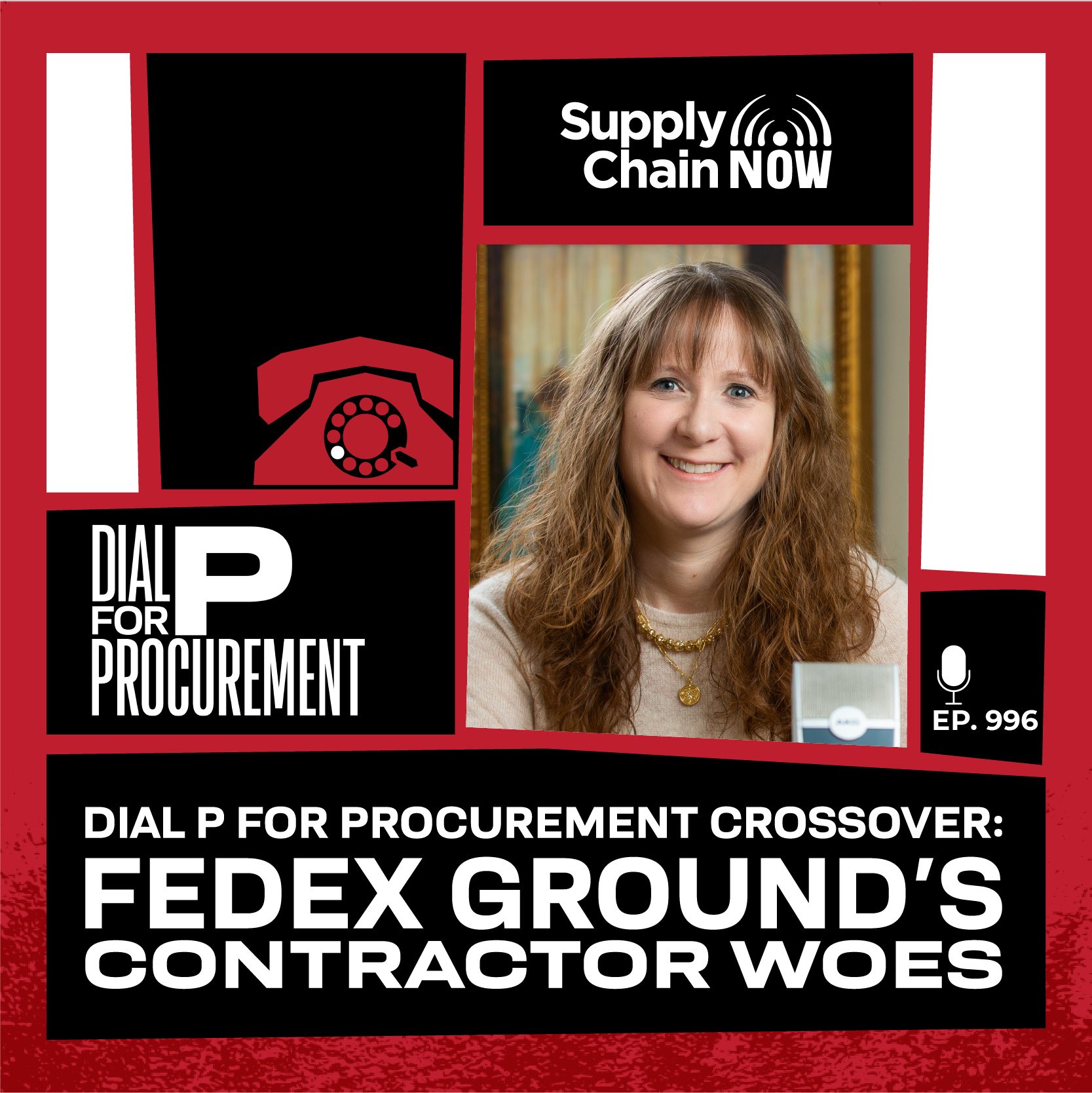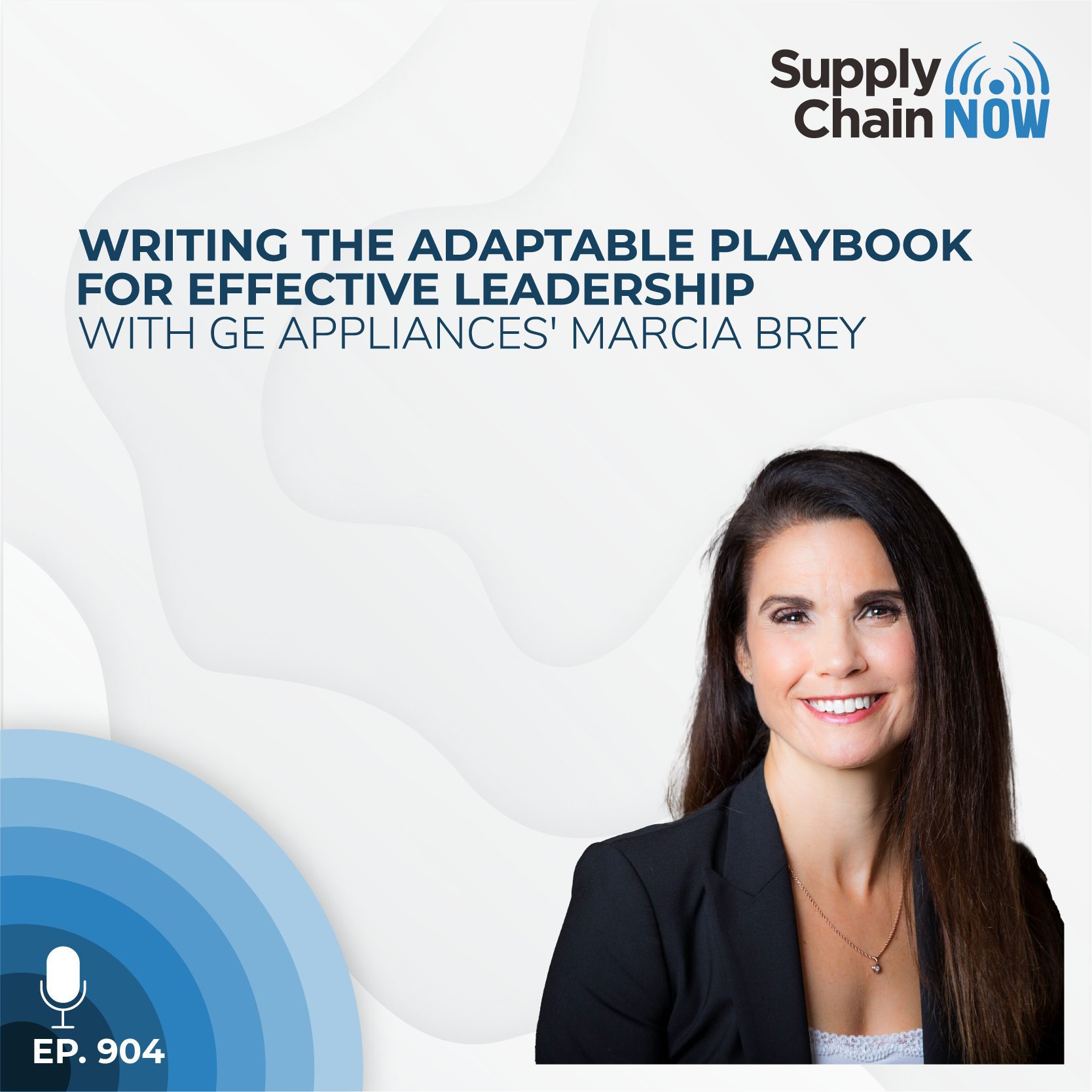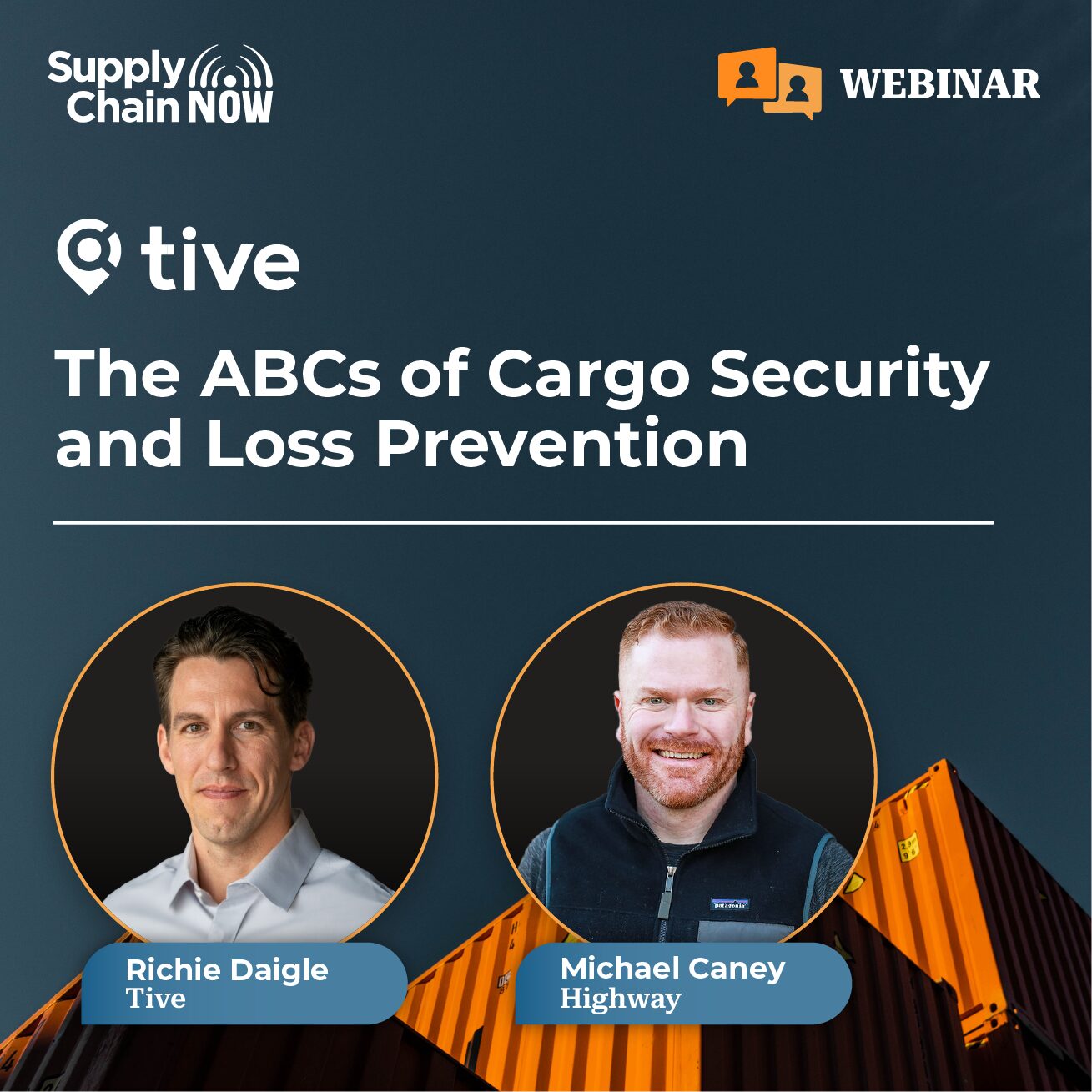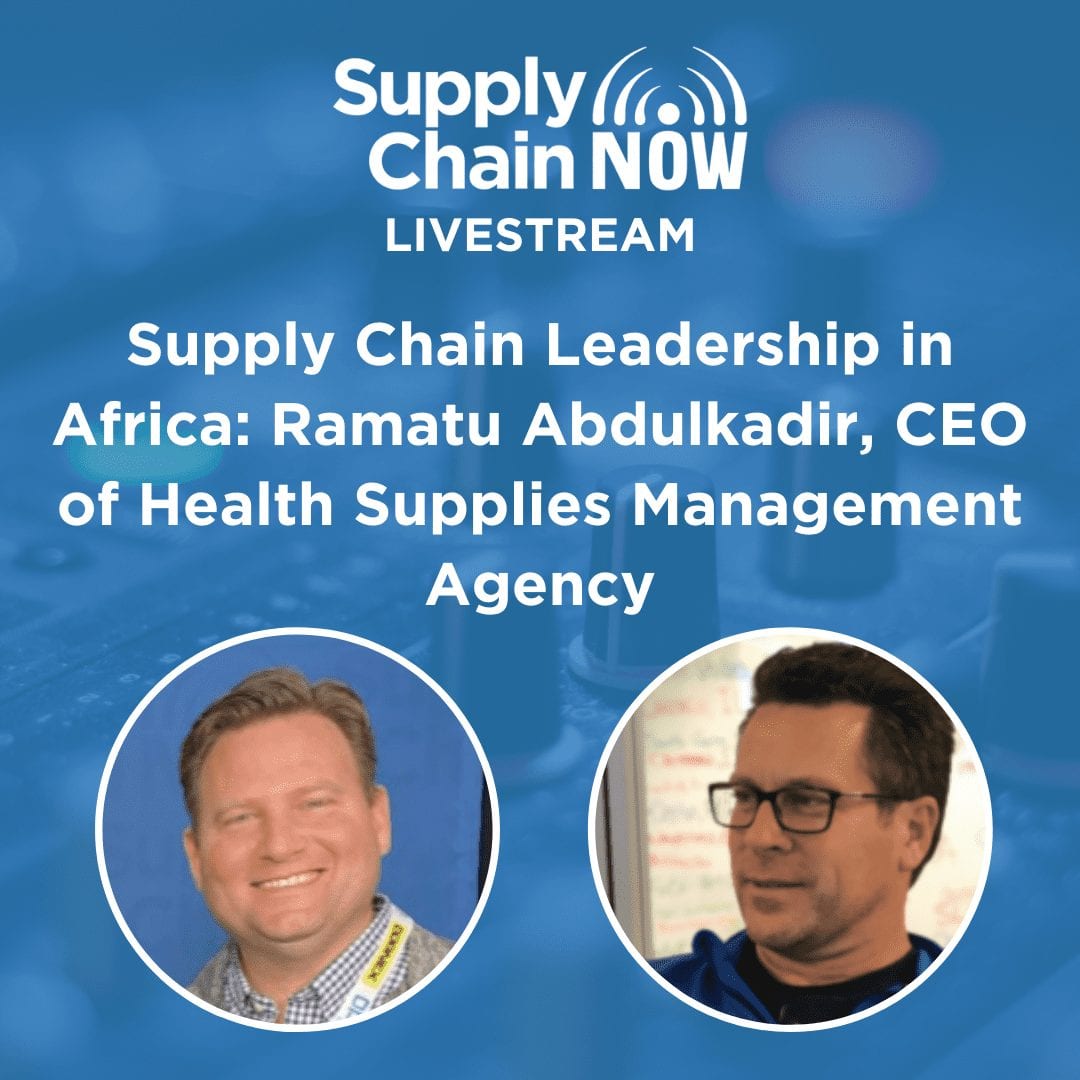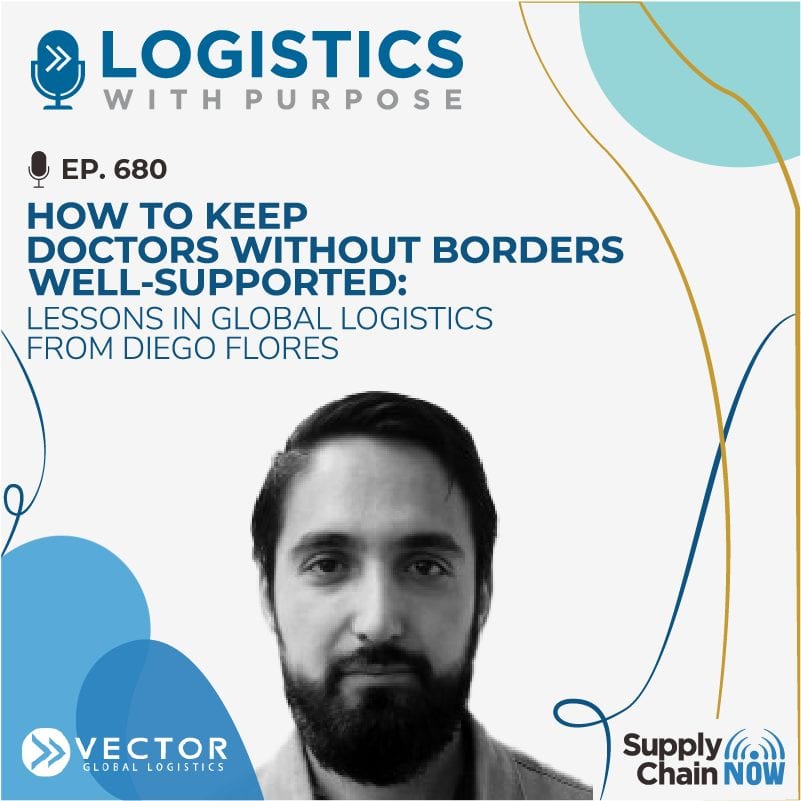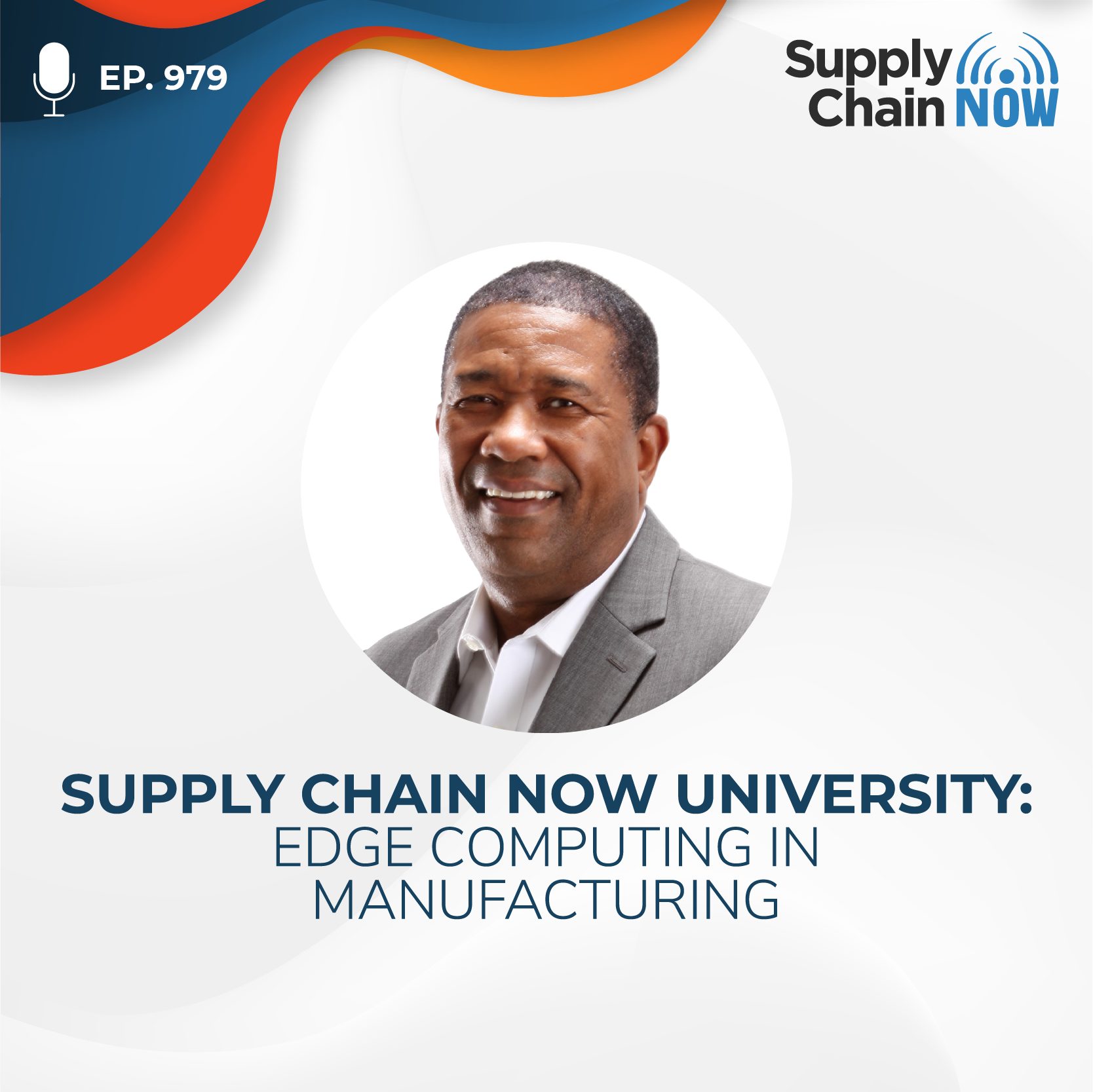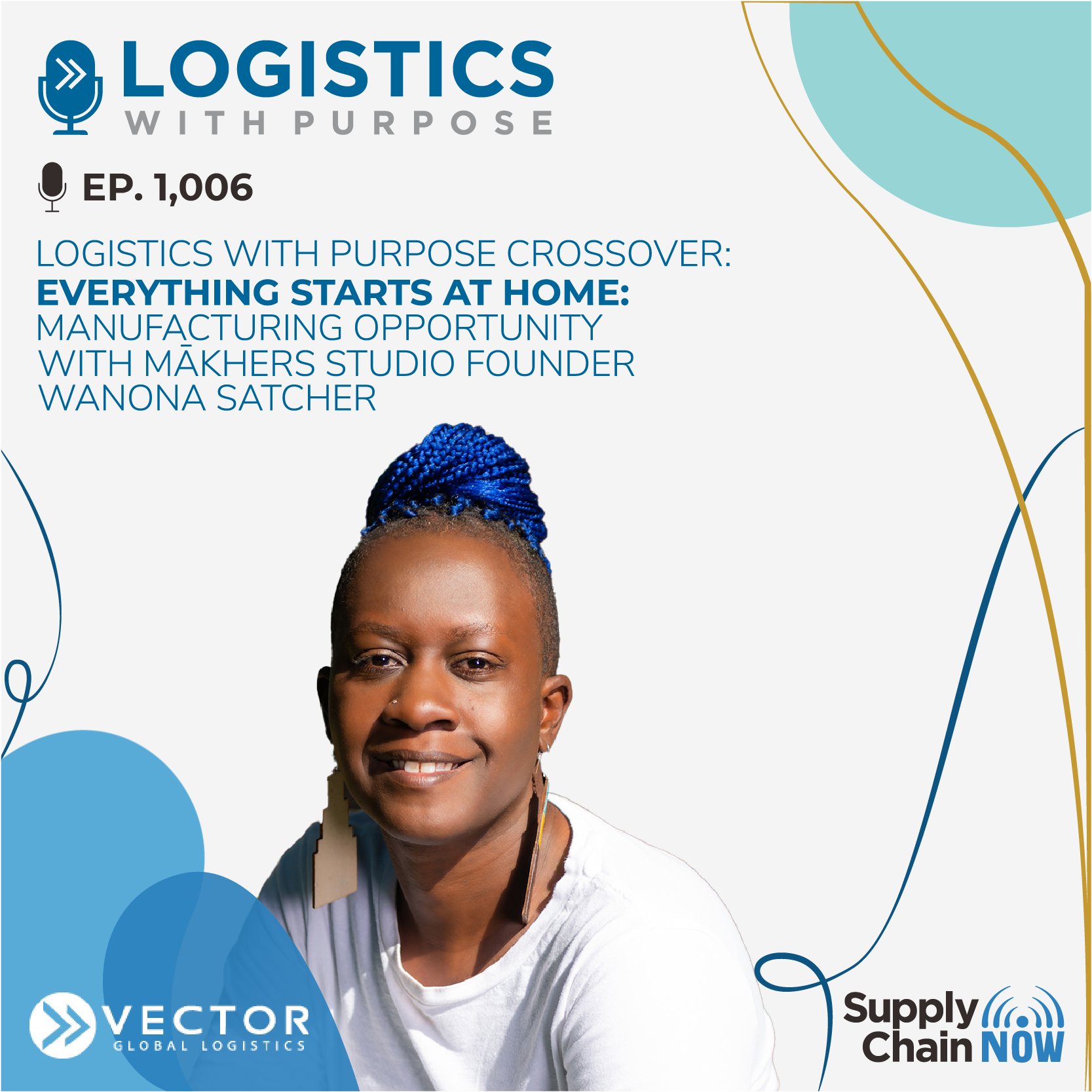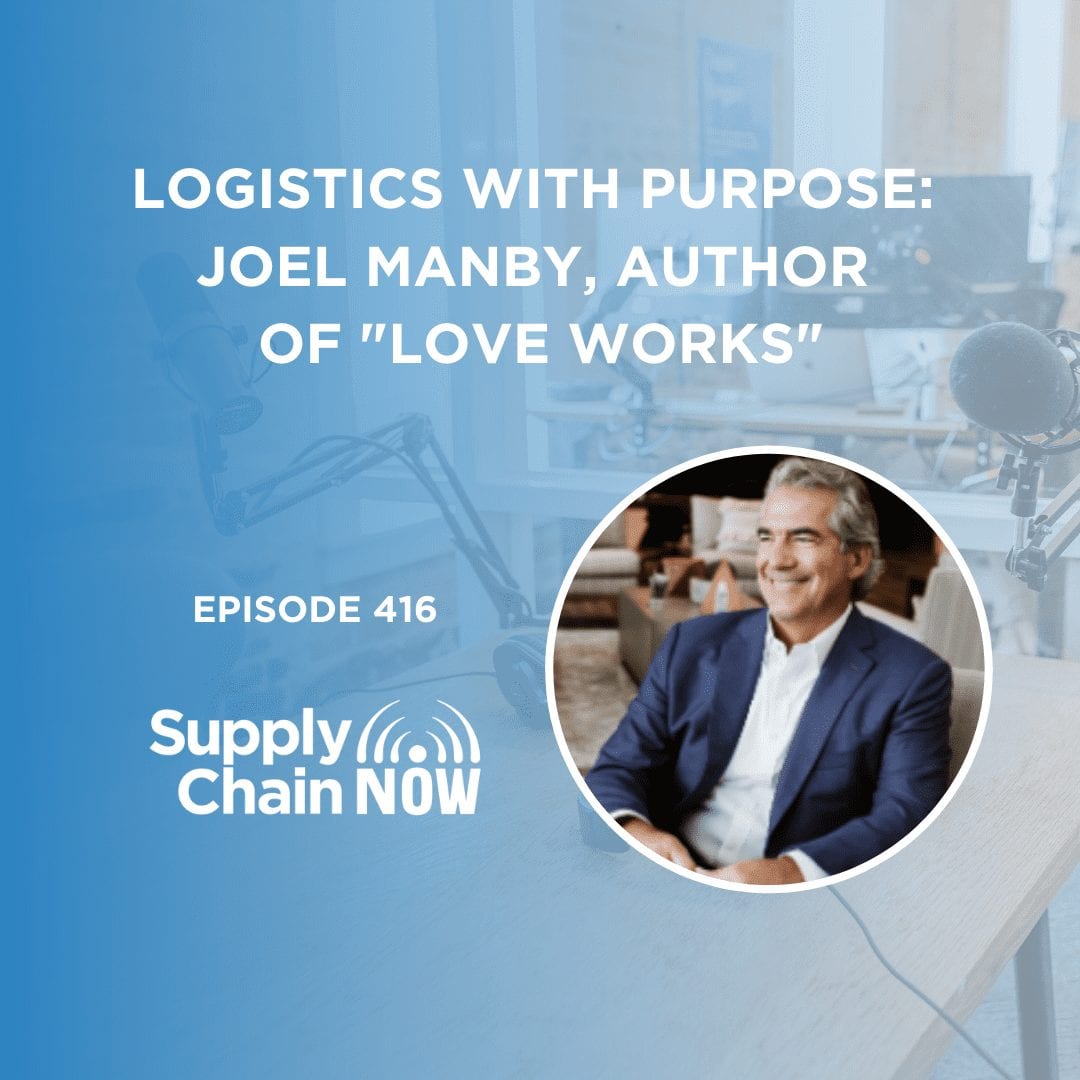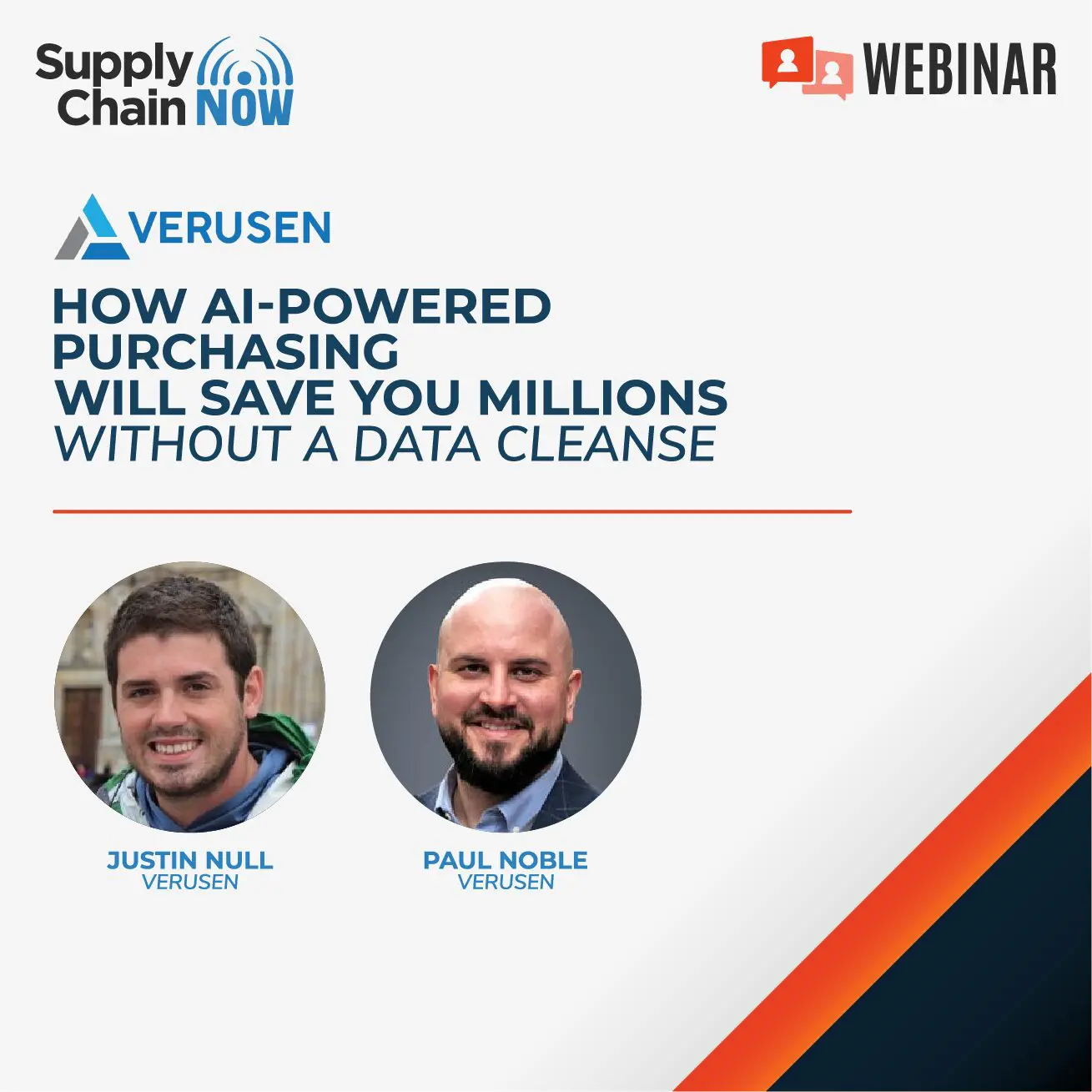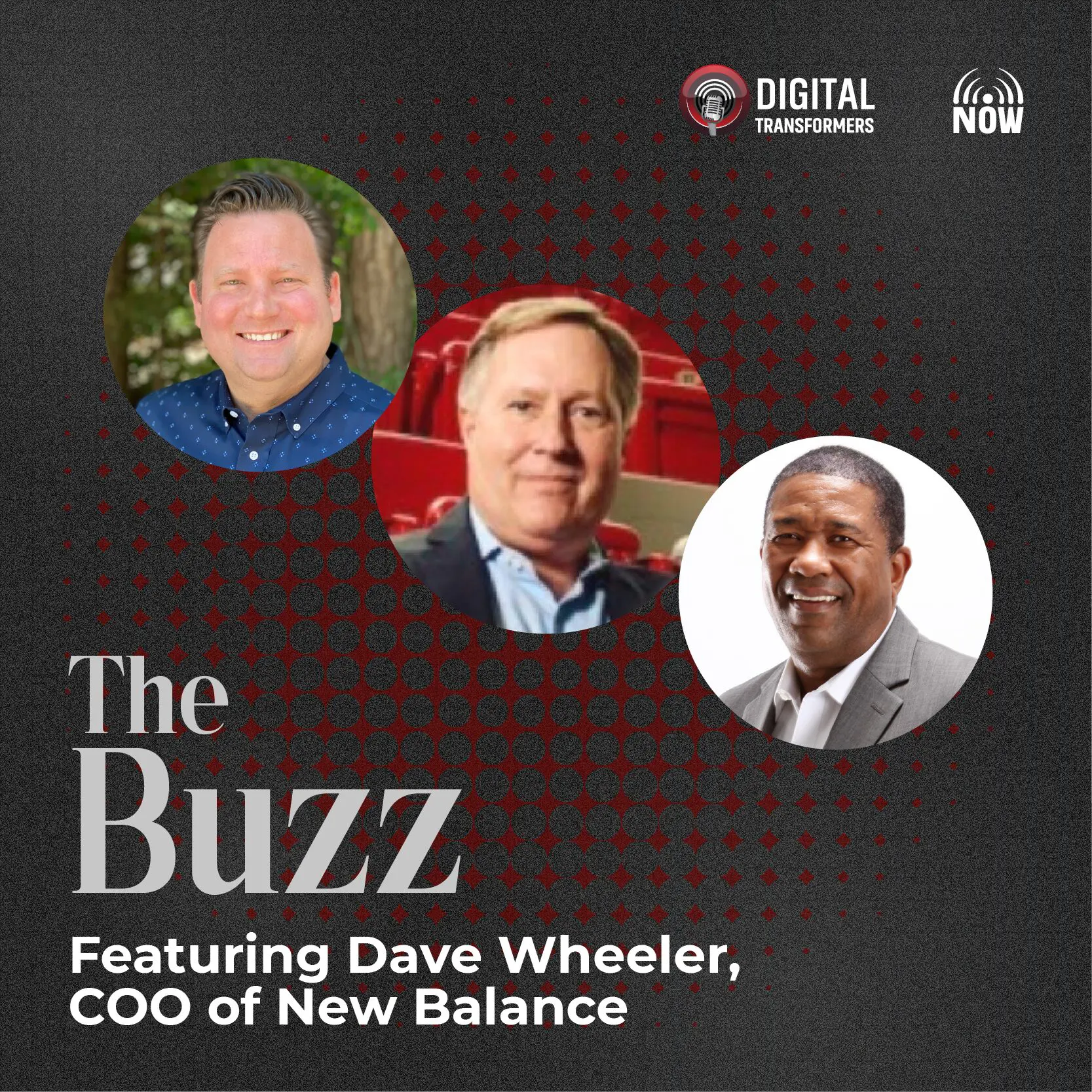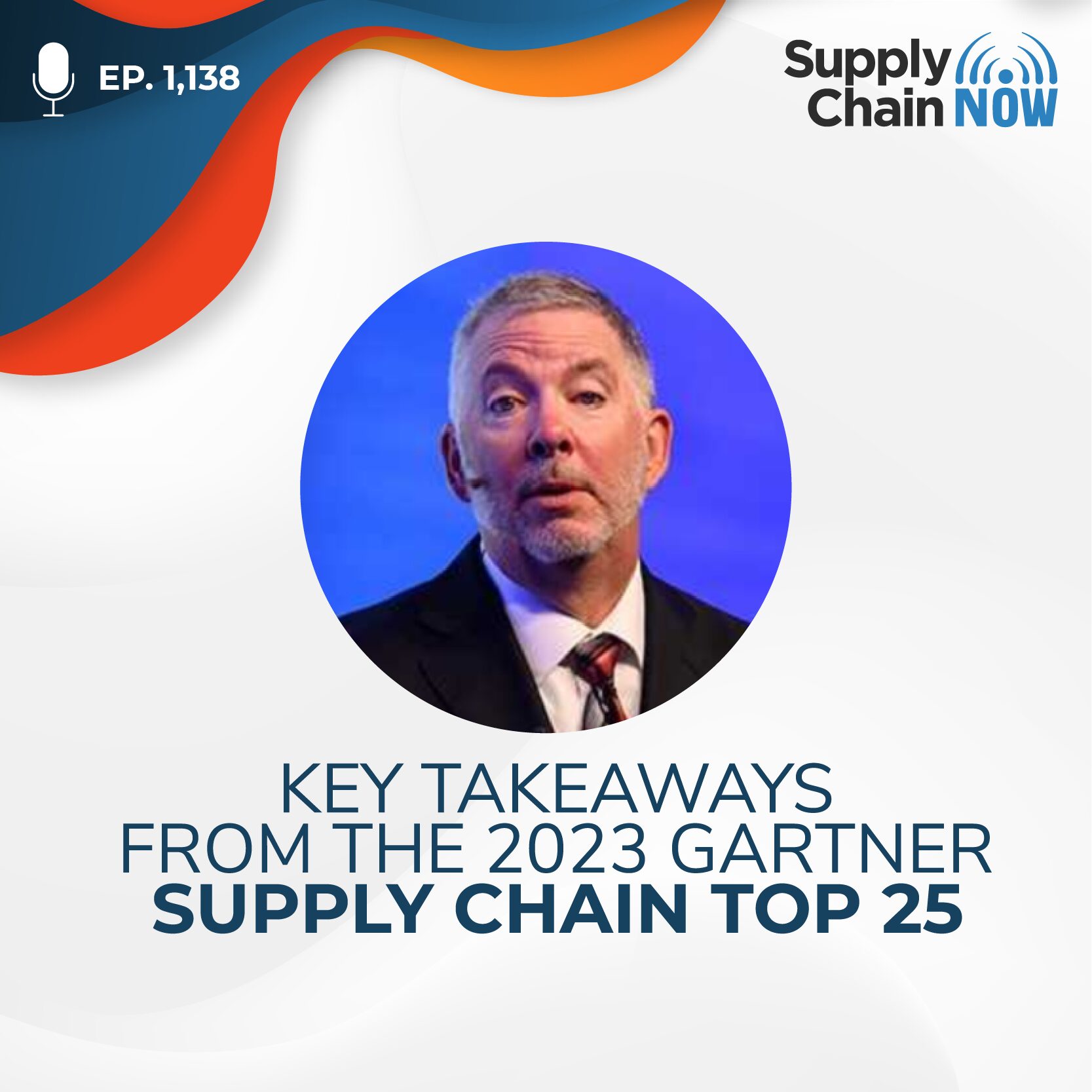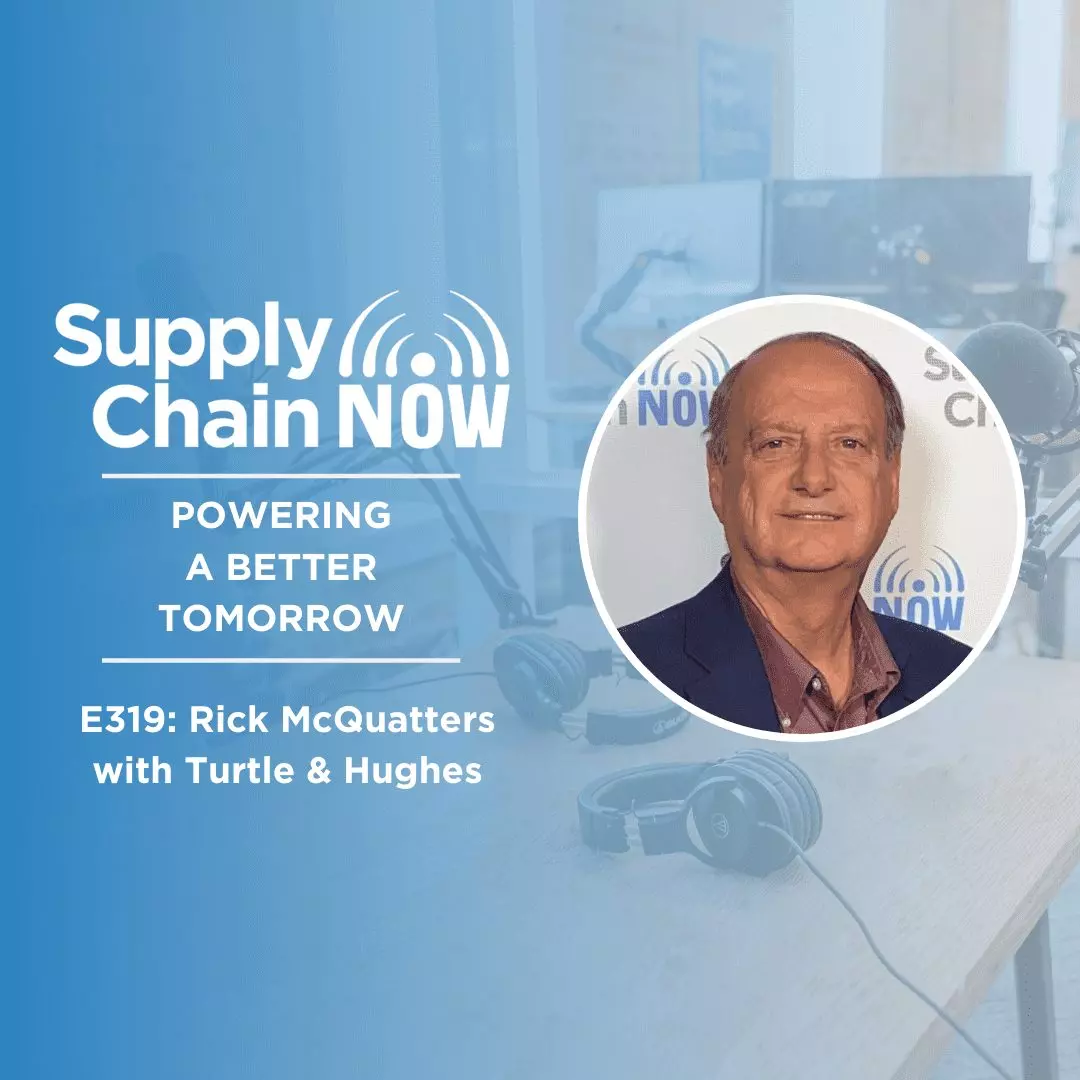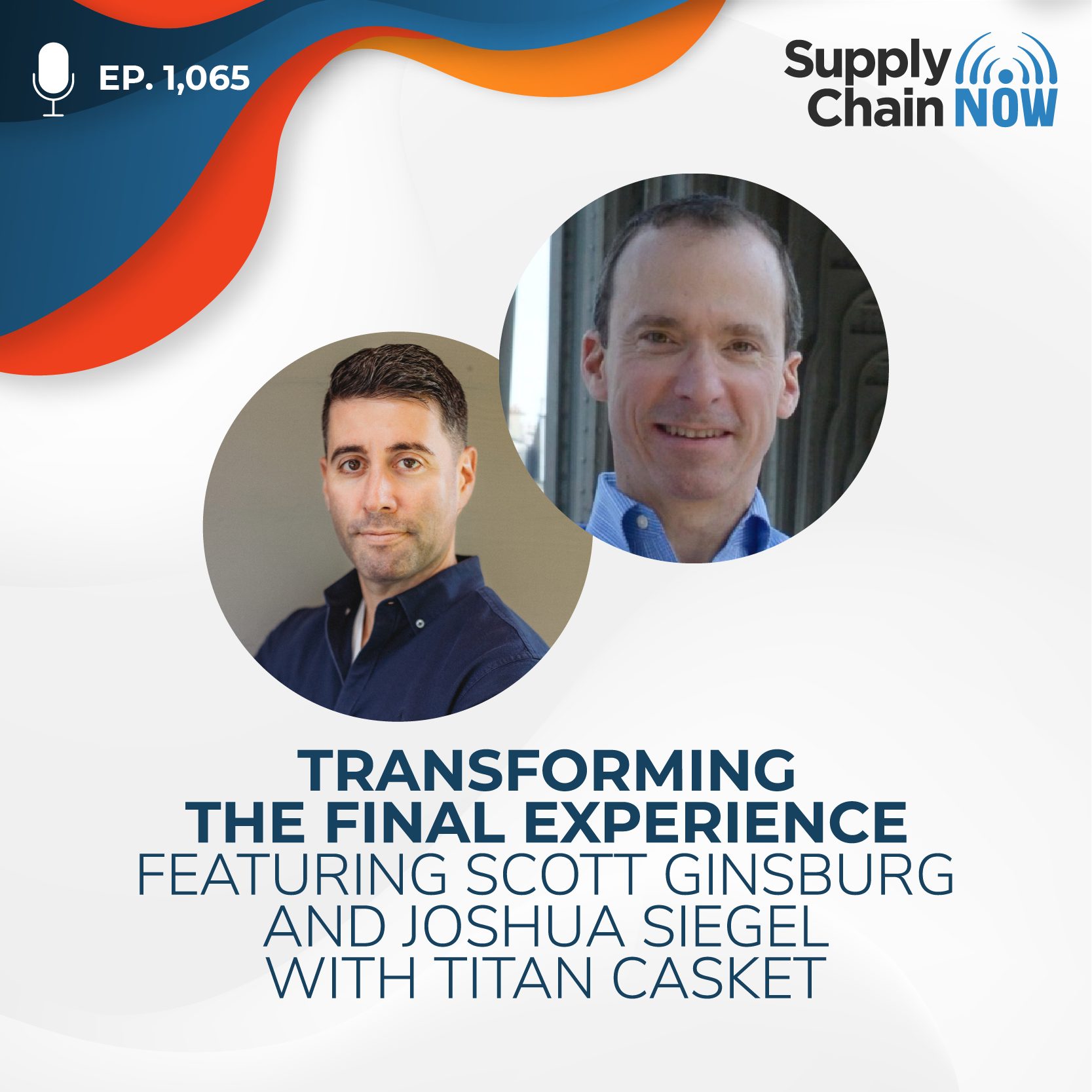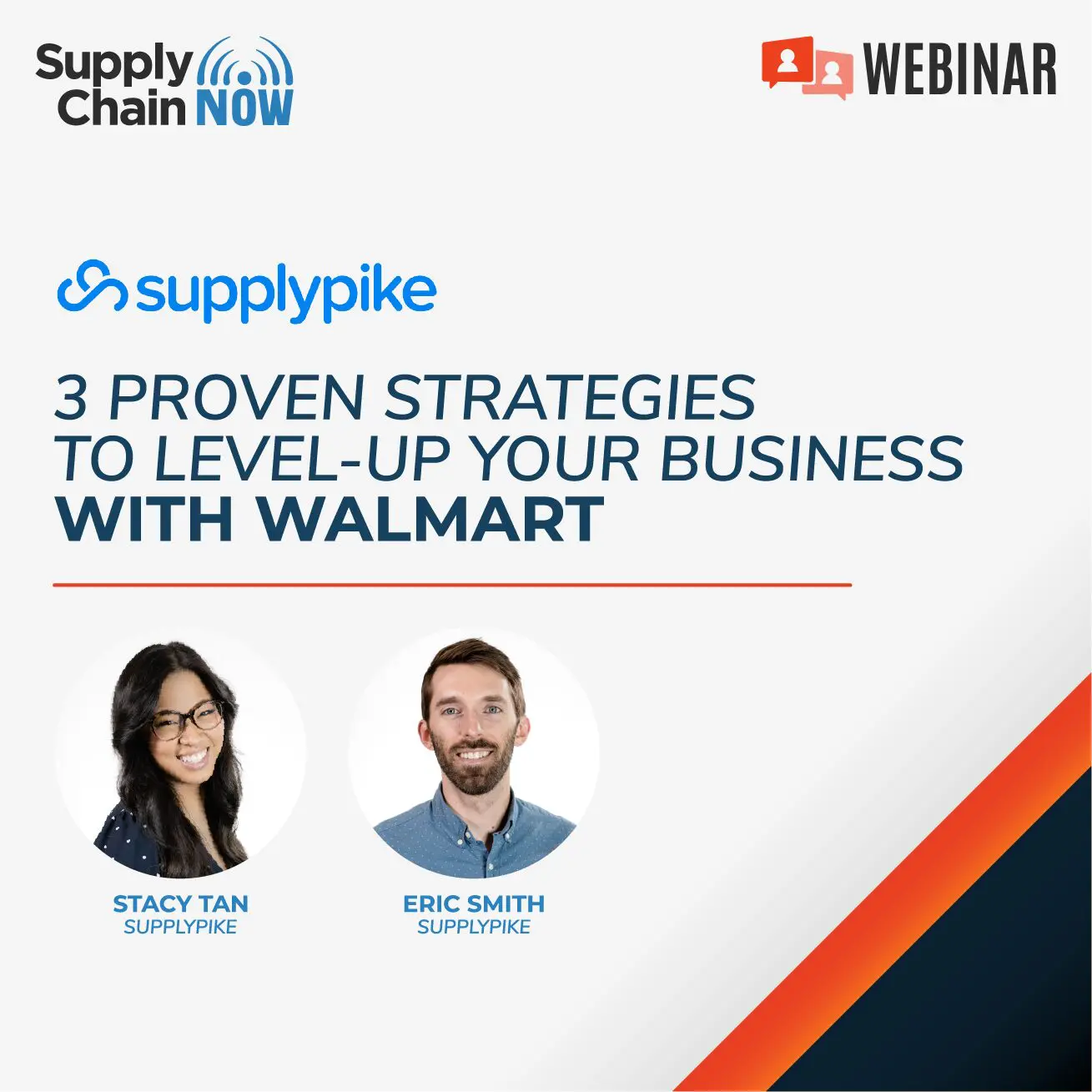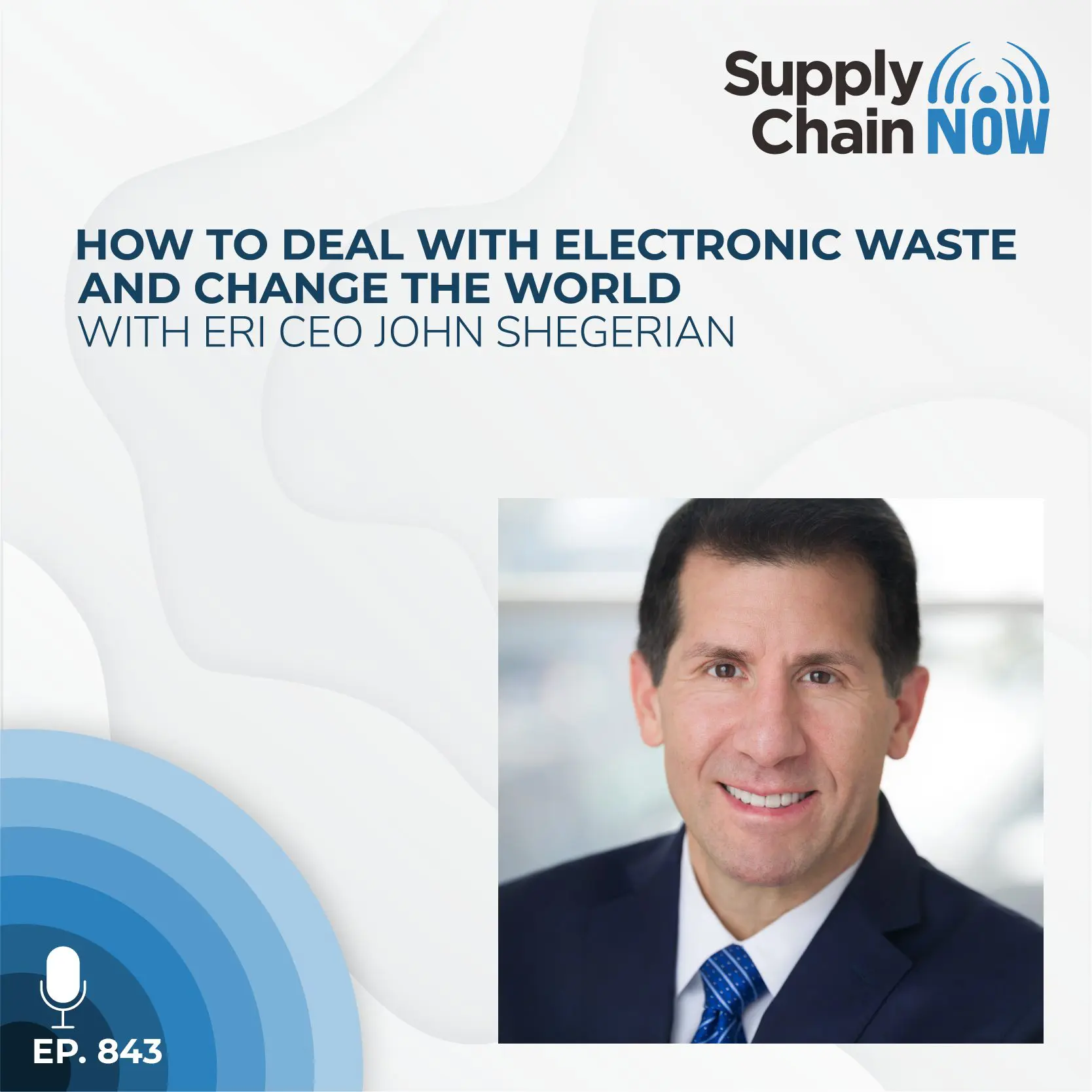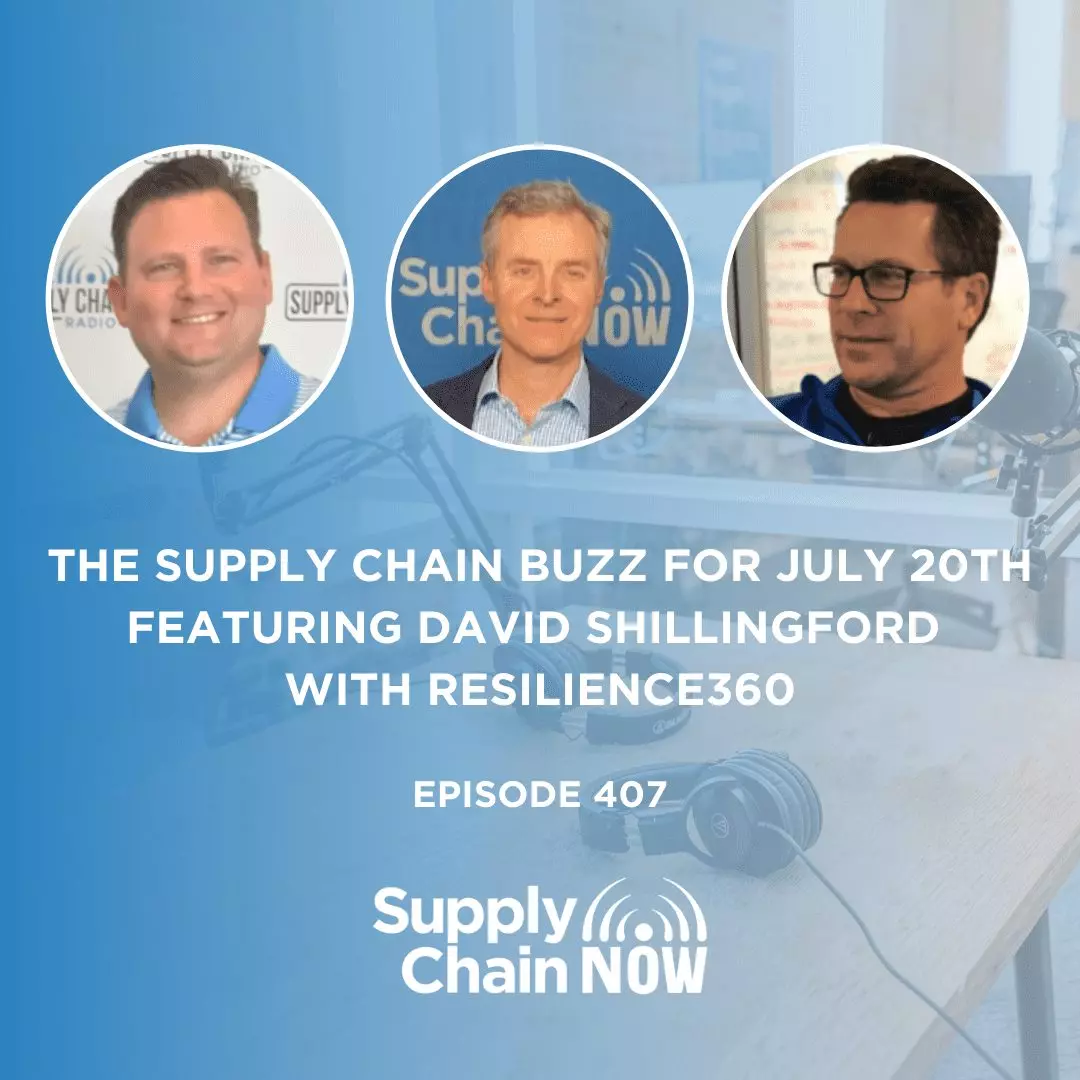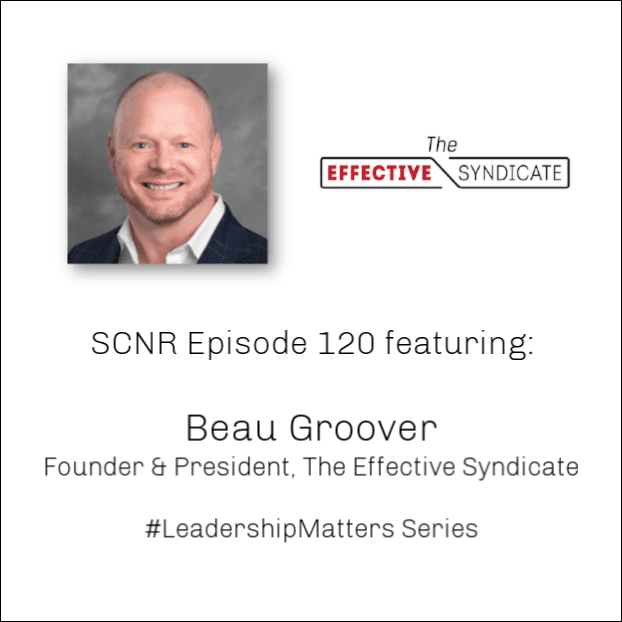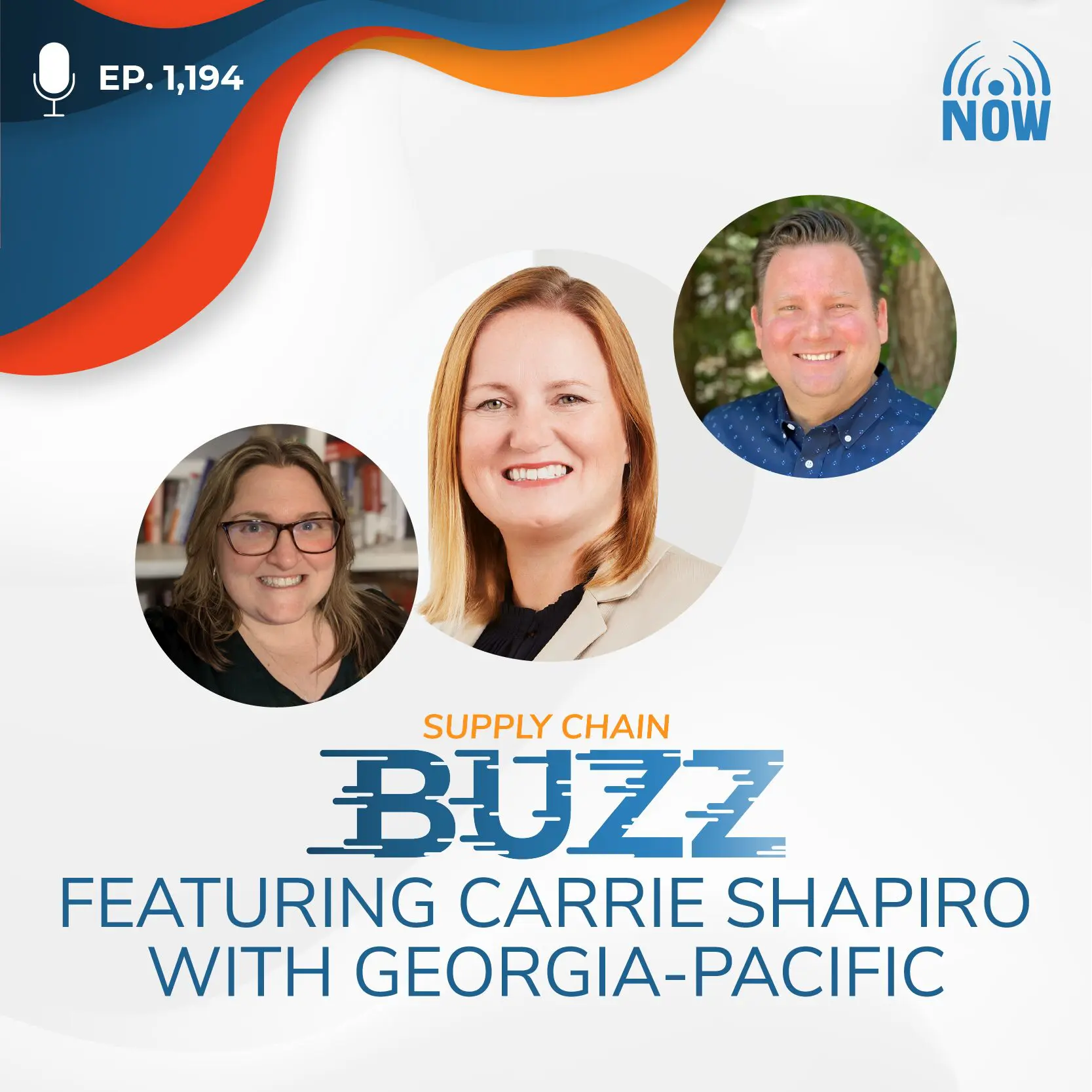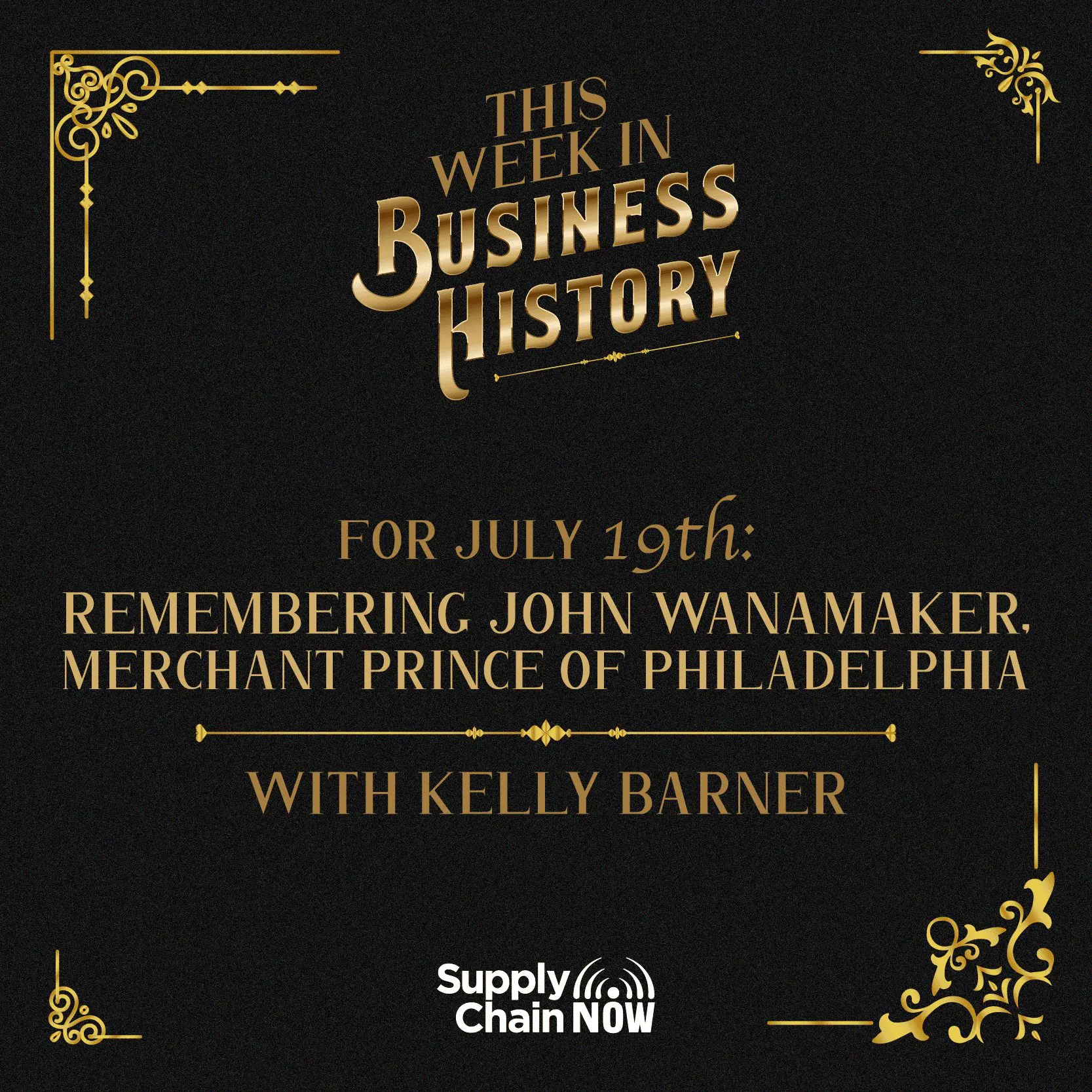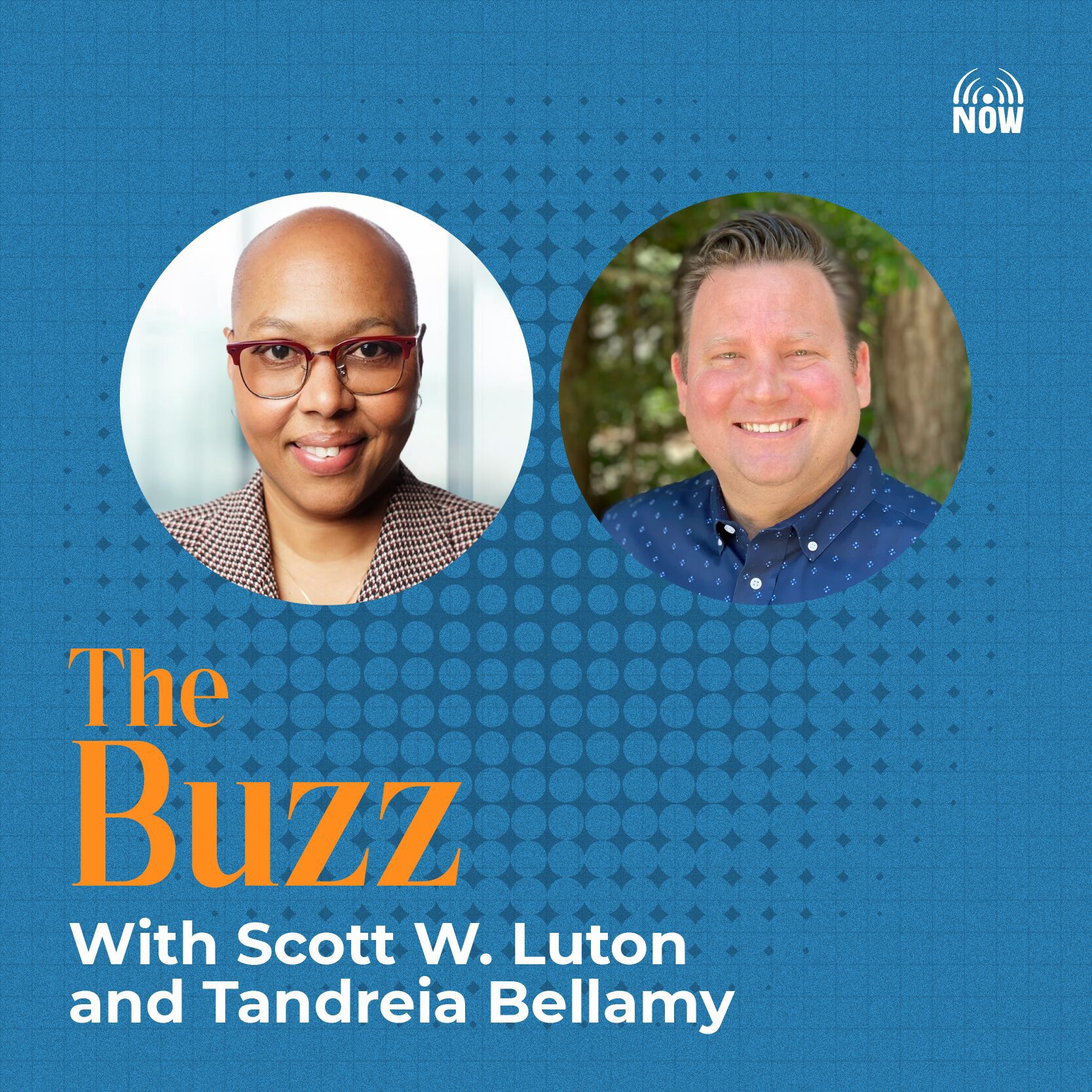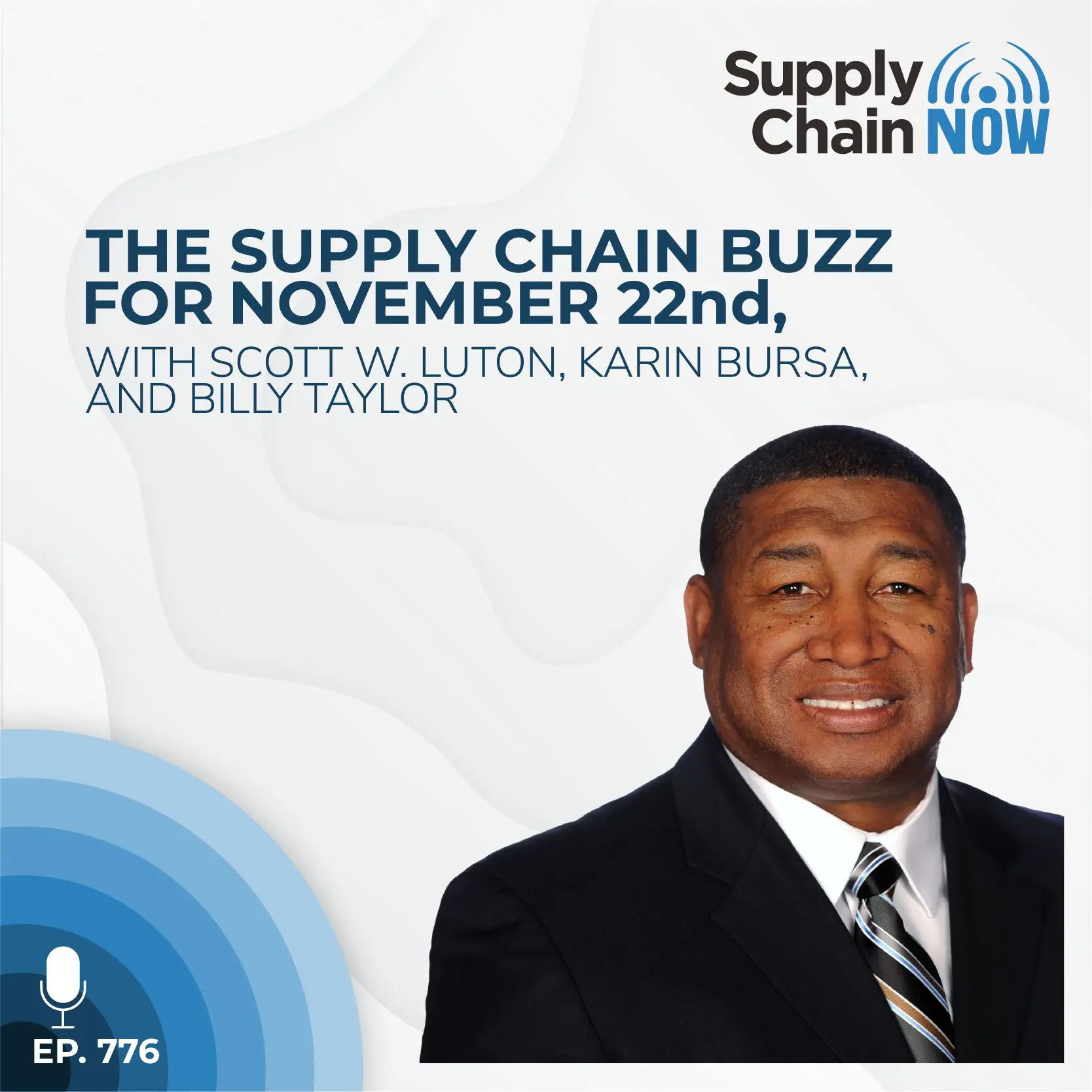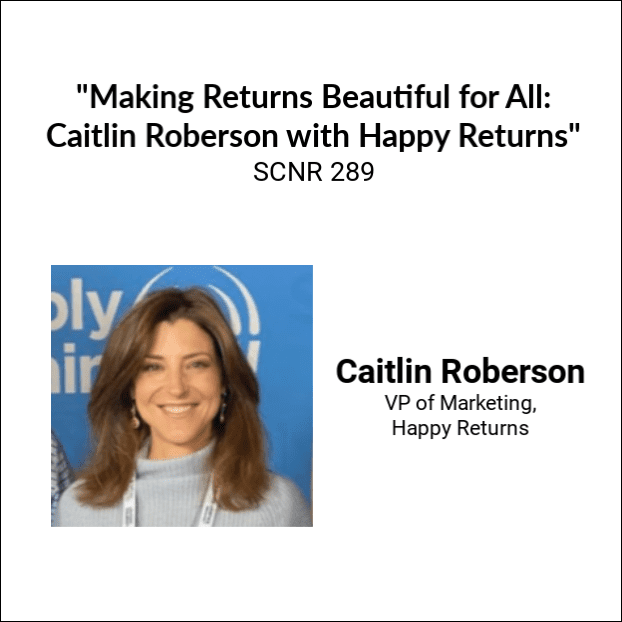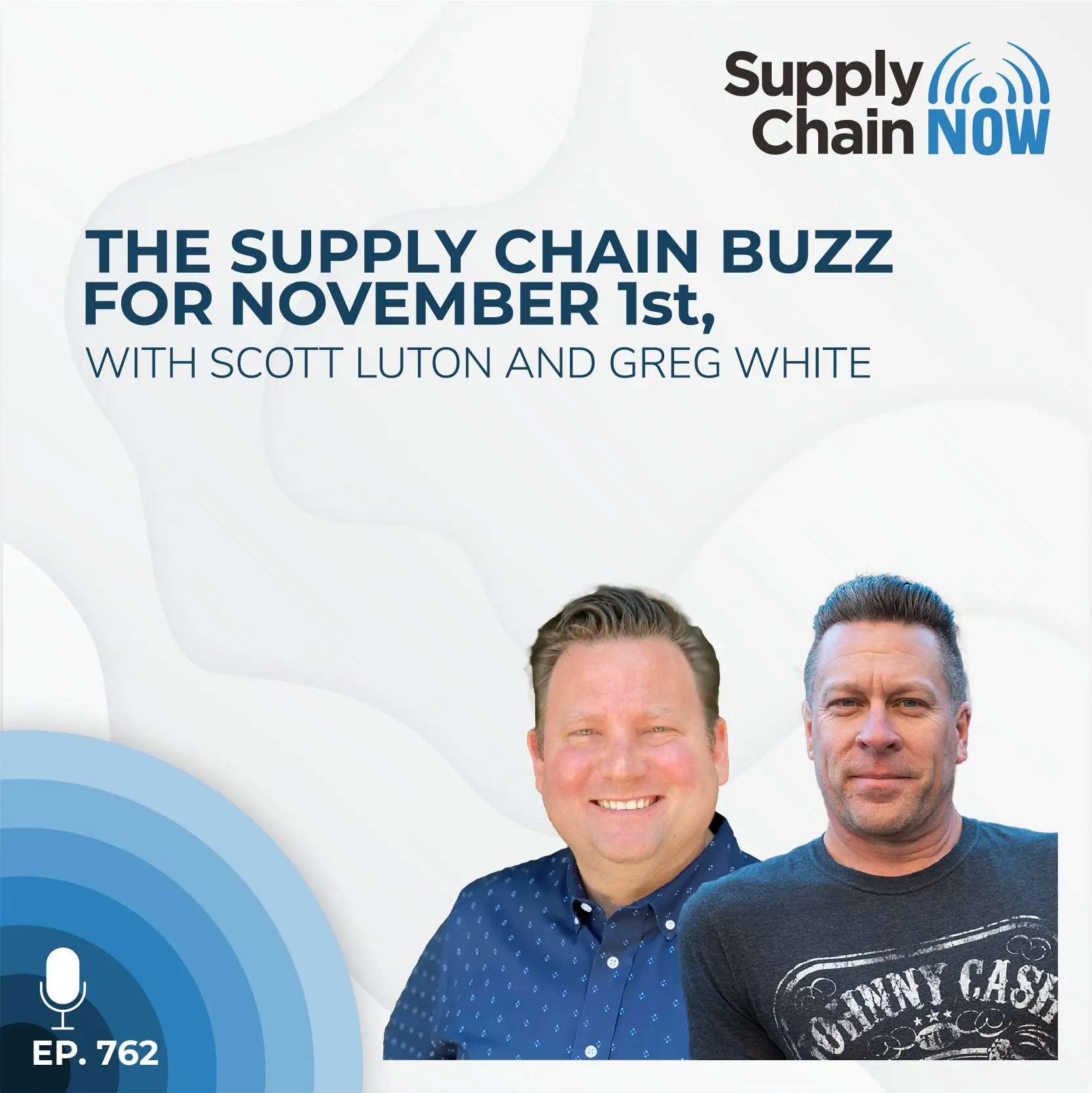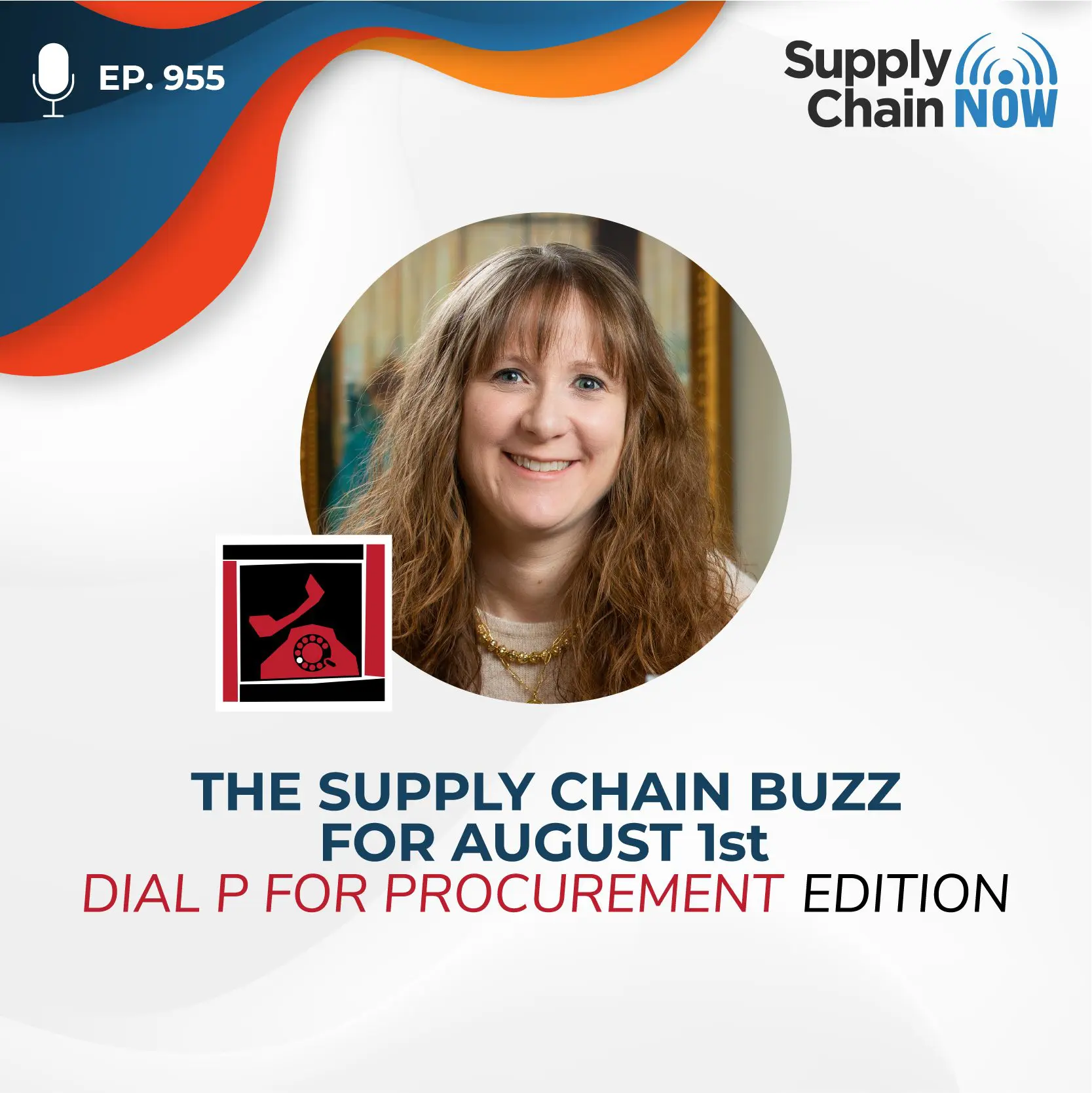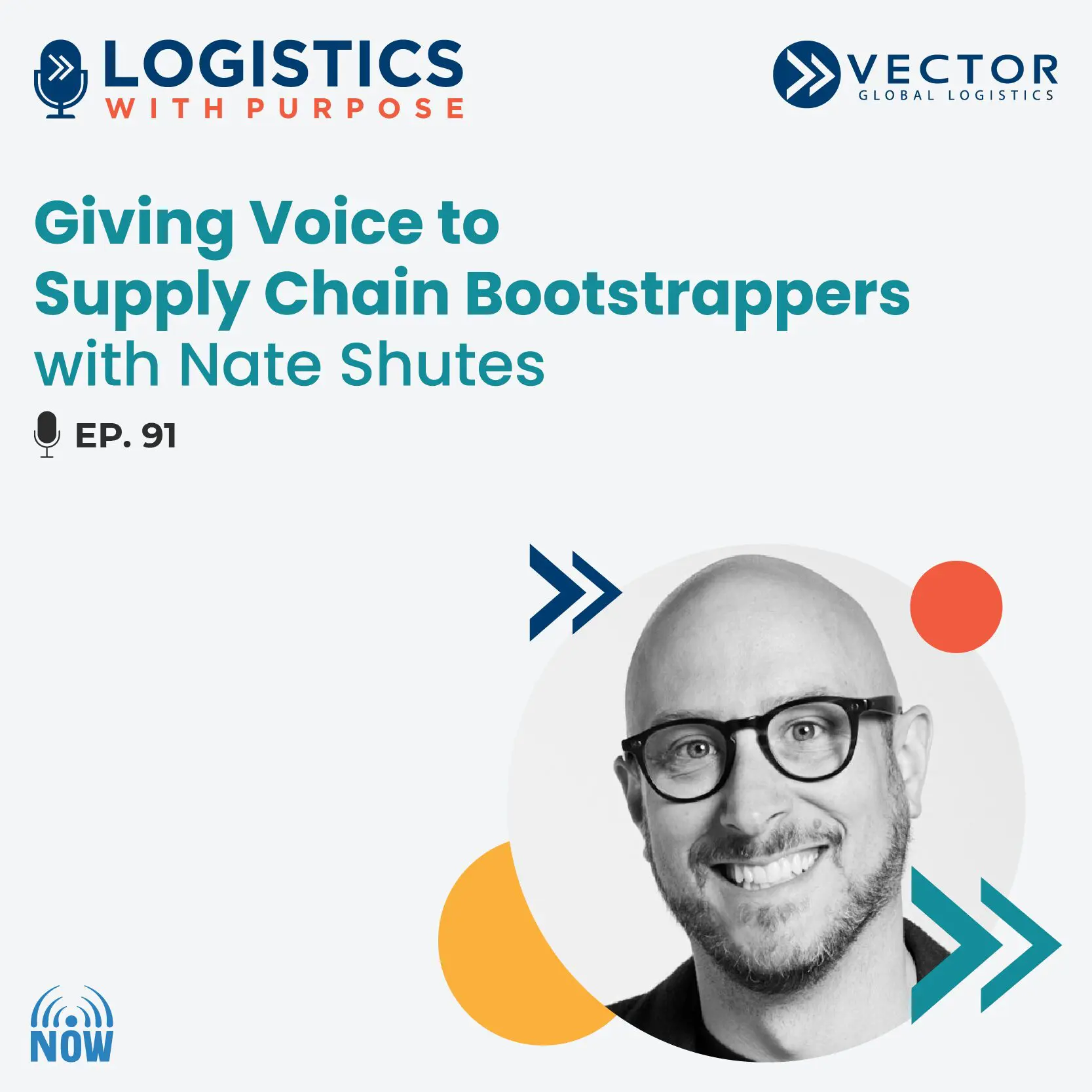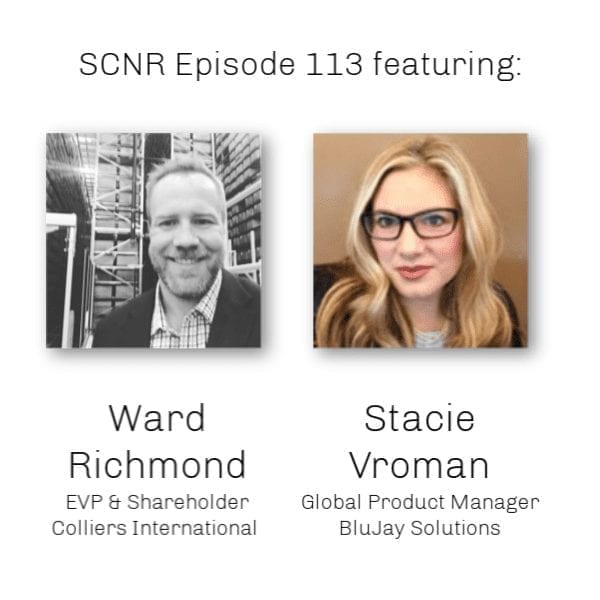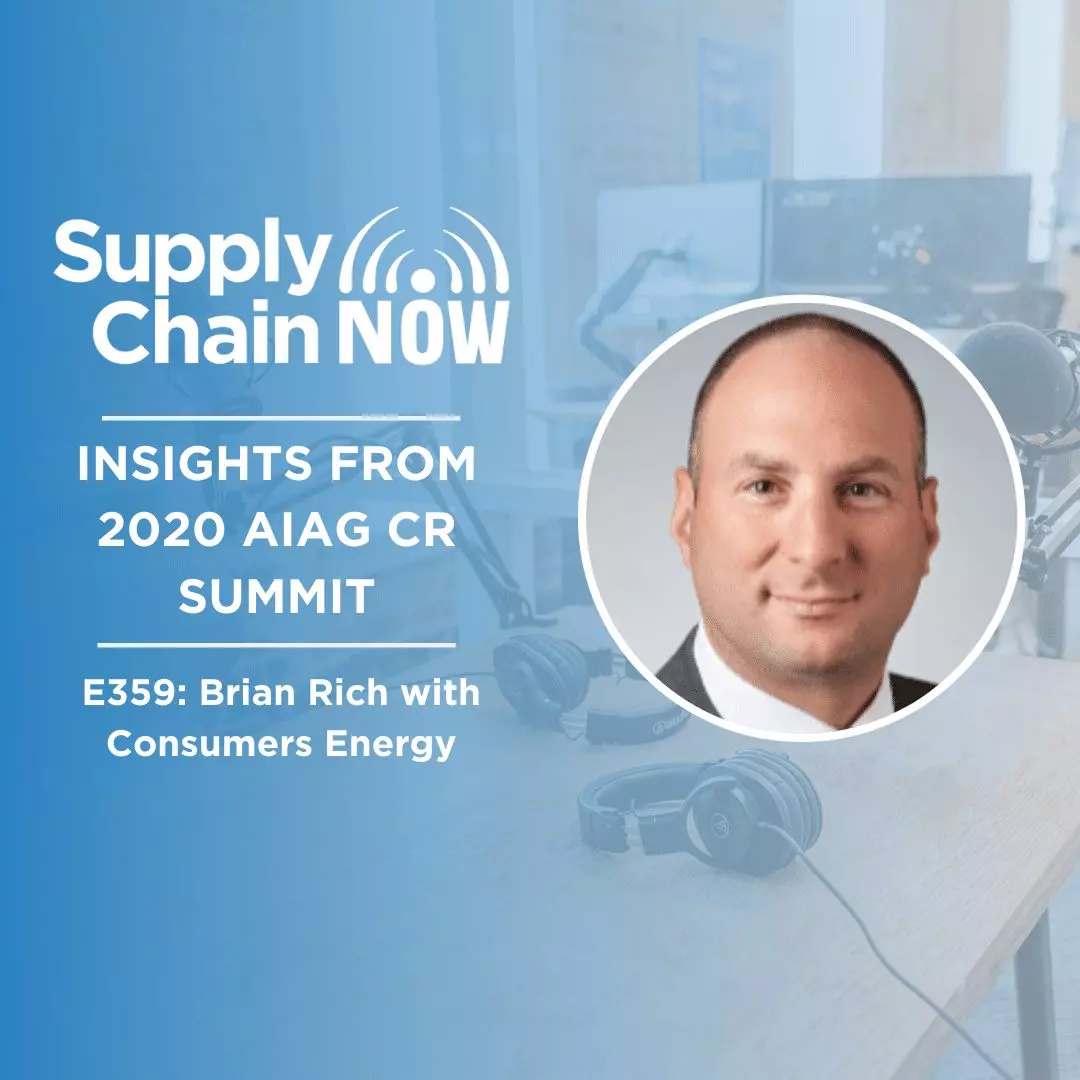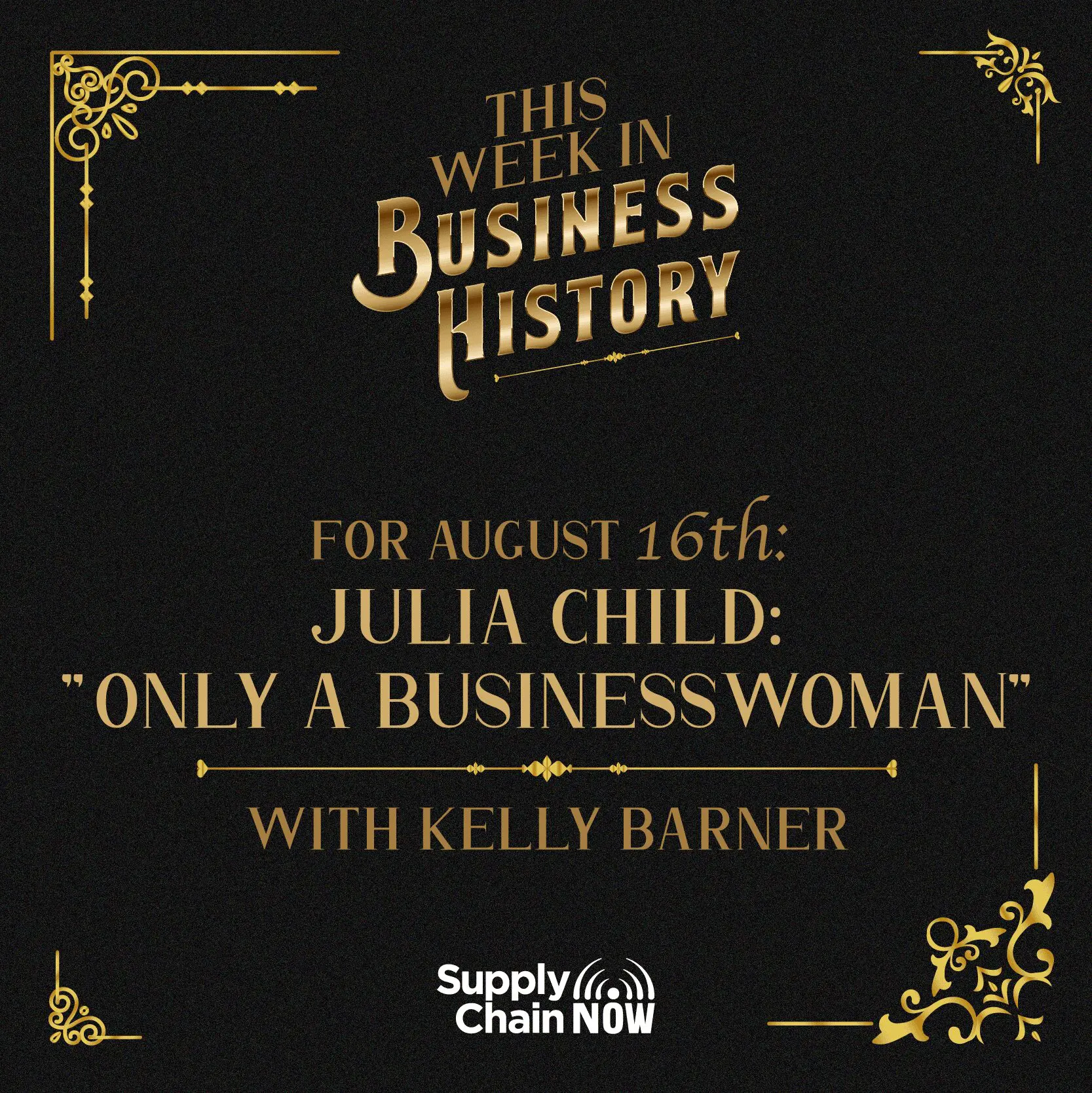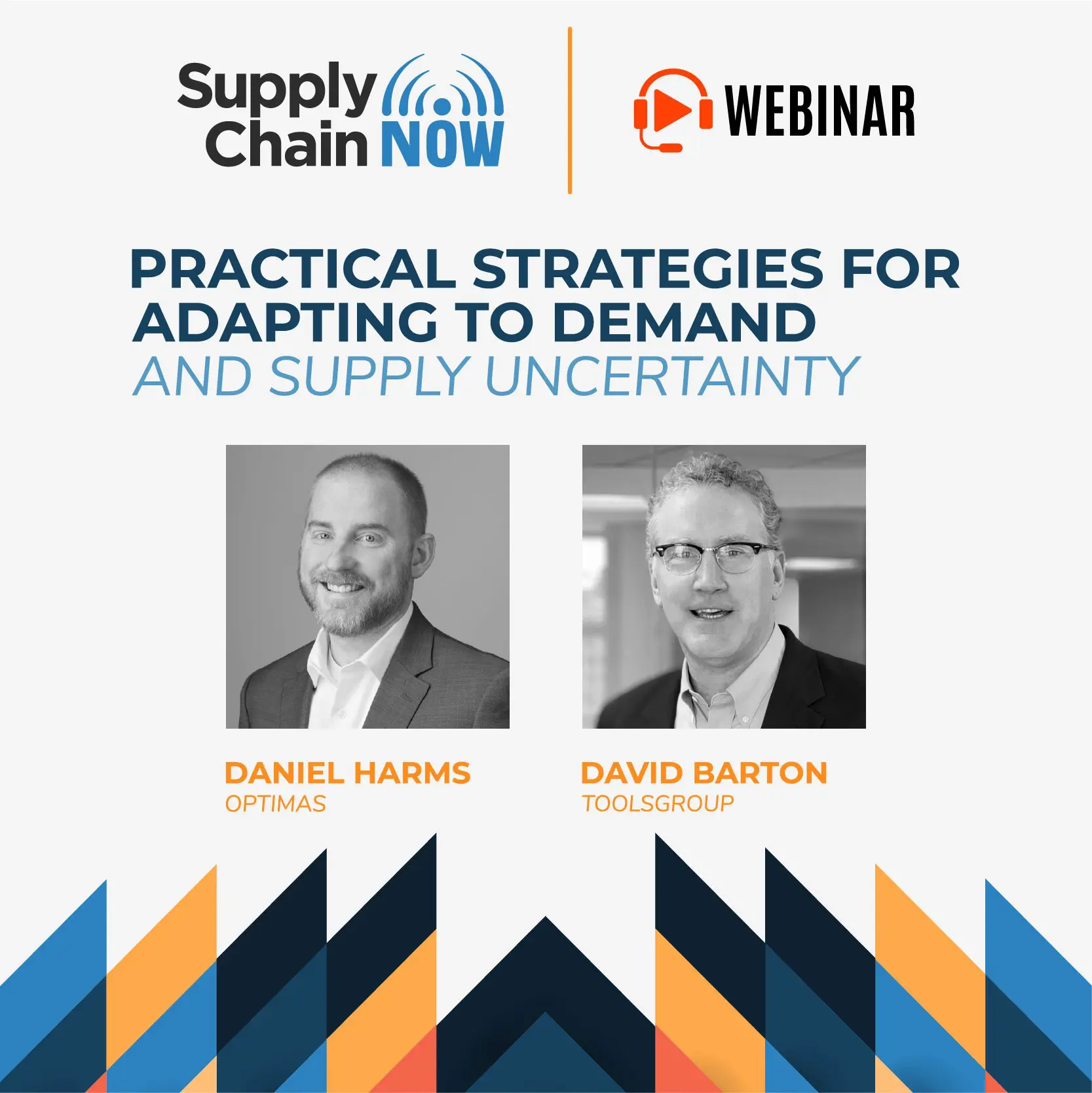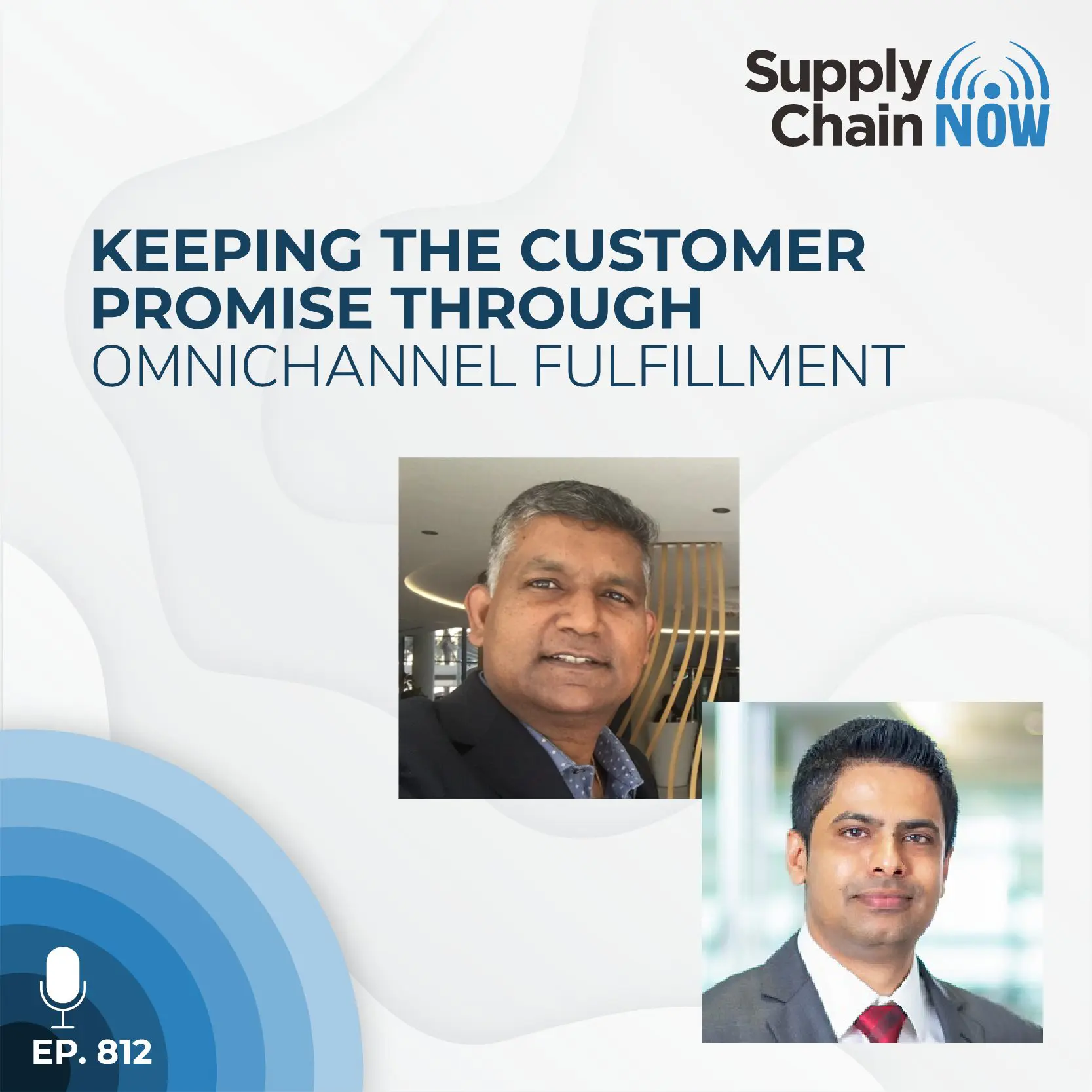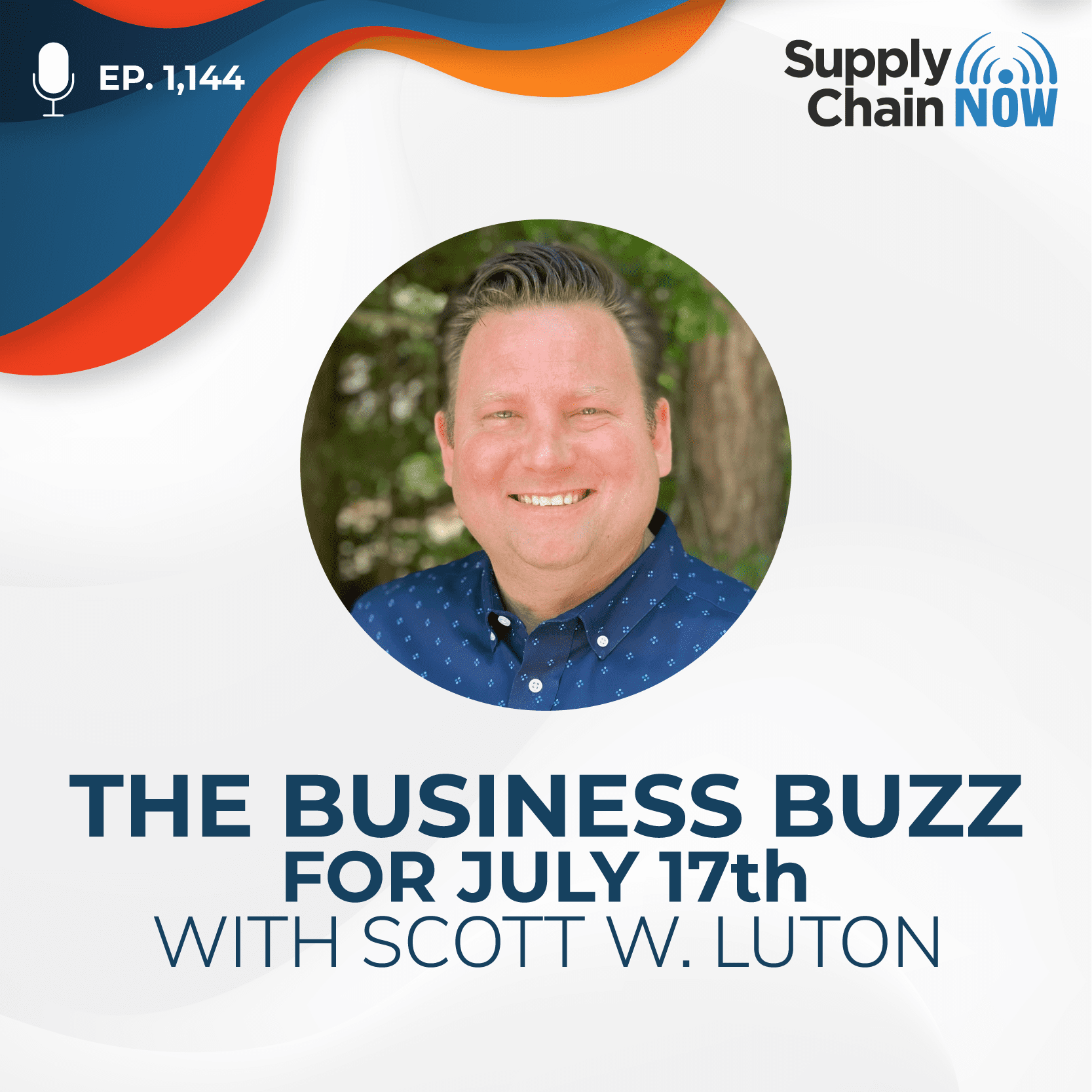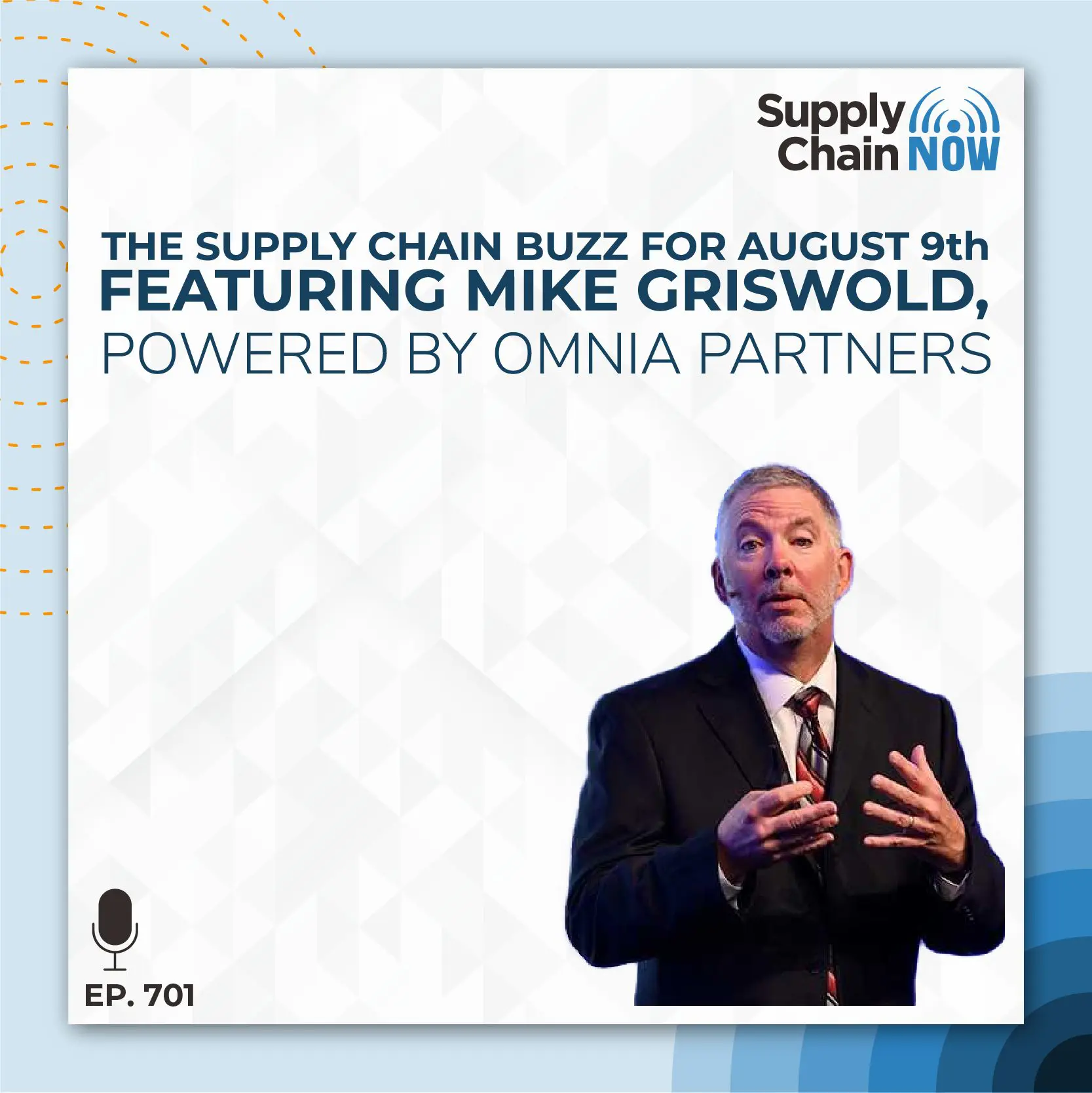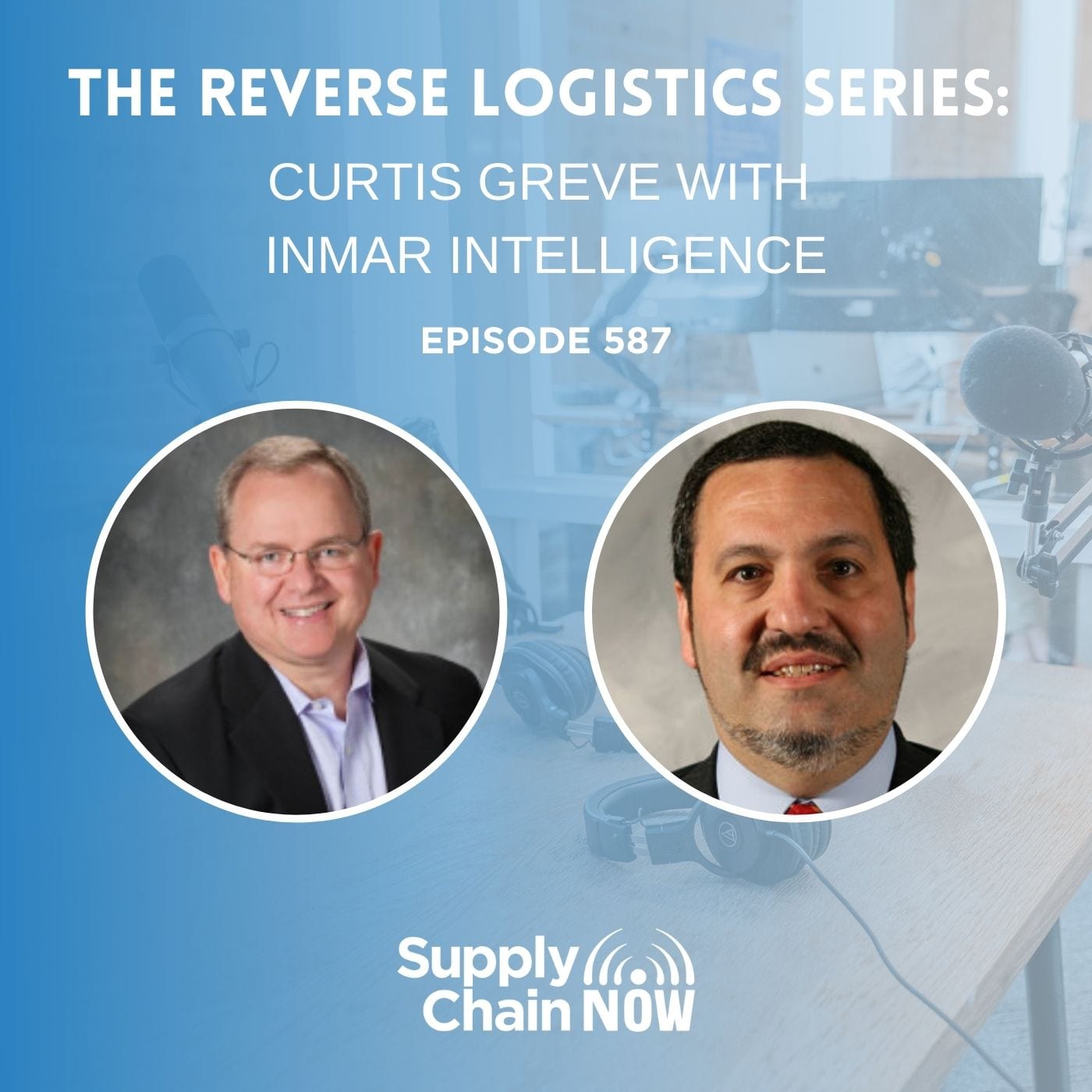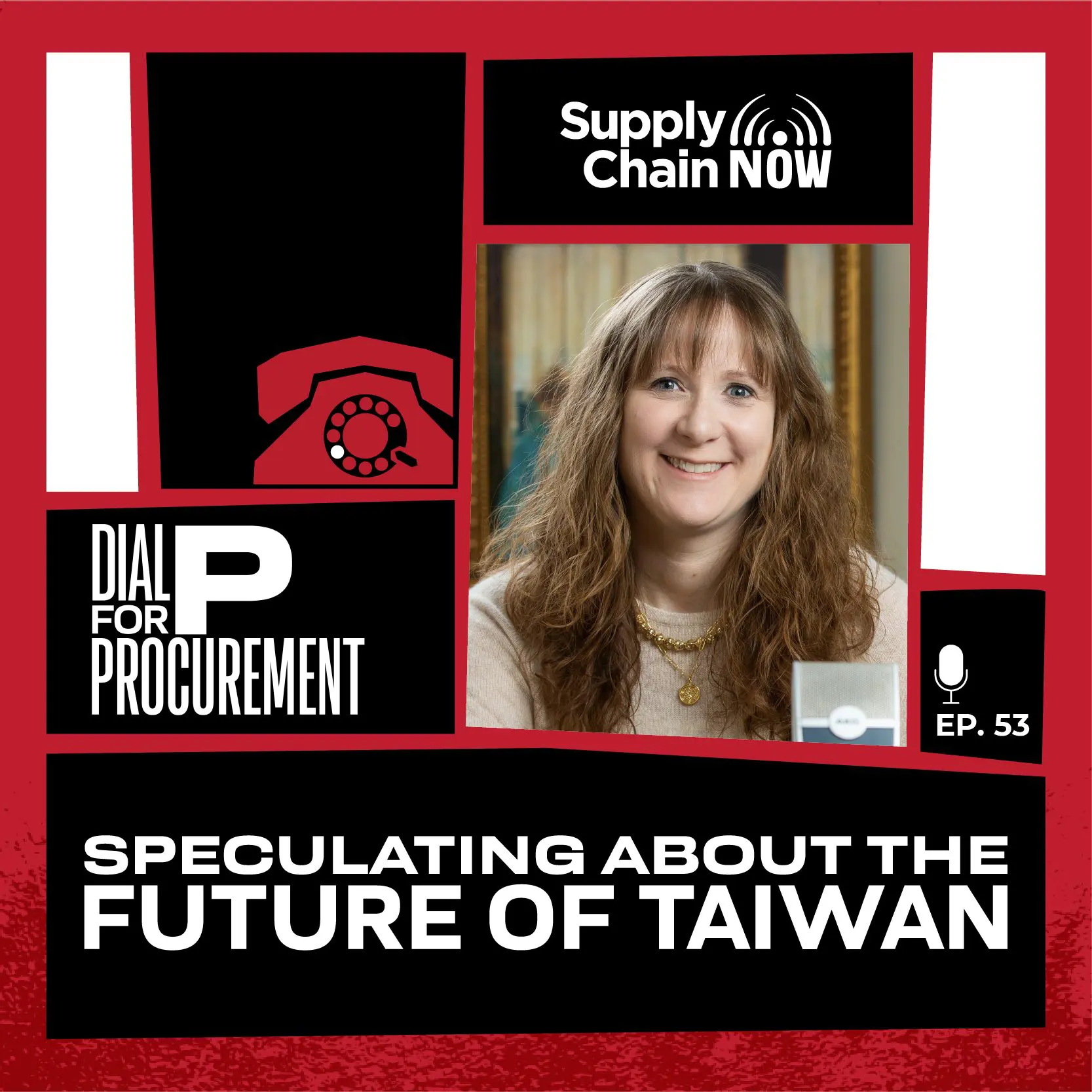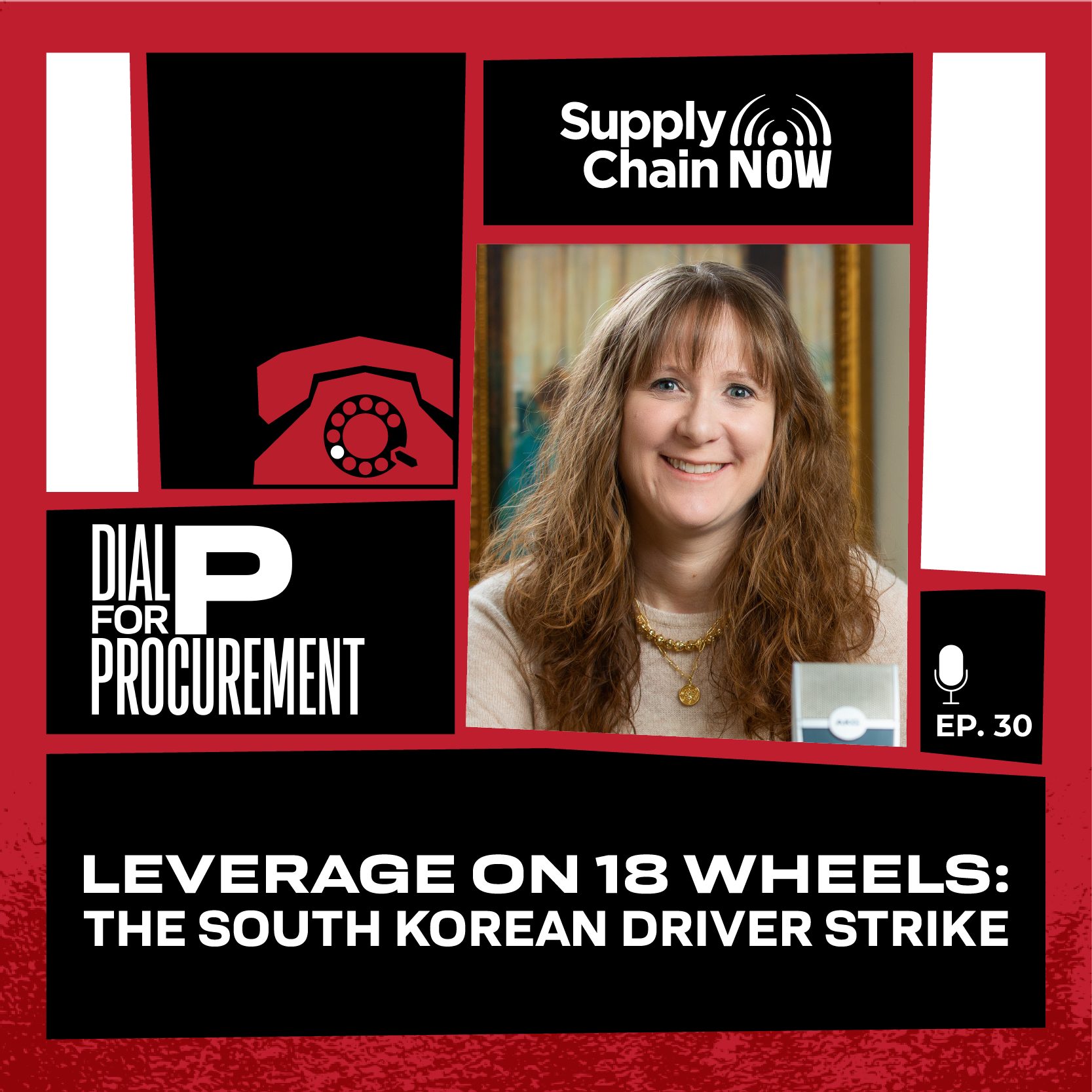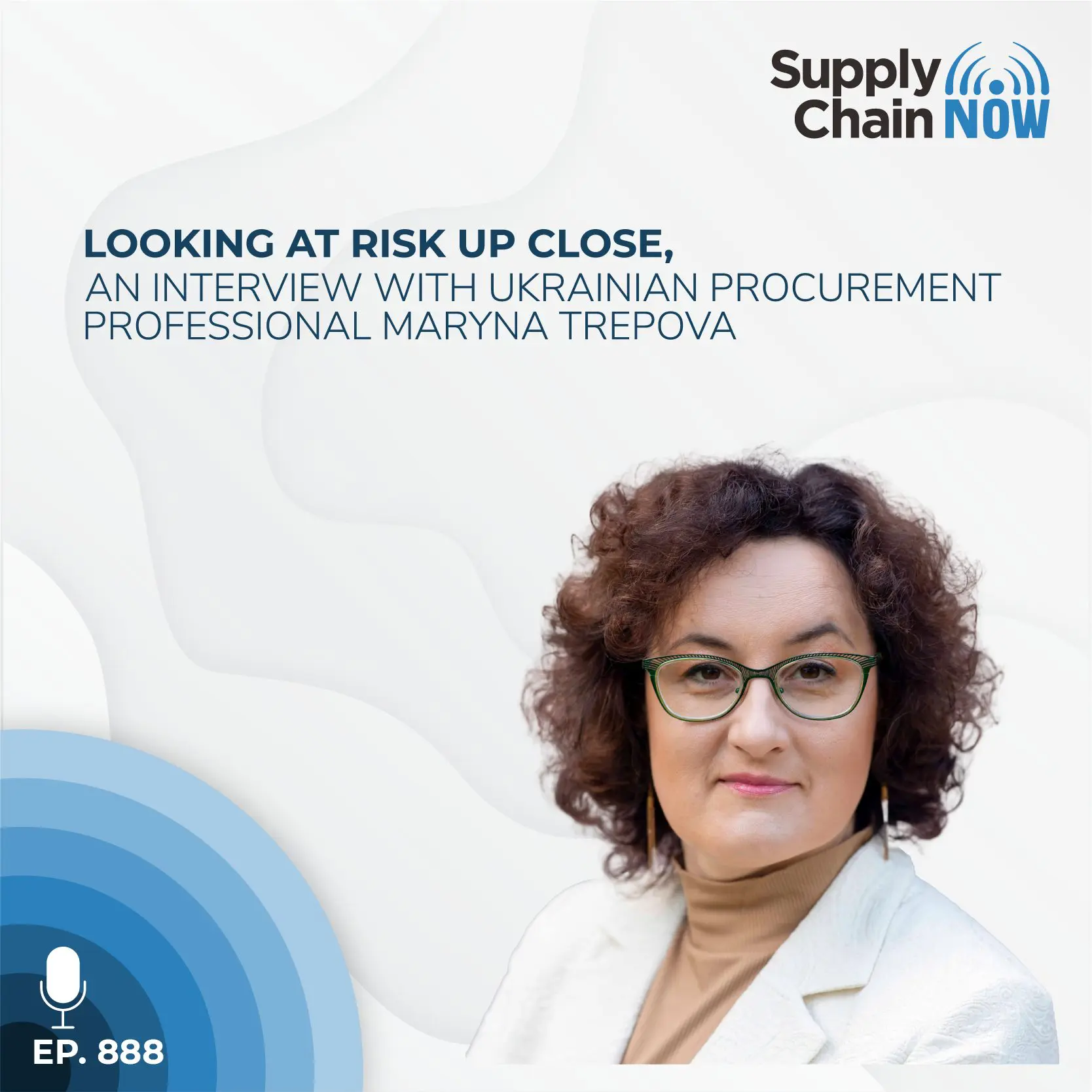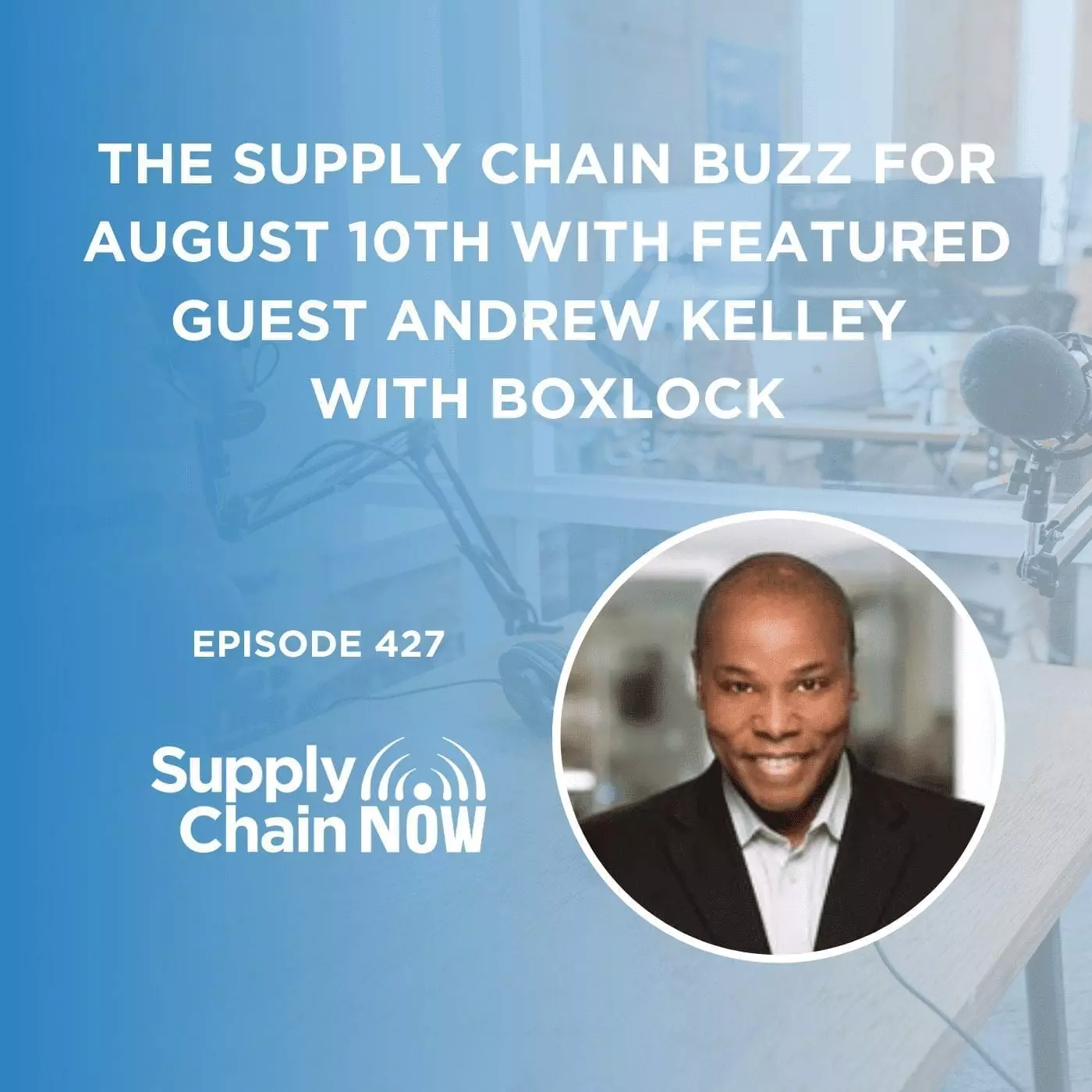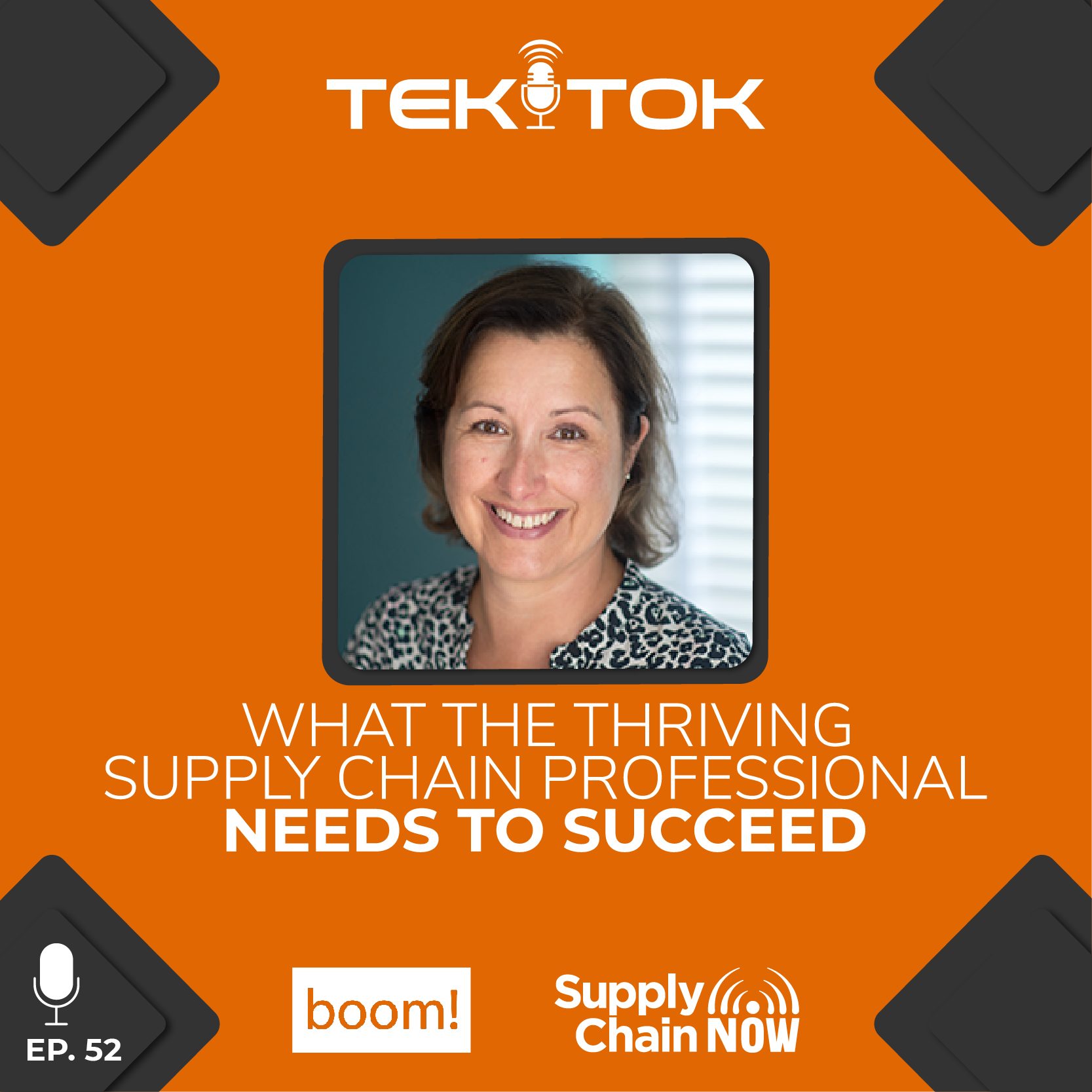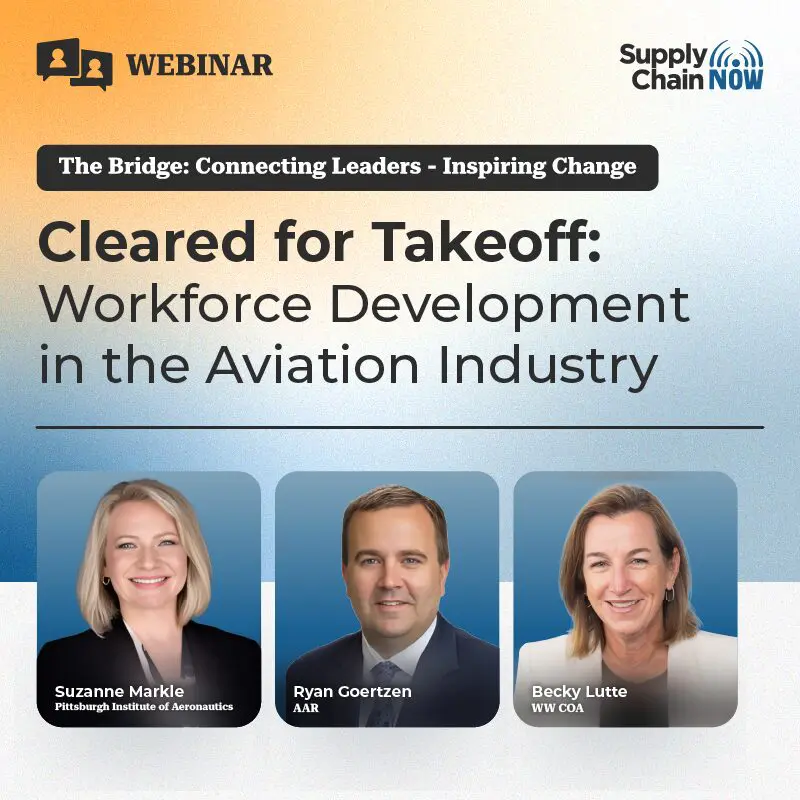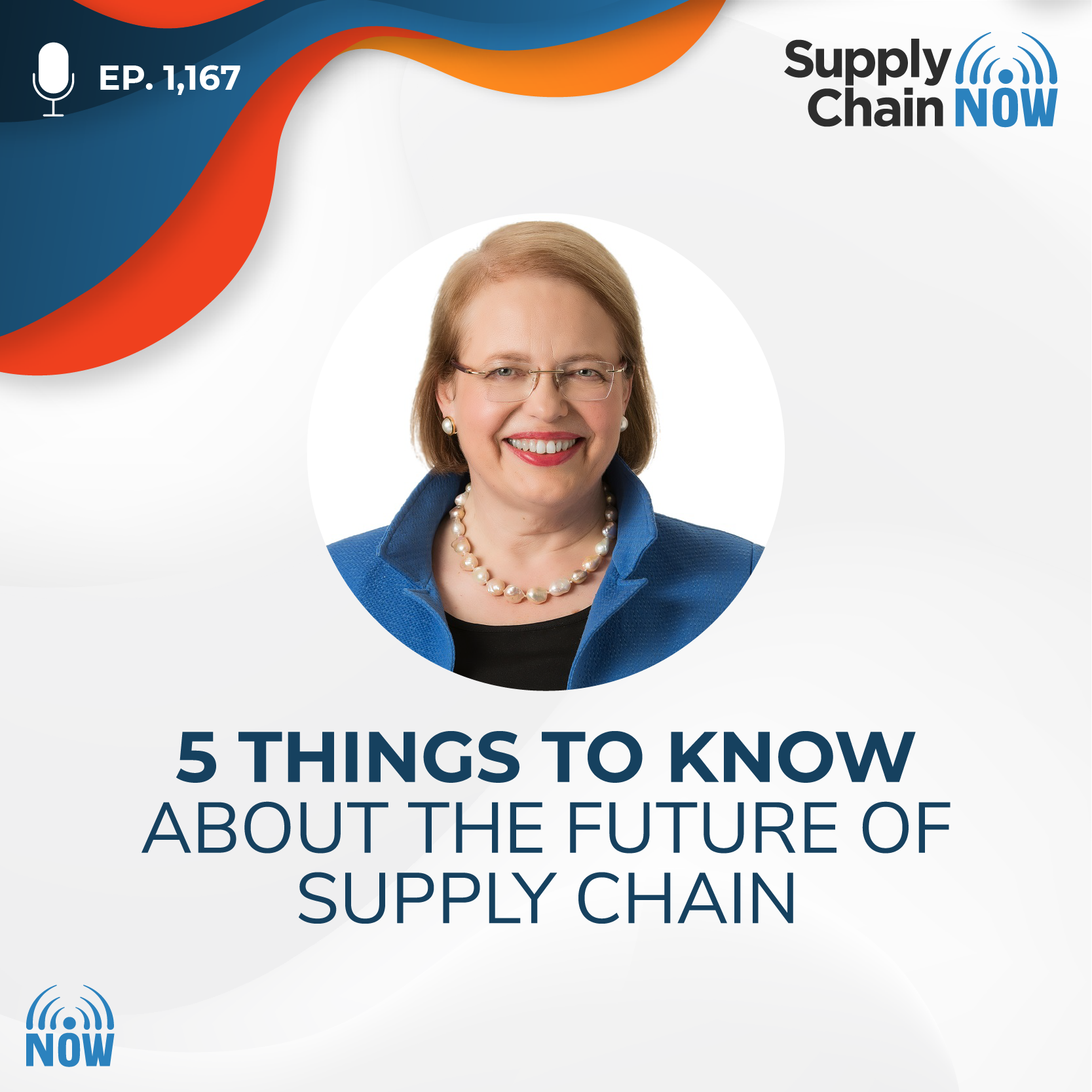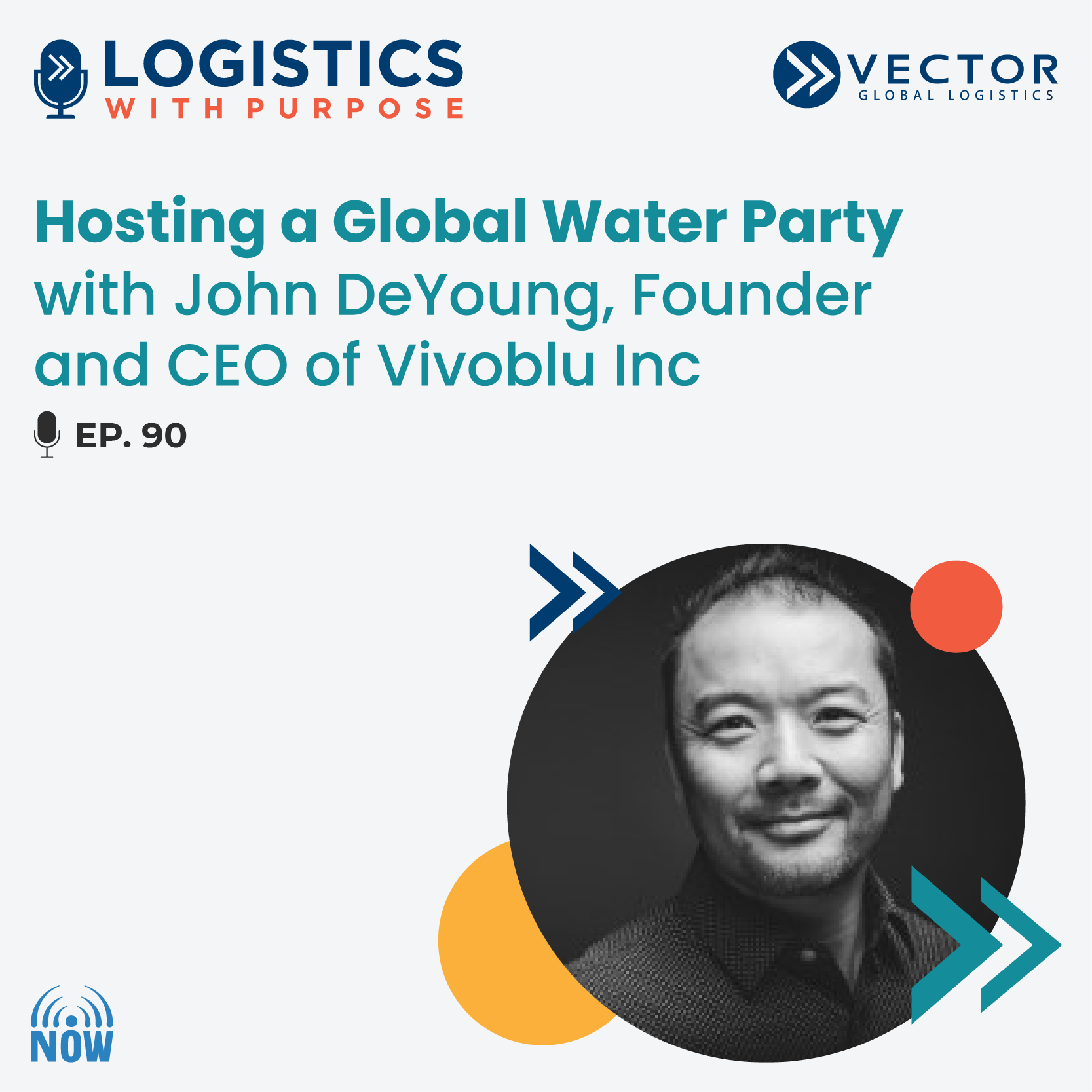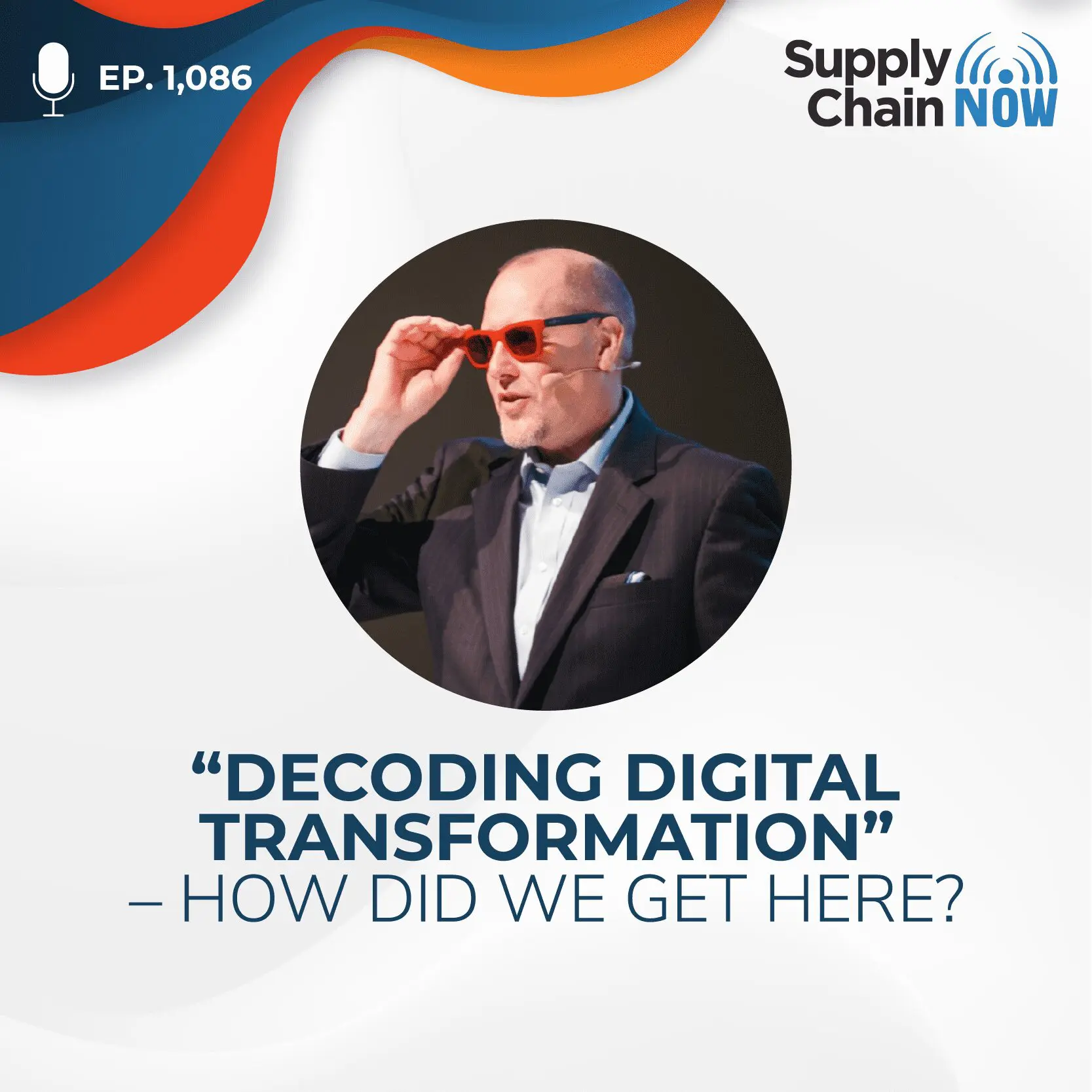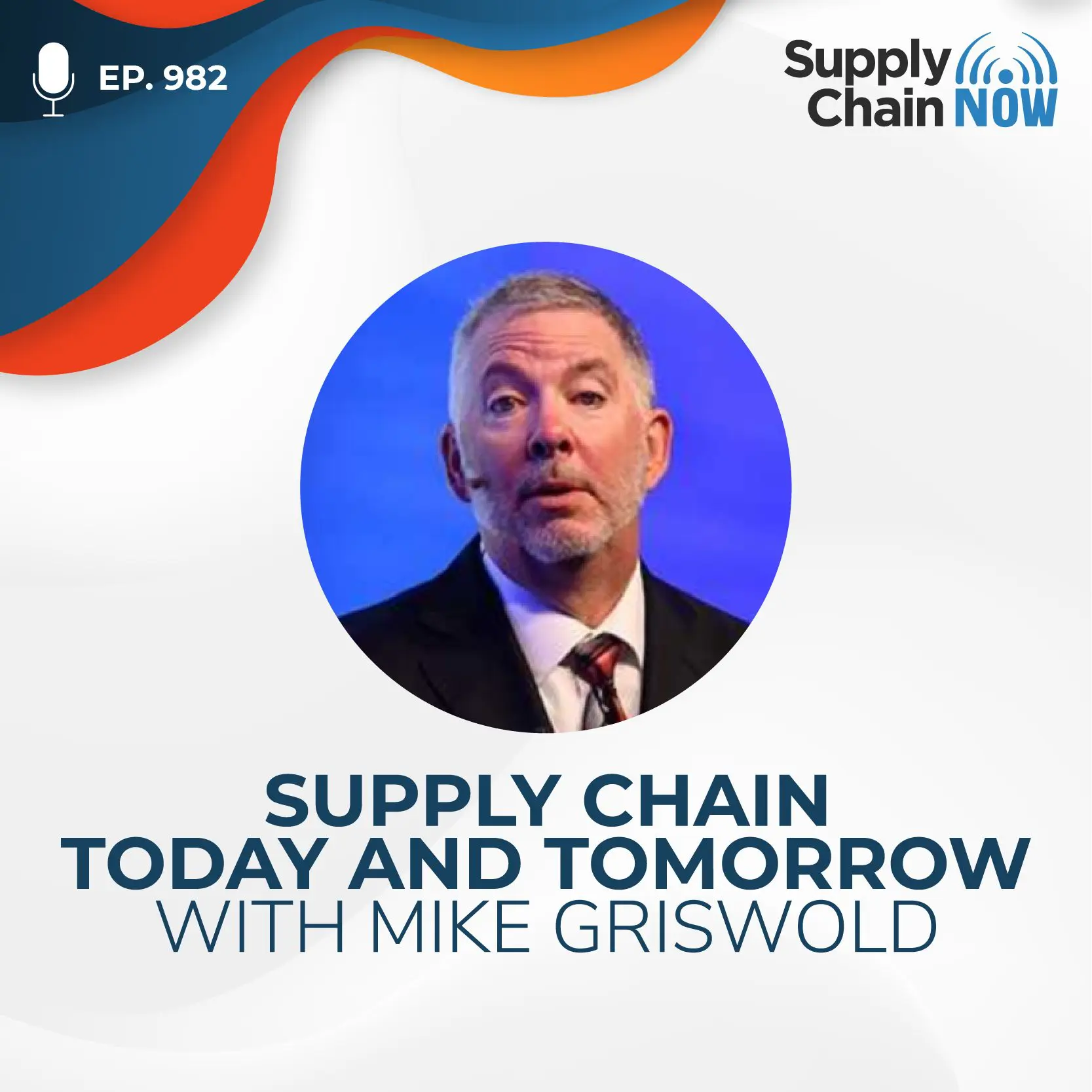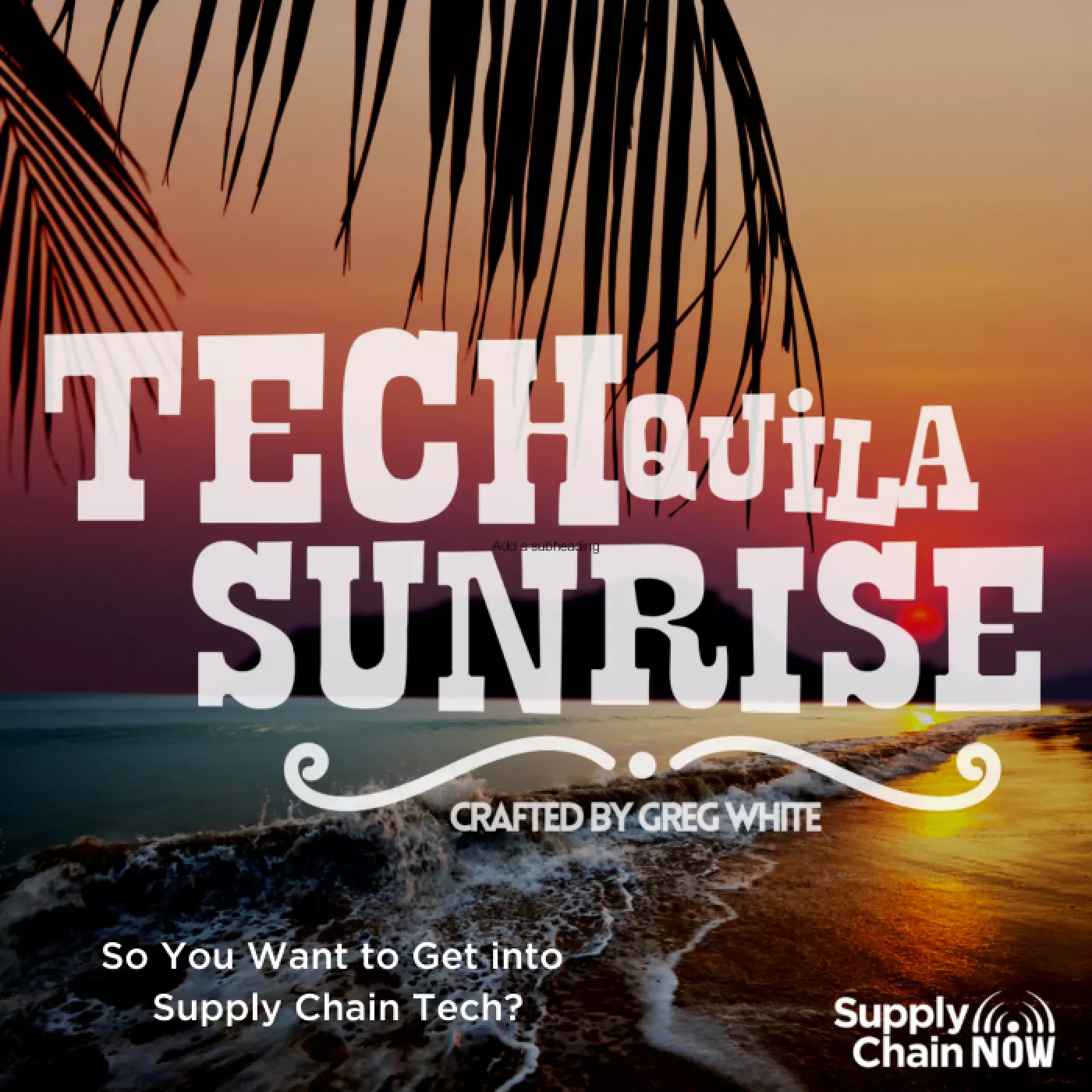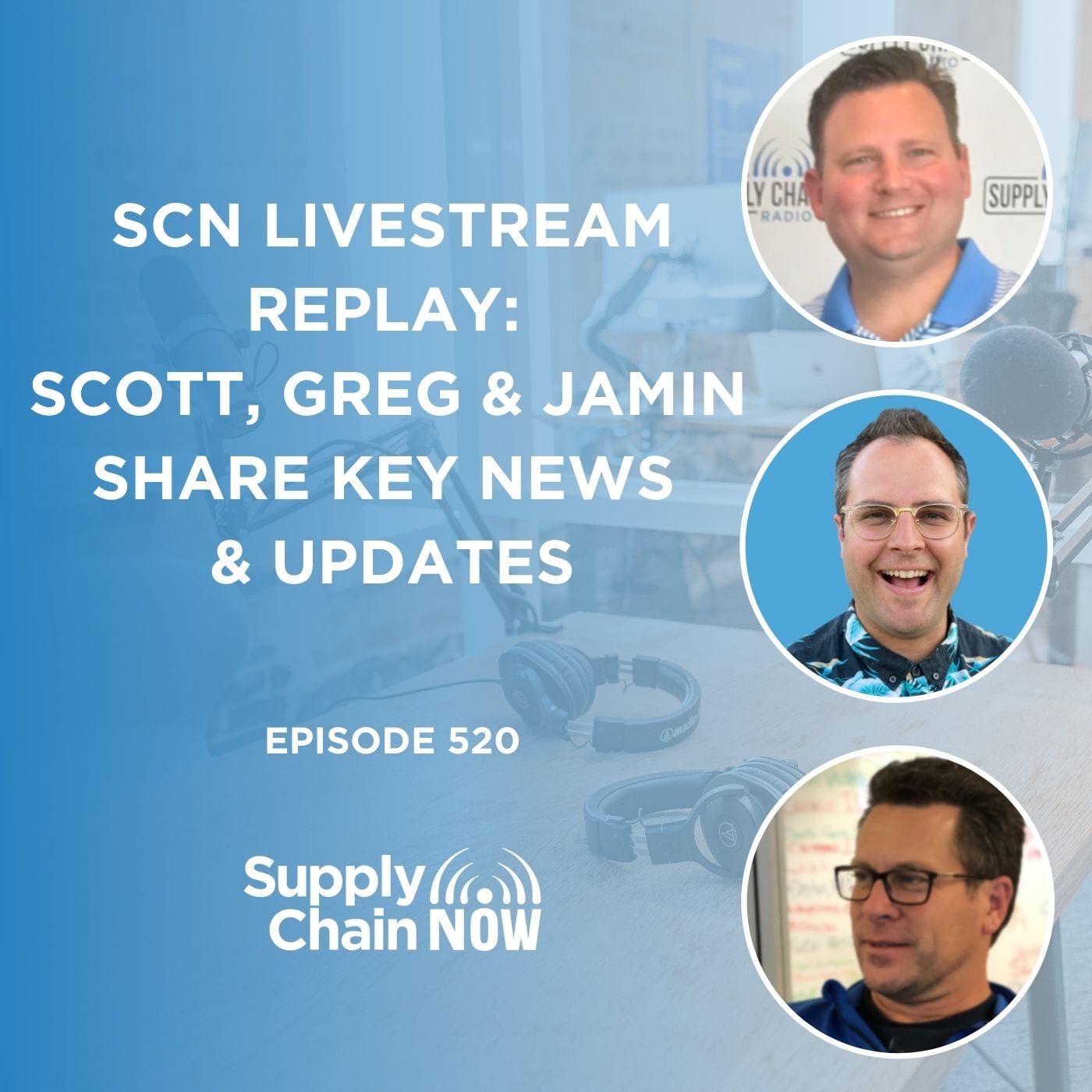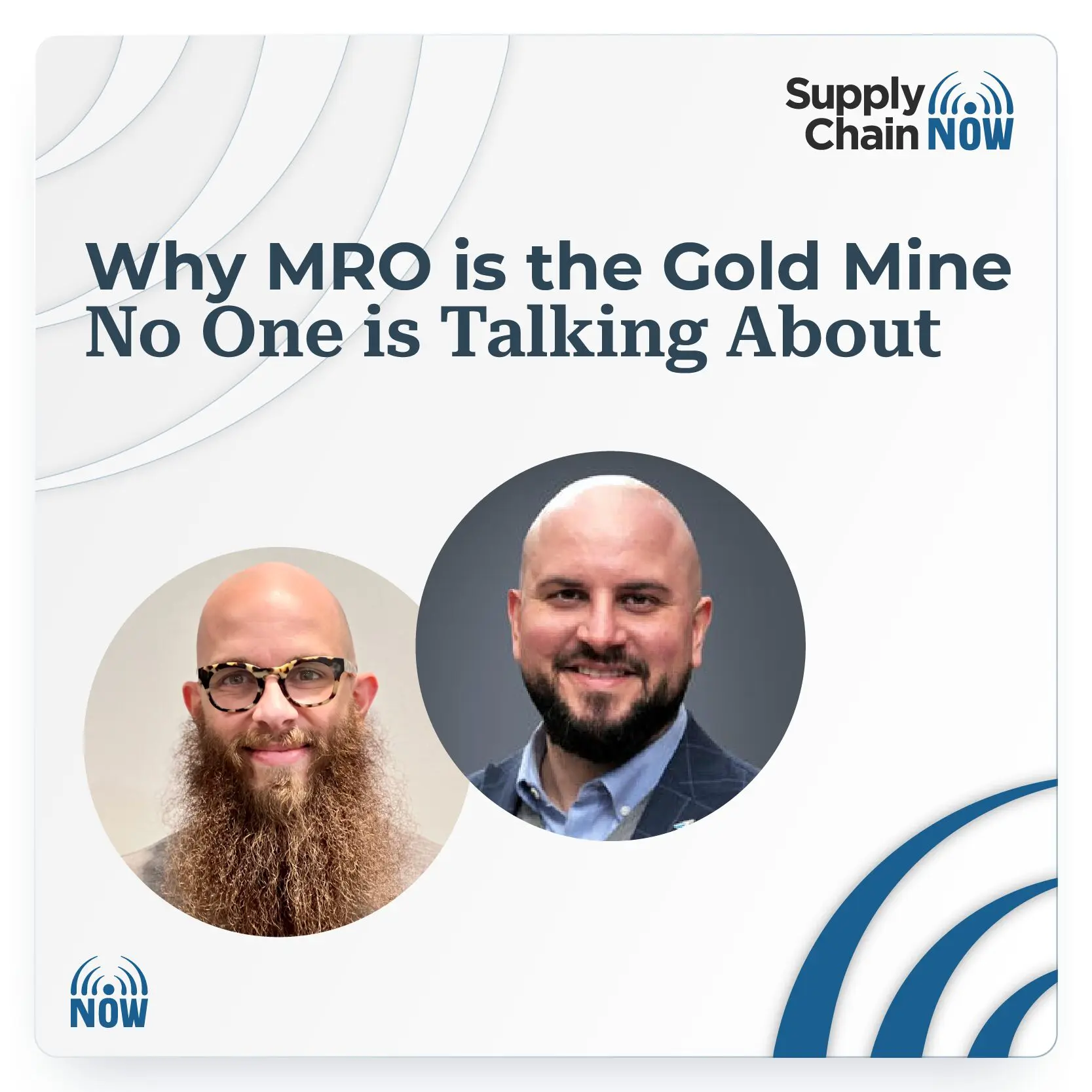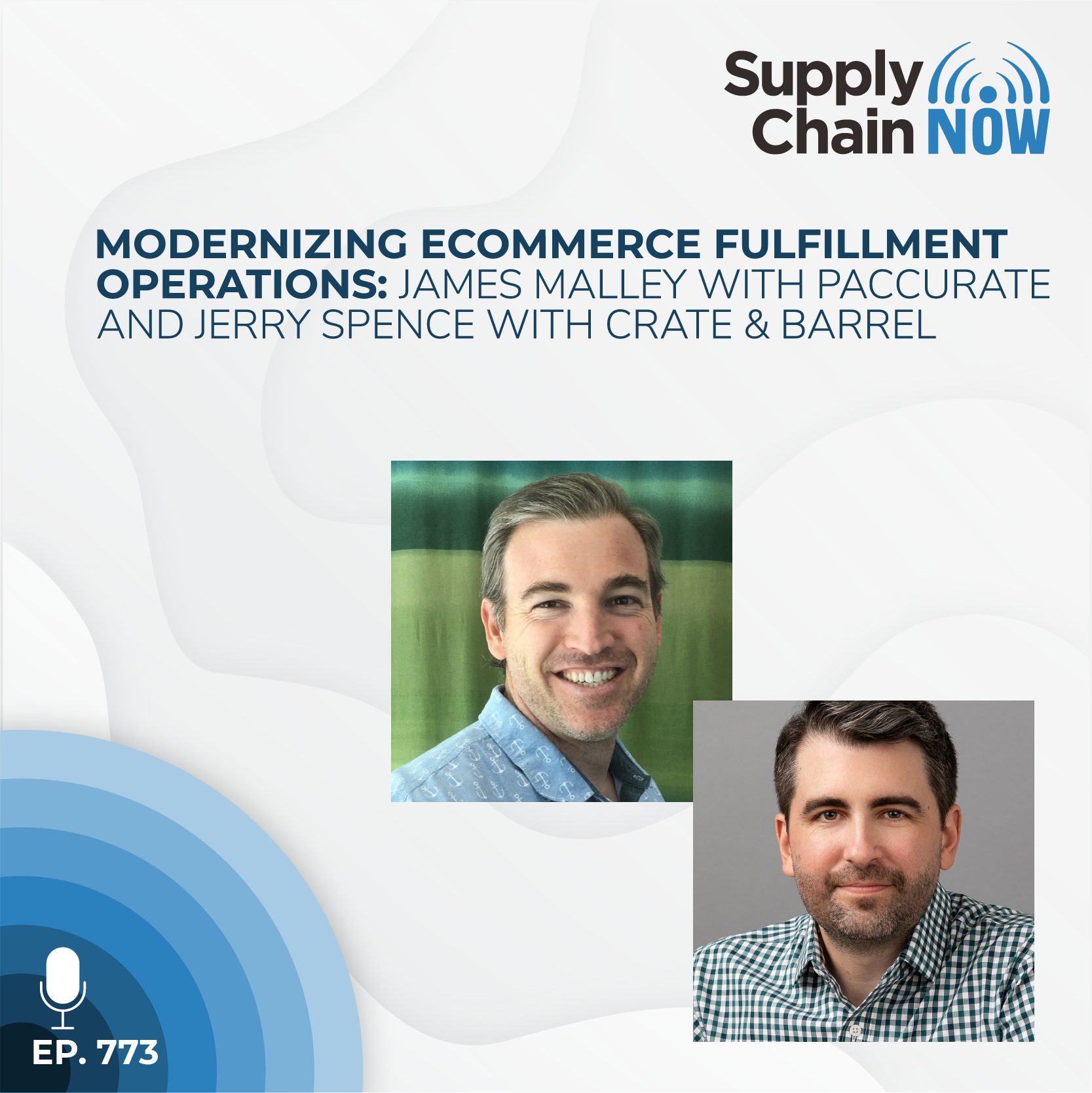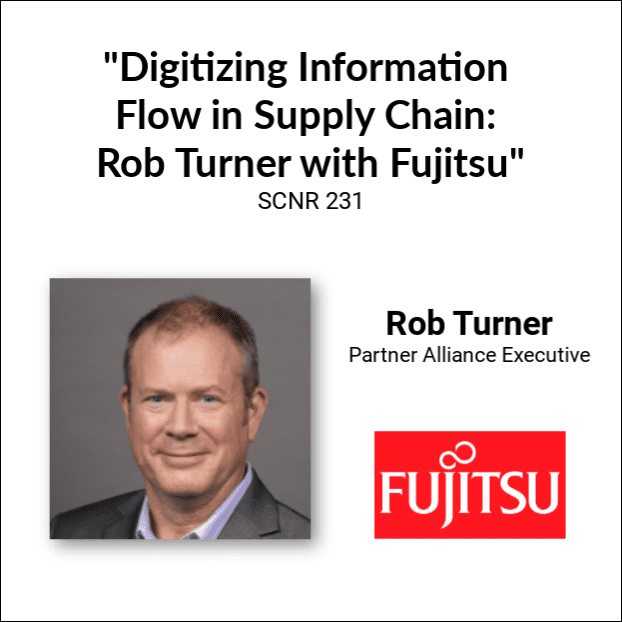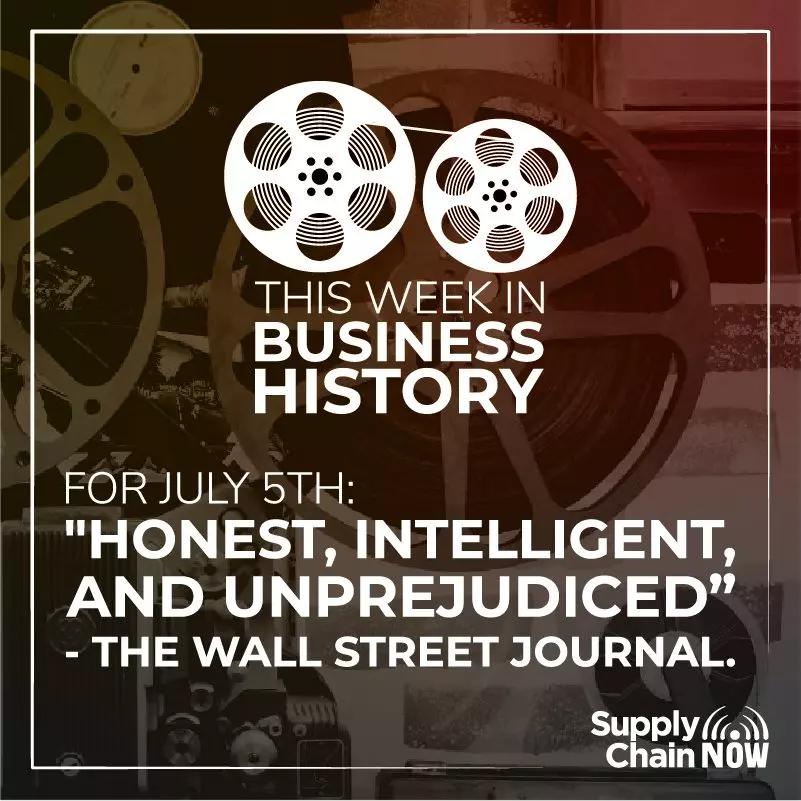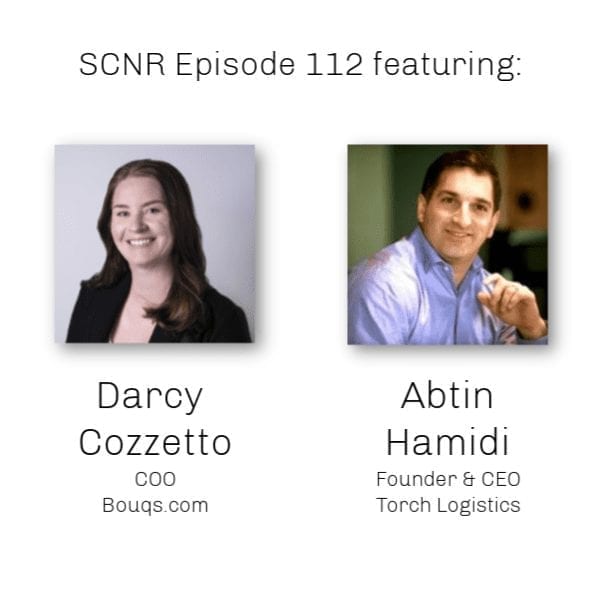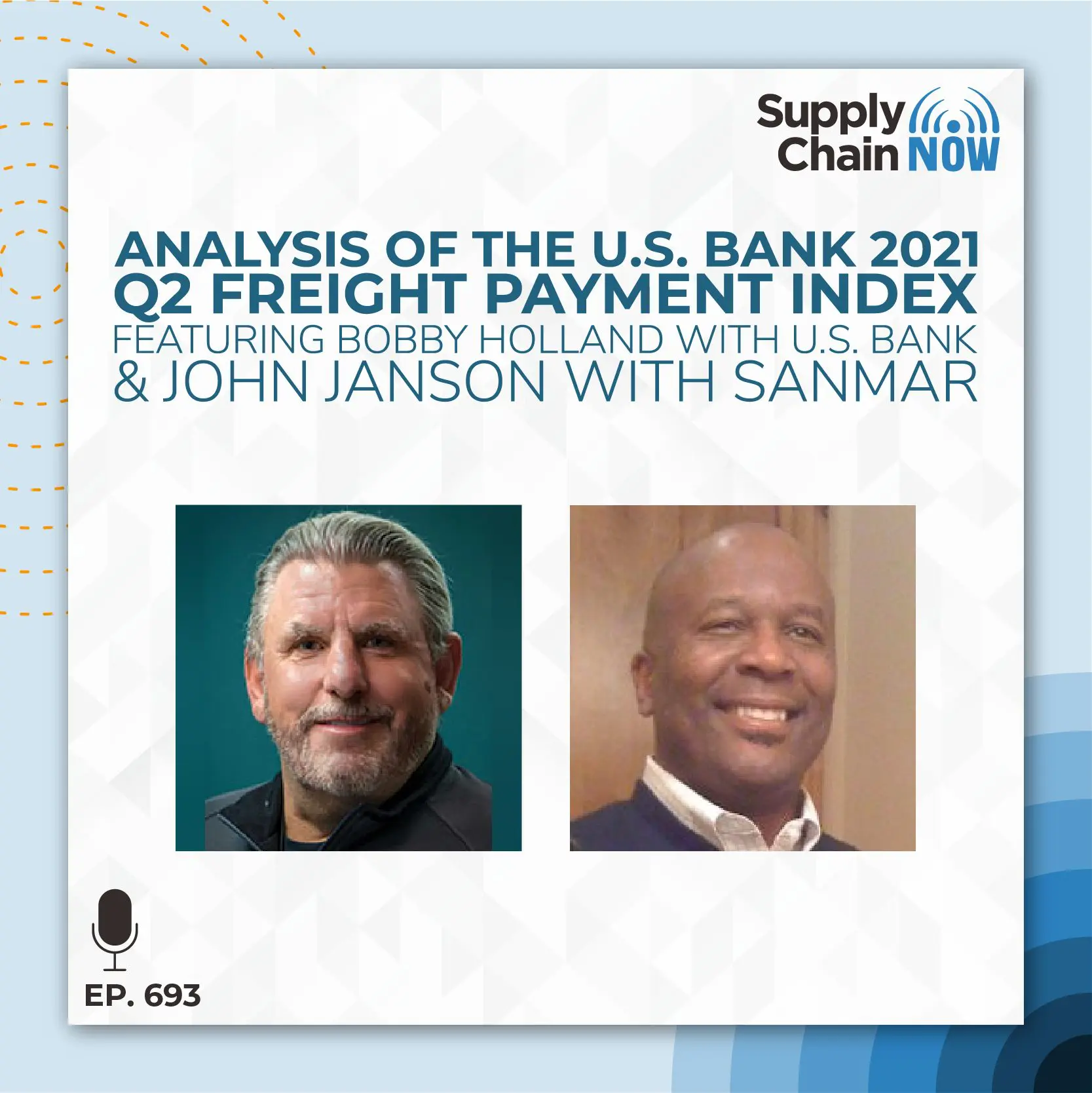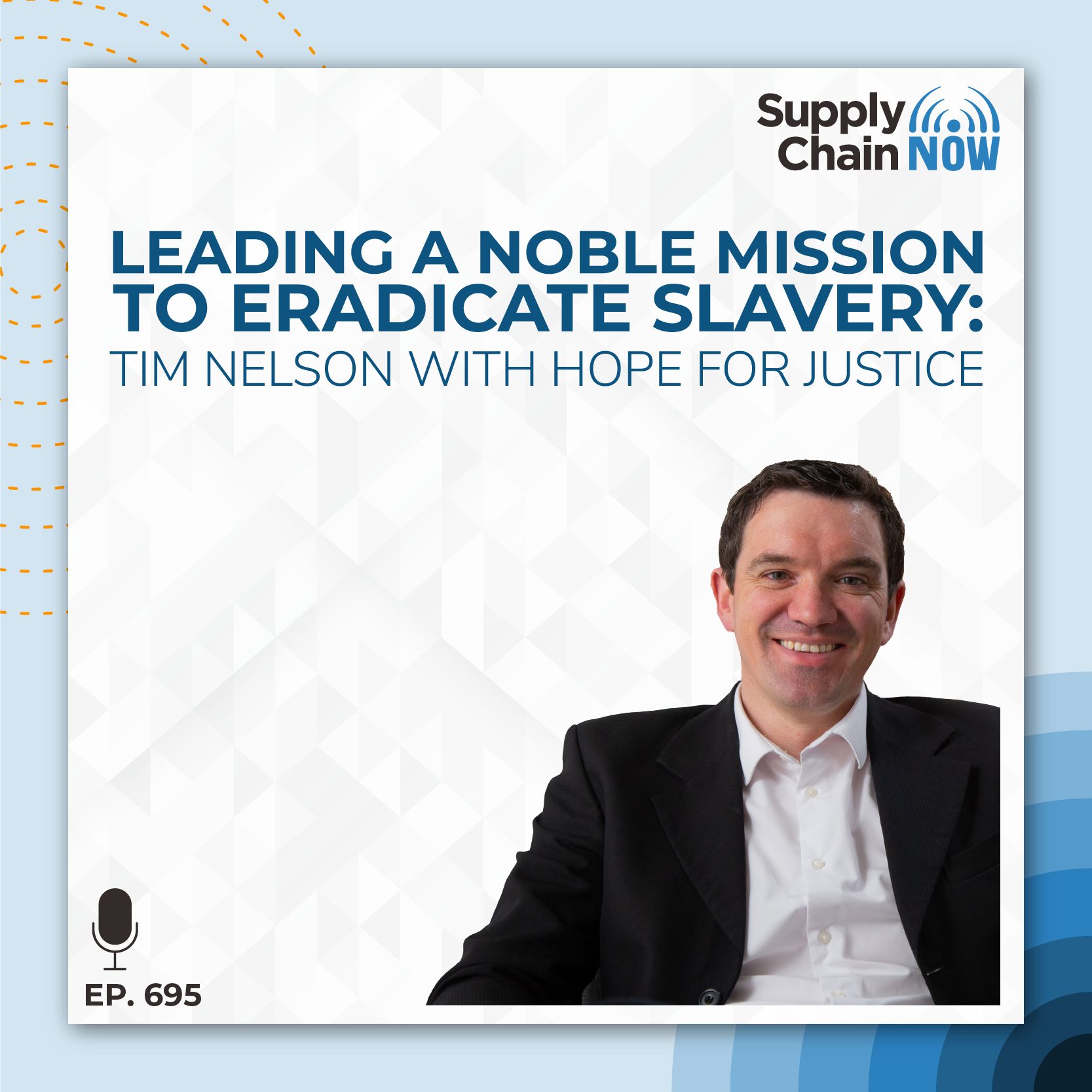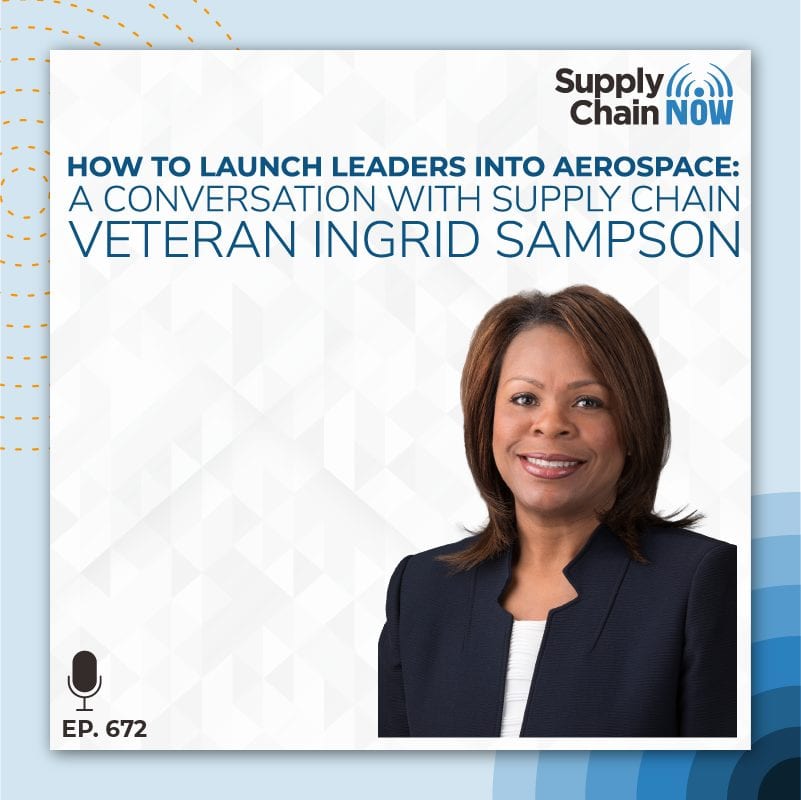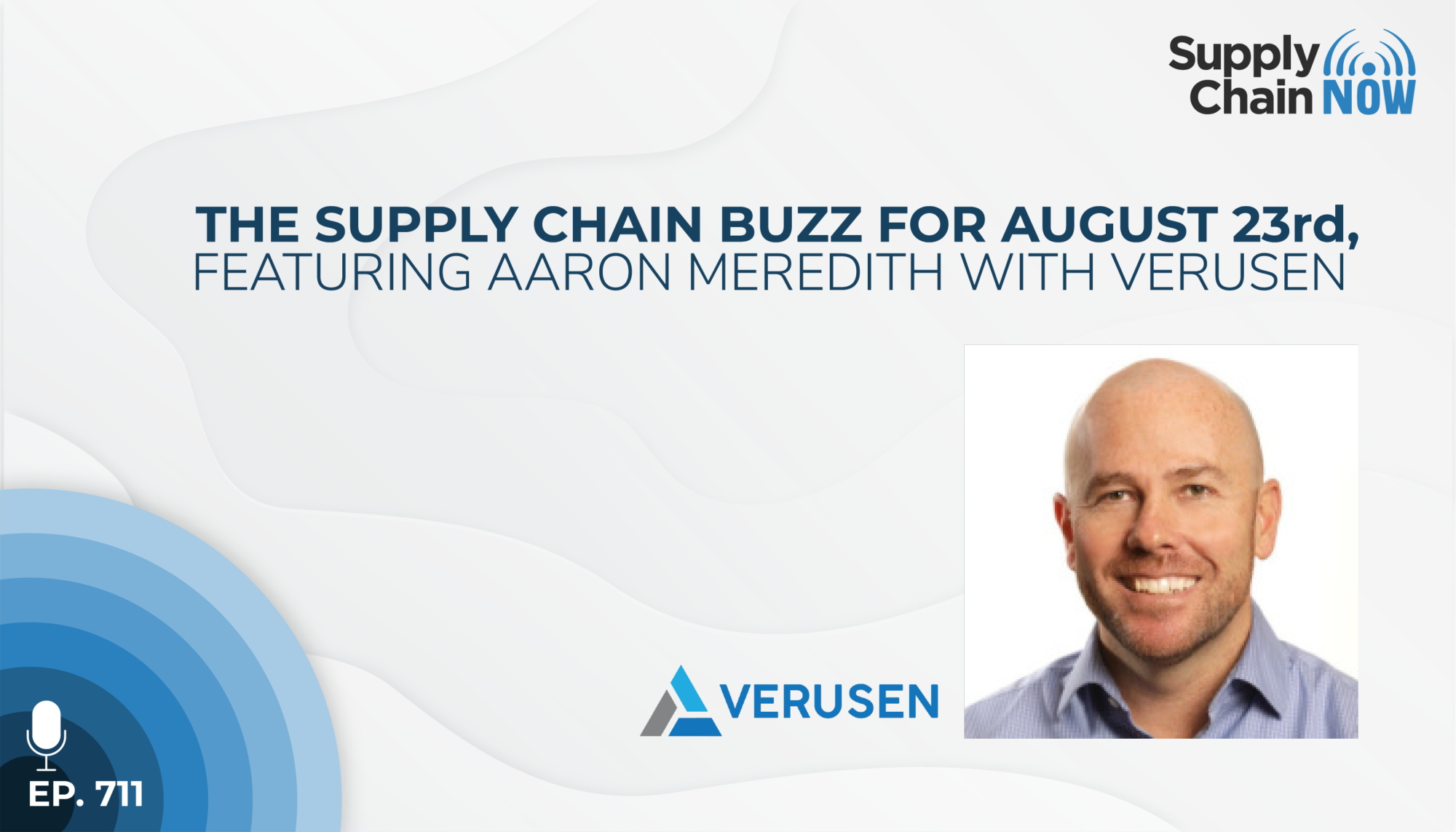
How are you going to go do 10,000 data cleanse projects? Are you going to go, 'Everybody get on the same system,' or are you going to do some sort of massive data governance thing across 10,000 suppliers? None of that's going to work, not for 10,000 suppliers. You're not. It just doesn't work. And so there has to be another way. And when you think about what we do at Verusen, at a very, very fundamental level, we solve the data problem that exists in these complex supply chains.
- Aaron Meredith, Verusen
Episode Summary
What do tennis balls, industrial real estate and dogs have in common? Why might your next trip to a smaller, regional airport be rife with delays and cancellations? Find out when you tune in for the Supply Chain Buzz. We’re joined by Verusen’s Aaron Meredith to get some early insight on the results of the company’s “State of the Supply Chain” survey – along with his expert take on the “material truth,” why a microchip shortage is bad for the auto business, and how companies can better incorporate materials management into their digital transformation.
Episode Transcript
Intro/Outro (00:00:03):
Welcome to supply chain. Now the voice of global supply chain supply chain now focuses on the best in the business for our worldwide audience, the people, the technologies, the best practices, and today’s critical issues. The challenges and opportunities stay tuned to hear from those making global business happen right here on supply chain now. Hey, good afternoon.
Scott Luton (00:00:32):
And everybody Scott Luton and Greg White with you here on supply chain. Now welcome to today’s live stream Gregory. You’re looking a lot more colorful than usual
Greg White (00:00:41):
Today. This is my Scott Luton birthday tribute. I decided I would bust out the colors like you do and uh, happy birthday by the way, in case anybody out there doesn’t know it’s Scott’s 29th birthday.
Scott Luton (00:00:54):
I love it. 29th too. That’s right. That’s right. Yeah. Right. Oh gosh. Hey, you know, um, we’ve got a special guest. We got the one only Colin Yankee tuned in, he says flight nice.
Greg White (00:01:09):
That’s outstanding, man. Thanks
Scott Luton (00:01:13):
Delayed in the Denver airport gets to listen to them. The first part of the show, what Colin welcome. And you
Greg White (00:01:17):
Know, we have been talking about tractor supply in our home lately. That’s right. It’s really interesting. You know, we have, uh, in our neighborhood they have a horse barn and everything and, and one of our neighbors has a horse that needs ivermectin. And when he went to tractor supply to, to buy it, they said, is this for you? Or is this for the horse? So apparently ivermectin is somewhat, uh, effective treatment for COVID so fascinating where that comes from.
Scott Luton (00:01:49):
Well, speaking to companies on the move, the tractor supply company, and they’re doing some really cool things from a supply chain perspective, we’ll have to have calling on once again, he joined us probably an episode a couple, couple months back, but anyway, safe travels to you, Colin. And we look forward to reconnecting soon. Welcome to everybody. We’re going to say, give some other shout outs here momentarily. Um, so today we’ve got a big guest that’s gonna join us in about 20 minutes, Greg, uh, Aaron Meredith with Verusen, uh, the, the maker of the material truth, which I love that phrase. Yes, it’s on the move as well. Huh? Yeah, no
Greg White (00:02:25):
Doubt. You know, they deal with, uh, indirect and direct materials, all the stuff that keeps the supply chain running. I mean, everything from the pulleys and belts to the, to the raw materials and products that go into those finished goods that go into boxes that come to your front porch or that you pick up in the store. That’s right.
Scott Luton (00:02:45):
And, um, and you know, in the, in these challenging ever challenging record brick and challenging times of maintaining the right levels of inventory, I’ll tell you, that’s one of the things really powering what they do. So standby as will be, be bringing on Aaron Meredith their executive industry advisor with Eris and here in about 20 minutes. But before we do that, Greg, yes, Scott, we better share a couple of upcoming events. And then we’re going to say hello to folks. And then we’re going to get to the news of the day with Aaron. So let’s see here. So I want to start with, uh, I stole this own, uh, mediocrities from our friend, Donna [inaudible], uh, Don is wonderful. If you’re not following Donna on social, you’re missing, uh, at least a good joke a day. And that sense of humor is so neat. So, so I love this. That’s hilarious. Uh, Donna, I hope this finds you well, and by the way, uh, let’s see Donna’s daughter and a big friend of the show. Alison had tuned in Alison, thank you very much.
Greg White (00:03:48):
Just on last Thursday, right? All Alison Thursday. That’s right. That was that live stream. Yes, it
Scott Luton (00:03:55):
Was, uh, an Alison. Thanks for joining us and love what you do. Uh, looking forward. We’ve got some big interviews with, uh, folks with Peloton, Mattel and others that Alison are going to be tackling in the weeks ahead. Okay. On a more serious note folks, y’all got to join us, uh, August 31st that’s next week for a webinar. It starts 1130 Eastern time on a data-driven approach to smarter deals with our friends from enable which Greg, by the way, I think they just announced, uh, uh, either 35 or $45 million fundraise. How about that? $45 million.
Greg White (00:04:28):
Yeah. So on their way to be in a unicorn as well. So we’ll have to check it out. I don’t remember what their valuation was there, but it was big. Yeah. Yes.
Scott Luton (00:04:39):
Very big. Join us next week. And you’re going to get a chance to see what’s calls and all that ruckus, uh, August 31st, 1130 Eastern time free to join Lincoln show notes. Um, and then we’re going to touch on this after Erin joins us towards the end of the show, but October 5th, we got a little more, a little more runway here, October 5th, the state of the supply chain report. It’s missing key takeaways from a ton of research and survey findings and, and other market Intel that we’re going to be presenting from verus and on the fifth. Is that right, Greg? Yeah.
Greg White (00:05:11):
Yeah. That’s right. I mean, they, you know, they, like you said, they’ve got their finger on the pulse of every aspect of the supply chain from the start to the end. And they’ve put out this survey, which I think we have, or will shortly drop a link for. So if you are inclined to give your thoughts on the supply chain, sign up,
Scott Luton (00:05:32):
Please. Um, and the links is it’s easy to, it’s not going to take you three hours. Uh, Amanda Clay
Greg White (00:05:38):
Do it not, should you do the survey? Okay. I’m doing it. I’m not sure if we’re really allowed. Cause we don’t really do any work anymore. Do we?
Scott Luton (00:05:46):
Oh gosh. Uh, but Amanda dropped the link there in the comments and we’d love for y’all to share what you’re seeing as part of that state of supply chain report. Um, okay. That webinar is October 5th. The link to join is in the show notes. Um, Hey, the momentum is building for Lora Cecere’s annual event, supply chain insights, global summit coming up in September, just a couple of weeks away. Uh, we’re hosting exclusively the virtual feed of the event and it’s going to be highly interactive. We’ve got two and a half days, Greg. We’re not talking about a million people. It’s going to be a very friendly audience for we’re all gonna be kind of, uh, eating our popcorn, drinking a diet Coke, enjoying the content. And then we’re going to be having conversations remotely, kind of exchanging, uh, how the keynotes and the panel sessions all resonate with us. So join us and Greg talk about the business case for joining the
Greg White (00:06:39):
Session. Well, I mean, this is not theoretical. What you’re going to learn is not theoretical. It is practical from practitioners. It’s from people who are planning demand, who are executing these plans, who are executing the execution of these plans, building, building these plans. So it is the people doing the work. It’s not just the people setting the goals or running the companies. And I think that’s, uh, that’s really the magic here is there’s something that you can take away from this that you can apply to your job. That varies.
Scott Luton (00:07:09):
Love that. So y’all check that out. The link to sign up is in the show notes, it’s also supply chain insights, global summit.com.
Greg White (00:07:17):
Oh. And look out because tomorrow I’m going to share a few thoughts of my own via my, uh, supply chain commentaries about what’s going on at this thing. And you know, why it’s worth doing
Scott Luton (00:07:29):
Love that love that let’s say hello to a few folks, and then I’ve got one more announcement and then we’re going to be, uh, having Aaron Meredith join us. So yeah, our dear friend, Kelly Barner host of Dial P for procurement is with us here today. Uh, getting back from the Cape, uh, as it were last week, I think Greg ever been to, uh,
Greg White (00:07:50):
Was that last week. Yeah, I think was she at the Cape again? Half, half? Yeah.
Scott Luton (00:07:57):
Yeah. Kayla would break our legs if she, she heard us say that. So Kelly, great to have you here. Appreciate all that you do. Uh, so FIA is with us here today. Good morning to you. Great to have you talk about, uh, industry ambassador, supply chain ambassador Sophia,
Greg White (00:08:11):
And she’s turned her sister, her twin sister into one as well. Right? So that’s, what’s really
Scott Luton (00:08:16):
Cool. That’s right. Andrea, uh, Peter Bo lay all night and all day is with us happy 18th birthday. I appreciate that Peter, um, getting even even younger, although, you know, if I had to choose, uh, going back to 18 versus going back to 29, it would definitely be 29, not 18. 18 is just too wild and crazy for me. How about you Greg? Uh, 18. It is. All right. Well, I appreciate that. And I appreciate Peter you sharing the golf tournament, a charity golf tournament that you’re a part of coming up soon. Barner is doing the dad joke count, uh, count already. It might be smoking by the end of today’s session by the end of this session. So we’ll even Aaron might contribute one. You just never know who knows Allison’s Kate stay away from you. Wild and zany kids. That sounds like an old Nicholas show.
Scott Luton (00:09:12):
Um, okay. So we’ll, we’re going to say a lot to more folks here momentarily, but I want to share something. Uh, so, you know, we publish Greg an episode of this week in business history every Monday at, at, uh, first thing in the morning. So we kind of, um, we got creative on the approach to this week’s episode. So growing up, my granddad’s birthday was August 21st and my birthday was the 23rd and we’d happen. W we’ve lived in the same town. I was very spoiled. I got to grow up in the same town with all four of my grand, my grandparents, which is a luxury these days, right? Yeah, it is you’re right. Usually the Sunday afternoon around these birthdays where it would be having dinner at, at my granddad and grand mom’s house and we’d celebrate both birthdays together and, you know, it was more about cake and stories and anything else and good company.
Scott Luton (00:10:03):
And, uh, I missed that. I kind of forgotten about that simple pleasure in life until my mom had reminded me of the weekends. So what we did is we built a, a brief show around what I consider to be the gold standard of leadership and humanity and generosity, which is my granddad, Dick Rutland. So, um, we kind of track his, um, his journey from managing a Winn-Dixie store, you know, which, you know, my, my dad and I ended up working at Winn-Dixie’s in our, in our journeys, um, getting out of that because he was working seven days a week and, and, and he had five kids and it was pulling time away from his family. So he happened to join Kimberly Clarks at the time, their new plant in, uh, in Aiken county, South Carolina. And that’s where he retired from. And, and, um, as a machine operator, you know, kept him busy all the time. And, uh, he did it by the book, by the book, as I was reminded by my uncle Richard or the weekend too, you know, if you’ve got a 30 minute lunch break, he wouldn’t take any more than 29 minutes, 30 seconds, but
Greg White (00:11:11):
It took a minute to walk back to the machine.
Scott Luton (00:11:13):
Right, right. Um, but you know, we, we need more people like Dick Rutland in any time in history, but especially now, um, he never, ever, when does that drop Scott? It dropped today. It dropped today. Yeah. Yeah. Um, and you know, there’s so much, I want to share with folks about Dick Rutland that I knew because you’d never hear it from him, but, you know, we wrap each show, uh, with, at do good gift forward and be the change and, and, you know, uh, that’s a mix of my mantra and certainly what we’ve heard Greg talk about, give forward and how to give forward. And, you know, he is the embodiment of, of folks that did that and did it right. And didn’t tell the world you’d never know about it. You know, you’d never know about it. So I invite you all to check out five key components of Dick Rutland’s business journey on this week in business history, which you can find wherever you get your podcasts from. I appreciate you indulging me as I kind of took a departure from our normal course, but you’re gonna learn some cool things about solo cup and when Dixie and Kimberly Clark and Buick of all companies. So all of that played a role in, um, this gold standard of, of a person, Dick Roland.
Greg White (00:12:26):
So, well, that’s really interesting, cause that makes me think of something that all of that, you know, that discussion, first of all, Dick Rutland, what a name
Scott Luton (00:12:35):
For
Greg White (00:12:36):
History lesson mean it’s hard, it’s hard. You can just hear him saying, hi, I’m Dick rubbish. Um, but you made me think of something. And that is, you know, when you were talking about sharing time and sharing stories. So here’s the thing, Scott, over this weekend, a few of us prompted by somebody who cares about you a whole lot may have gotten together and may have put together some shared a little bit of time and put some thoughts together for you. So if you got just a minute here,
Scott Luton (00:13:12):
Hit it. That was awesome. Um, first off I love all of y’all and I, I mean that from the pit of my being, um, this has been a remarkable journey and, and it’s all about the people that were sitting beside the people that are in the green room right now, the people that are in the comments, all the people that are making it happen right now. So we can, we can get what we need through these crazy times. And, um, so that was really special. I, I appreciate that. And those kids, our kids, all of our collective kids, that’s what it’s really all about. Right. Passing along what we learned and the values that, that in stories we pick up along the way so that they can do things better than we ever did so ever do. But Greg it’s an honor, man. Um, and we were just talking about Dick Rutland and the gold standard, but the people we were able to collaborate with on this team, um, you know, that a lot of special people, very special people. So thank you. All of y’all that,
Greg White (00:14:15):
Thank you. Yeah, very much. Yeah. You can give your wife that extra special. Thank you afterward, because it was all her idea. I know she’s in the office next door. So, um, do you need, yeah,
Scott Luton (00:14:29):
I’m good. I’m good. We’ve got a bunch of good news here today. We’re going to, we’re going to be tackling some of the heavy hitting news, but you know, um, I just learned something here about a special people we love, uh, as Lee and, and many others. And as they offer up their smart takes and these conversations, holy cow, she got married Saturday. What in world? That is that’s awesome. And I believe, uh, put, drop this in the comments. I believe you’re moving to Nashville. I’m hoping, you know, you were, um, you were kind of looking for some places as, as I think housings, you know, all of us are in a bit of a housing crunch, but let us know what you’re looking for and if you found it, but most importantly, congratulations as a, a, a lucky gentlemen to marry a very smart, intelligent lady like as Leah.
Greg White (00:15:19):
Yeah, no doubt, no doubt. Congratulations. Big day,
Scott Luton (00:15:23):
Big day. And I agree with you. Um, let’s see here,
Greg White (00:15:29):
Scott, I have to ask you, or I want you to tell this story, actually, I already know the answer, but I’m going to pretend like I don’t, what’s the deal with the new backdrop? Is that a birthday gift from, or to you?
Scott Luton (00:15:40):
We had a couple of big interviews last week and we can’t, we can’t let them out of the can just yet, but in doing so, um, a team was sent out, I’m here at a home studio and, um, I got some great feedback and feedback as, as Kelly and all of us know is a blessing. And, uh, so it kinda, you know, after we knocked that out and they departed got to thinking, you know, it would be nice to show a little more humanity in the backdrop. You know, I love all of our logos. And, and most importantly, I like the convenience of just how easy it is to create content with a boring backdrop. Um, but it, it, it kind of stemmed from, from some feedback we got last week. That’s awesome. It looks great, man. I appreciate it. And right here, clay Phillips, there it is. We’ve got Clemson, uh, Clemson, Georgia coming up just around the corner, Clemson first team ever to go 15 and oh, in college football. We’ll see if they can do it again, but, uh, quick, quick going to finish earlier note. So Nashville bound honestly is still searching. So if y’all have any, any, um, uh, heads up market Intel on a place, apartment condo house, you name it in the Nashville area, hookup with Azelia Davis. Okay. I
Greg White (00:16:52):
Can’t help much with real estate, but I can help with fried bologna sandwiches,
Scott Luton (00:16:57):
Roberts
Greg White (00:16:58):
Fried bologna sandwiches, uh, on Broadway. First of all, it doesn’t matter what kind of music you like. You can find about anything you want country music of course is predominant there. And possibly you’ll have to get a pair of cowboy boots. You just have to, but you can wear them anywhere in that. It doesn’t matter what kind of music you like. That’s right.
Scott Luton (00:17:18):
That is right. Um, okay. Well, I think we’ve had enough fun for this episode of the buzz. We’ve got to get the work. Greg, are you ready? I think work is fun. Let’s do it. Work is fun, especially when you got brilliant people that we’re going to learn from. So today Greg special guests, Aaron Meredith executive industry advisor with Verisign. So, uh, a little bit about Aaron and I’m not gonna do it full justice, but I want to kind of, uh, tee things up a bit. He brings more than 20 years of experience and expertise. We don’t go over 20 years, right? We don’t, we don’t. When
Greg White (00:17:52):
You see Aaron, you’ll never believe that he’s been in any business for 20 years. First of all, you are holding up pretty darn well.
Scott Luton (00:17:59):
Well, um, so more than 20 years experience, especially in manufacturing, engineering, supply chain and more sectors, he’s a smart dude. He holds bachelor’s degrees in chemical engineering that never would let me touch engineering curriculum as well as pulp and paper science and technology, both of those from NC state. And it’s just a couple, um, he’s lived and worked in three different countries, including Greg. This is new to me. He spent two years as a peace Corps volunteer. So when a welcome in Aaron Meredith was Verisign,
Aaron Meredith (00:18:32):
Hey, Hey, Aaron, how are you doing? Hey, good, happy birthday. I
Scott Luton (00:18:36):
Appreciate that. Um, Evernote, what surprised the supply chain or supply chain programs may bring every Monday morning? And then we got surprised a little bit here today.
Aaron Meredith (00:18:45):
That was amazing that this painting didn’t exist until that video came on. It was amazing. I love it. I do love the placement of that.
Scott Luton (00:18:58):
And of course you are, um, tuned in right now, Aaron, via the new, uh, Verisign headquarters in Atlanta, the supply chain.
Aaron Meredith (00:19:07):
Wow. Yeah, yeah, yeah. We’re here in tech square. I’ve got some new office digs and moved to in June, uh, room for growth. So it’s, it’s great. It’s fun.
Scott Luton (00:19:18):
All right. Right. So, um, yeah, I said a moment ago, we’ve already had our fun, but we’re going to, we’re going to warm things up with a couple of what we like calling this a lightning round. Um, so Aaron, believe it or not, it is national sponge cake day. Uh, Greg said, when he first read that he thought it was sponge, he was thinking SpongeBob day, how are we going to spend some time talking about SpongeBob, but I want to talk desserts because our group here loves food. And of course you got to love desserts. So what’s the best, the best I’m gonna ask you both the best dessert recommendation that you’d share with our community here.
Aaron Meredith (00:19:53):
Hey, um, I’m pretty simple on that front. Give me a good dark chocolate ganache. It’s all I need. Ooh, that’s delicious.
Scott Luton (00:20:03):
Greg. My wife’s
Greg White (00:20:04):
Cherry pie is outstanding stock, completely stolen recipe. And she improved on it. Um, yeah. With, uh, with vanilla ice cream, like homemade vanilla ice cream beside, it sounds good to me.
Scott Luton (00:20:24):
Uh, at Peter yes. Hug a day friend too. I heard everybody, you know, it, as comfortable as folks are, give, give some hugs to your friends. Okay. So, and also y’all check out supply chain chow our, our food only, uh, uh, community owned Facebook web to expand that a bit. It’s been some fun conversations. Okay. So we’ve touched on football a moment ago. Uh, so Aaron, you are an alum of NC state, uh, the home of the Wolf pack home of, uh, one half of the textile bowl for decades and decades back when Clemson NC state would tangle, um, what’s going on with NC state football to give us a quick prediction. And then I want to get into your, uh, tailgate tradition.
Aaron Meredith (00:21:07):
Hey, uh, you know, we’ve got 20, 21 starters returning. Clemson’s got to come through rolling this year. So, oh boy, a stud a quarterback. He looked good before he got hurt last year. So, um, I think we’re flying a little under the radar right now, which that’s, that’s all right. That’s always a good thing to do our teams we’ve had for quite a while though. Love it. I don’t think, you know, I don’t think people know that, um, the original stock of the great Russell Wilson was North Carolina state. Of course he finished his college career with constant. Is that right? Yeah. But yeah, but he, because he had an extra year of eligibility and all of that, but NC state known as quarterback university, we got, we got like five, five QBs in the NFL. So Phillip rivers, of course Mike Glennon, Ryan Finley’s in there now. Yep. So Wilson heard that Phil, he was playing with the dolphins the other day, you know, against, uh, against the Falcons exhibition game. He’s an NC state guy.
Scott Luton (00:22:09):
It was winning because the Falcons have not been good. Rivers is talking about coming back out of retirement. So we’ll see, um,
Greg White (00:22:19):
Plays in the AFC west because the chiefs haven’t gotten enough opportunities to pound him into the dirt. Oh man. Aaron. All right. Let’s switch gears. Not an NC state thing. I loved him in college. Um, all right. So let’s talk,
Scott Luton (00:22:36):
You know, Aaron, when you were going to those NC state football games back when you were matriculating through those really tough programs, you might’ve been studying on Saturdays. I don’t know. I know I would have had to, but what, what was a, um, a key tradition, whether it was, uh, you know, holding wall bar or a food or what was the tradition?
Aaron Meredith (00:22:52):
Yeah, I mean, it was tailgating at the stadium, right? I mean, I’d never experienced anything like that, but tens of thousands of people around the stadium, it’s, it’s next to the, uh, North Carolina state fairgrounds. So lots of all RVs out pig pickins I didn’t know what that was till I got to North Carolina. I mean, big old bear. What is that in there? It’s like, it’s amazing. So, well you
Scott Luton (00:23:15):
Put a hole, you put the whole pig or at least a whole side of the pig and you cook the whole thing and then, and then you’re able to, um, kind of mix it all up. So you get all kinds of different, uh, textures and, um, you know, crumbles as I call it. It’s really, it’s just a, um, it’s a wonderful way to eat
Aaron Meredith (00:23:33):
The Tucky. I thought I’d eaten critters every way. There was to eat them. The pig picking came with that. So, yeah.
Scott Luton (00:23:39):
Oh gosh. Um, just anything but chitlins, anything but chitlins we’ll save that for a later, but you’ve never heard of chitlins, Greg.
Greg White (00:23:49):
No, I, I love, uh, really. Oh my gosh. Yes. To dive in deeper.
Scott Luton (00:23:56):
I’m I’m, I’m surprised to hear that I have to get your Chitlin stories. Okay. Well let’s um, so let’s get down to business. I’ll tell you, we spent, we’ve had too much fun this first 30 minutes of the supply chain buzz. We’ve got, um, 30 minutes. Can you believe that we’ve got one heck of a subject matter expert in Aaron Meredith here with, they want to pick his brain as we walk through some of the news stories of the day, I’m going to put this up here first. So, um, so rest assured folks, as I share this, we’re running a lot of things, but toilet paper thus far is
Greg White (00:24:26):
Not one of them. Not one of them.
Scott Luton (00:24:28):
We wouldn’t have kind of have fun with this image here, but, um, you might be surprised at this list of nine other things as assembled by money talks news, where we’re really having some extra struggles when it comes to inventory. So Aaron or a couple of things that may have surprised you on this
Aaron Meredith (00:24:44):
List. Yeah. I mean, it’s, it’s just amazing. You know, we hear about a lot in the industry, computer chips. We’ve talked about that a lot. Uh, but tennis balls, paper bags, dogs, don’t pretty short supply. They were illegally importing dogs in the U S right now, which the CDC is trying to control, but, you know, wow. The pandemic has just had such a broad impact on every aspect of our lives that, uh, it’s, it’s truly, um, you know, supply chain problems everywhere. Right. So as soon as I get a dog anymore, I know I’ve really got problems. So yeah. Yeah. Tennis balls through here in Atlanta, you guys know that tennis is huge. Yes. And, uh, that that’s a good heads up. I’m going to have to head to Costco. Well, we can’t interrupt
Scott Luton (00:25:37):
The play of two tennis champions, Greg white and Vicki white. Who, who have, uh, one more Wimbledon’s this side of the Atlantic ocean there, any others? So we can’t interrupt those games. Can we, Greg
Greg White (00:25:50):
Atlanta Wimbledon’s yes. Yeah. And Vicky shames me by the number of city championships. She has an
Scott Luton (00:25:55):
Alto. No, I was just talking to Vicki last week about it, but on a more serious note, I mean, nurses were on this list, right? Because of all the, the, you know, this, that, and the other paper bags, which I think when you all shared, I read a story not too long ago about McDonald’s was running out of paper bags because folks were still eating what they eat in the restaurant, but then they didn’t want to reuse the plastic tray. They wanted to end the bag. And that’s one of the things that’s causing them to run out of bags. And then finally, I bet our friend or Richmond Greg is doing well because industrial real estate is owned the list. Right.
Greg White (00:26:29):
It is indeed. Yeah. As people try to build out fulfillment centers and those are often in industrial complex, or they’re building out kind of a mid tier warehouse or something like that. It is. Yeah. It’s incredible.
Scott Luton (00:26:43):
Uh, blood is on the list of folks. If you, if you are able to donate blood, now’s the time now is the time. So, um, all right. So we’re gonna talk about computer chips. Of course is also on the list. We’re going to circle back on that, on our third story that we’re gonna cover with Aaron. Hey, Aaron, last, uh, before move to the next story. Anything else about this list of nine or, or the times we’re navigating through?
Aaron Meredith (00:27:07):
Yeah. I mean, I think that’s the main, the biggest thing is just like, it’s things you didn’t think about. Right. I think we’re, we’re all getting caught off guard, not just in our day-to-day businesses and operations, but it’s impacting our lives at home. And, um, yeah, it’s huge. I mean, big global connected community. Somebody drops a rock somewhere. We feel it other side of the world. Right. Okay.
Scott Luton (00:27:29):
Yeah. Now is the time for extra empathy, for sure. So we’ve been chatting about this article nine things that are in short supply in August courtesy of money talks news. I want to move right along to this next piece. So we’re talking about Mesa airlines, uh, according to aviation week network aviation week network. New one for me is reporting that Mesa airlines is really struggling with the spare parts shortage for one of its particular airframes, the Bombardia C R J 900, which they just, I believe they, they, uh, the last one came off the production line back in April or March. I’ve just stopped producing it. But Aaron, tell us more about the story.
Aaron Meredith (00:28:08):
Yeah. I mean, this, this one hits a little near and dear to everyone who flies a lot. Right. Um, because you know, this is going to result in delays and, you know, they had normal turnaround times 25, 30 days for maintenance, regular maintenance. And now it’s like 60, 65 days just to get parts in. So, uh, and all the downstream ramifications that come along with that. Right. And, you know, I think that ultimately, you know, I think it was Sandra McQuillan on your show once said that, you know, supply chain begins and ends with the customer and ultimately Mesa’s customers are gonna be upset because they’re, they’re going to be disappointed, uh, from these parts outages. So, um, you know, this stuff has the gratifications for all of our businesses.
Scott Luton (00:28:52):
Yeah. Uh, that, that was, uh, Sandra and I bet Greg Greg loves to talk about, and we, I agree with him, uh, the, uh, Greg, how do you put it? The consumer, the supply
Greg White (00:29:03):
Chain begins and ends with the consumer. Right. So it’s interesting because this candidate regional jet, um, has become the defacto short and mid haul, um, vehicle for a lot of these quote unquote regional airlines. They may carry a Delta or an American flag, but Mesa and other companies are often the operating entities of these things. So it will start impacting the big airlines because they are Delta branded flights, they’re American, United, whatever Delta or whatever, um, uh, TA uh, labeled flights. And they are the ones taking you from Atlanta to, or Atlanta to Jacksonville, sometimes some of these smaller and regional airports. Um, but, but it is, it is a great vehicle for, uh, that kind of mid haul business flight. And some of the ones that are still profitable when you use a jet like that, but smaller customer volumes and the CRJ 900 is the largest of those airframes as well. So it is going to impact the ability for them to take, to, to fulfill those flights that are bigger, but yet too small for a 7 37 or something like that.
Scott Luton (00:30:17):
You know, um, Greg of course Bombardia has manufactured in Wichita for quite some time. Yeah. And I was trying to see if Wichita ever produced, uh, parts for these planes. I couldn’t, I couldn’t really get, I was trying to find the, uh, the manufacturing history for the frame, but I imagined something was made for this plane in Wichita. You think,
Greg White (00:30:36):
I would imagine if only spare parts. So a buddy of mine, Brian detain works for a company that does, um, uh, landing gear for a number of major aircraft suppliers. And I know, I can’t say for certain, but I know that it it’s possible that Bombardia is one of the brands that they, they operate for. So, you know, I found out last week I was talking to somebody that works for a rolls Royce and, you know, for a rolls Royce jet engine, 30,000 parts from 10,000 suppliers. Wow. Wow. That’s quite the explosion. When you think about it like that, I mean, that is a lot of potential points of failure in the supply chain. Right, right. Right.
Scott Luton (00:31:23):
Uh, uh, Gulf stream made down there in the Savannah area uses role as rolls Royce engines. And I was thinking, I, I toured there, Greg and Aaron, it’s been a couple of years. Um, and, uh, had, uh, an association friend of mine was able to get a group in and it’s remarkable, uh, the levels of service that they promise if you’re, if, if the, the call, as they described it to me, if the coffee holder or the coffee maker and his machines goes down, they can get, they can have a team out in less than 24 hours. And that’s the level of service for those Gulf stream customers. It really is.
Greg White (00:31:59):
Yeah. They’re out there quick, like a G six.
Scott Luton (00:32:06):
Well, and they’ve got a part of a part of the place we toured was kind of like a NASA, uh, tracking room. Right. Because as they were tracking where the needs were, where it really wasn’t impressive operation, uh, and you know what, Peter Boulay speaking of airlines, aviation, uh, the article itself that Aaron’s talking about here in, uh, aviation week network, it actually, it was a Canadian airlines. Uh, let’s see here. Yeah. Canadian air,
Greg White (00:32:34):
Regional jet. That’s what they’re called. That’s what CRJ stands for. So they were originally for Canada. How about that right candidate here.
Scott Luton (00:32:45):
And Peter’s sharing here. Um, y’all bear with me as I try to decipher this. So they disallow, I guess, Canada air disallows, PMA, parts, parts, manufactured authority, which he says are a ton cheaper than the OEM part, even if they’re the exact same part from the same manufacturer. Uh, but doesn’t have the same stamp on it. Uh, Aaron, you’re shaking your head. Is that, is that ringing a bell for you? Yeah.
Aaron Meredith (00:33:10):
I mean, it’s just another constraint in your supply chain. You’ve got to manage through, right. I mean, God, 10, 10,000 suppliers, 30,000 parts for anything is a, is a bear to manage. Right. All that risk. I mean, we hear all the time from our customers about, you know, wanting to be able to better assess supplier risk, you know, giving her all the disruptions we had. Hmm. That’s that’s a bit of an elephant. Right.
Scott Luton (00:33:35):
It’s massive. And, and as you and Greg both were pointing to, um, this isn’t like a, um, you know, if a toy were to break, you know, nothing, there’s not going to be a massive ripple effect. Right. Gosh, you’re talking about keeping 200, 300, you know, labs safe in the air. And of course everything around them. So, you know, failure is not an option. Right. That’s right.
Greg White (00:33:59):
I mean, it it’s that important, right? I mean, this is, this is the equivalent of flying medical supplies. It’s literally life or death. Right. So, um, yeah, it’s really important. And that’s why, you know, even though PMA parts are essentially the same as OEM parts, that’s why some of the makers are rolls Royce in particular Aron. They don’t want those. As I think, I think what Peter is saying is they are the exact same part, but they are not stamped rolls Royce. Right. So, and, and of course that allows them. That’s that whole provenance thing we talk about in the supply chain that allows them to verify the provenance of those parts and that they are fully legitimate. Yep.
Scott Luton (00:34:39):
We’re getting all a grid. Greg’s favorite saying
Greg White (00:34:44):
Keyword Monday. Happy. Here’s what I’m going to give you as a hundred keywords. It’s breaking
Scott Luton (00:34:50):
It back to second grade, got those flashcards with our vocabulary words on them. All right. So Aaron, before we move to this next door, and then of course, we’re going to get to some things that the Verisign team is involved in any last words on what the aviation industry is.
Aaron Meredith (00:35:06):
I mean, it’s just another manifestation of what we’re fighting through everywhere brewing, I mean, drop off the band changes in manufacturing, things bouncing back quicker than we expected. I mean, pilots, airline is trying to get pilots, good friend of mine, trains pilots for Delta. Right. You know, they’ve retired, you know, retired about seven 50 sevens and MDA radiates. And they’ll have to retrain them on 37 37 and a three fifties. And yeah, it takes time. Yes.
Scott Luton (00:35:34):
Uh, where’s my stuff. The theme of what we’re getting through here lately. Uh, AA. Good. Hey, Mohit, Brittany. See you here today. Hope this finds you well out in Wichita, he says, I recently found out that the jet engine blades are nothing more than small wings, compressing air to high pressure before combustion suite. He says it’s like an old picture.
Greg White (00:35:55):
Turbo is essentially what a jet is. I really, yeah.
Scott Luton (00:36:01):
Uh, let’s see here. Peter’s given us a history note here. The original CRJ 150 Cedars were flown by air Canada. For years. We had to re-engineer many items that were made for infrequent flight cycles. Like the handbrake kept bending, had to beef it up and replace them all. I bet. Peter, you got to write a book, Peter, you got it. He spent, um, I’m gonna get this wrong. I think 25 years at air Canada. You gotta, you gotta write a book. Okay. Um, I want to bring this next story in, cause we’re talking about one of, again, what I would call the TPP of 2021. We’re talking about computer chips and it is, it’s the challenge that keeps on getting bigger and bigger this time though. Um, you know, Toyota has announced is cutting production in Japan by 40%, four, zero, 40% in September to, to the chip shortage. So Aaron, tell us more about this problem here.
Aaron Meredith (00:36:58):
Yeah. I mean, you know, this, this thing’s been talked about a ton, but you know, like, uh, cars are basically becoming electronic devices, right? So, uh, and, and now competing for the same components that go into other electronic devices and we’ve got sensors and all types of things driving the industry 4.0 revolution too. So, um, and once again, there was just sort of massive bullwhip effect drop off in demand or perceived drop off in demand that came back fast. And uh, that’s, you know, that’s not going to go away in Thompson, but, um, I think what, what I’ve noticed reading a lot of these articles though, too, is that, you know, we’re talking about the problems and the ramifications of it, how long it’s going to go on, but you don’t see a whole lot of talking about, well, what’s actually being done to keep this from happening again. Right.
Scott Luton (00:37:49):
So, and we’ll own that point. You know, Greg, I know, I think we’re about to get to say the same thing you go, Greg, you go,
Greg White (00:37:56):
I wanna hear what you have to say. It’s your birthday. No, shouting
Scott Luton (00:37:59):
You say it a lot better. You got it in there. I love that. You say it a lot better because as Erin is pointing out, um, you know, the, the, the, a lot of the writers, a lot of the media are kind of telling the facts as they are, but they’re not getting to the root cause or not getting to the real factors of why we are where we are, but Greg, make
Greg White (00:38:23):
Your point, you know, as regards semiconductors and automobiles, you know, part of the issue was that, um, TSMC, Taiwan, semi semiconductor manufacturing company, very creative name, and yet incredibly descriptive of what they do. So, um, they, they were ready to produce semiconductors and the at least American automakers, or at least those making cars in America were saying, yeah, produce. And, you know, we’ll let you know when we need them, but we’re going to need them fast when we do, but we’re not going to make a commitment. Vis-a-vis a PO by the way, but we want you to go ahead and make those you can trust us.
Greg White (00:39:07):
And that is the root of this problem is automakers. And in their defense, they undertook the noble initiative to start to manufacture PPE and, um, and, um, ventilators and the like, and, um, in a, in a time when we were in great need, but when it came back around, it was their actual operation of their supply chain. And the lack of transparency there in that has caused this problem. And my suspicion, and I have no data to support this, but my suspicion is that they, there are, there is somewhat of a bidding war for who’s going to get the next round of chips, right. And whoever is the highest bidder at this point is getting the chips and with the number of vehicles that GM and Ford and other big automakers have sitting on the sidelines, just waiting for a chip so they can start the vehicle.
Greg White (00:40:00):
I imagine that there is quite a competitive marketplace right now. So somebody who knows the data can probably tell us more, but can I also state that and Aaron, that you may be aware of this, but I think this was a brilliant solution by the people of brilliant solutions, Ford motor company, right? Quality is job one folks. Um, and that is, they are prioritizing, uh, people who are ordering vehicles. Remember the old days when your parents ordered a Buick with orange, interior and green paint, um, now you can order your vehicle and you get priority because you are a sold customer. You get priority in getting your chip into your vehicle. And I think that is a really, really smart way of doing things. And in this age of personalization, right, you can get your Nike’s anyway, you want, um, doing so with your vehicle, I think puts you at the, at the front of the line.
Greg White (00:40:52):
And I think people are starting to get the value of that. And because there are so many cars that are this close, literally this close, or maybe smaller, depending on the size of the chip, right. To being completed, um, it’s a really, really smart strategy. I like that. Yeah. It’s, it’s still reactive though, ultimately, right. I mean, um, okay. Yes. Now I wonder if they couldn’t make it a PR you know, a predictive methodology, right? Yeah. Going forward. I mean, because you’re not going to come out of this anytime soon. Right. It’s going to take some time, but, uh, uh, yeah, I’ve read it. I read another article over the weekend, uh, came out a couple of days ago from industry week that, that started to chip away a little bit at the root causes of this and was basically saying they were talking about the automakers and they said, the problem is they’re still doing what they’ve always done business practice wise.
Aaron Meredith (00:41:43):
Right. And they’re not leveraging things like cloud computing, or when we talk about visibility and transparency, but how we actually do that. And what does that actually mean? And that’s the nut that a lot of these folks just haven’t cracked. Right. And you can just say, okay, tomorrow, okay. We’re gonna enable visibility and, and, and, and, uh, transparency, and everything’s going to be better. How do you do that? Right. But I think it’s funny you say that Aaron, especially coming from your perspective, because, you know, you work with a lot of these manufacturers Verisign. And what I have seen is the demand for nearly one way, transparency, automakers, for instance, they want to, they want to know everything about their suppliers. Um, you know, supply chain. They want to know everything about their dealer supply chain yet they don’t equally share the knowledge of their supply chain.
Greg White (00:42:40):
I did see an article last week and I did one of my summaries. I think it was Friday or Wednesday on it. And it, and they are starting to actually open the kimono and share their plans, even their designs, for instance, with some of these semiconductor companies. And I think that while a nascent gesture is an important, uh, change of business for a lot of these automakers, because it is largely, as you’re saying their lack of transparency that has negated the transparency value of their, their trading partners up and downstream in the supply chain. Right. Right. You know, but there’s gotta be a mechanism to do that too. That’s effective. Yeah. Both parties can engage with, right. Yeah. You’re actually gonna make it work. It’s gotta be seamless and it’s gotta be really a network. Right. Mean it really needs to be a singular platform where everyone can do that. You don’t want to have to integrate 10,000. Literally. I was trying to be hyperbolic, but literally 10,000 different platforms to get people communicating with one another. Right. Right.
Scott Luton (00:43:53):
I got to share the exchange with Peter. And Mohib Peter says back on the aviation front, he says that they are tested these engines about top tossing in the frozen turkeys to resist air strikes and Mohib says, or make Turkey dinner. Uh, and then talking about vehicles, Peter says, and he’s on a roll here today. Folks don’t get in his way. He says, soon we can buy a brand new 20, 21 vehicle in 2023. And you know, that’s a little bit tongue in cheek. However, if you drive by, you know, so Maxie price, uh, is a as a dealership out here in Loganville. And they, they, they made a long running campaign about where’s Loganville on radio. And cause it’s w where this, this mega dealership was, you know, we’d get our car service there. They used to have a couple of acres of commercial vehicles. None. They used to have a huge selection of Tahoes Harley. I mean, now it’s used cars is probably the most that they’ve got on this big dealership. And it, you know, uh, I wish I, I wish it was just isolated to one, but you go drop past a lot of these dealerships these days, and it’s illustrating the points you both are making, or Peter saying soon enough, you can get a brand new twin 21 customized in 2023, but Aaron you’re shaking your head. We’re all exceeded. We’re all seeing the same thing,
Aaron Meredith (00:45:14):
Right? No, that’s, it also had a little static of a line there for a second. Not sure what happened, but
Scott Luton (00:45:20):
That’s okay. Yeah.
Greg White (00:45:23):
Well, um, you know, it’s funny because, um, my middle daughter and I are both, she’s much more close to being in the market for a car right now, her 2013 vehicle is worth more now than it was two years ago. That’s absolutely unheard of. I mean, unless you’re driving a classic, right. It’s absolutely unheard of for used car to be worth more two years after, you know, two years later, that’s just incredible. And I’m hoping the same applies for me. Cause my car is almost as old as hers. What I learned was I was talking to a dealer Friday or over the weekend and said, Hey, this is what I’d like to get. And he said, oh yeah, definitely. We can get you that probably June of next year. Nope. No problem. Did you want to get in line now? And I’m thinking
Scott Luton (00:46:15):
It’s crazy. It is saying it is so crazy. All right. So we gotta, we gotta move on. Cause we got, we’ve got limited time here, uh, with Aaron, when you talk about, uh, I don’t, I hate it. I love to spend another
Greg White (00:46:27):
Hour. That’s
Scott Luton (00:46:30):
Right. We’ll see you soon there barbecue and chitlins at Verisign, but Hey, we’re talking about Toyota getting impacted, but by these chips shortages as reported by wall street journal, um, all right. So first off I want to make sure, you know, so Verisign has been on tequila sunrise, of course, as a, as they’ve gone through some successful raises, um, you know, Verisign has been an in fact, they’re moving up, they’re rocketing up the appearance, uh, record chart because they’ve been with us quite a bit as they’ve continued to grow and, and, and really just blow up. But in a small nutshell, Aaron, let’s refresh folks’ memory about what, what it is that Verisign does.
Aaron Meredith (00:47:08):
Yeah. Yeah. So, I mean, I, I joined Barisone in January this year, uh, you know, over 20 years of experience that I did it because verus is doing something very unique, which really gets to the root one of the root causes of all these problems that we’re talking about. So how does a rolls Royce go out and deal with tens of thousands of suppliers with 30 parts and, and drive that kind of transparency and visibility, whatever that means, right? Or how are you going to go do 10,000 data cleanse projects? Are you going to go everybody get on the same system, or are you going to do some sort of massive data governance thing across 10,000 suppliers? None of that’s going to work, not for 10,000 suppliers. You’re not, it just doesn’t work. And so there has to be another way. And, and when you think about what we do at verus and at a very, very fundamental level is that we solve the data problem that exists in these complex supply chains.
Aaron Meredith (00:48:07):
That’s what we’ve done. So it’s saying the data that’s in the systems you have in the form, it’s in, you call it an apple. This guy calls it an orange, but we know those are the same things, right. But that’s what we do. We, we provide that kind of visibility and transparency into materials, data up and down the supply chain, uh, while you’re operating on your systems of record. Right. And because we’ve done that because we’ve done that, we’ve been able to demonstrate transformative results, very short period of time using AI machine learning. That’s how we do it. But, uh, that’s, that’s what we do. And because we’ve done that today, you know, with like MRO, spare parts, indirect materials, that same problem exists everywhere. So it’s, it’s about solving that problem, all these places in the supply chain. So that’s what we’re all about. It’s
Scott Luton (00:48:57):
A war on dupes. No duplicates also is the material truth. And I had to look it up, Carl, the truth Williams was a boxer and that was his name. And y’all been rallying around this, the material truth theme. And I love it. I really think, especially in this era so relevant, but we’ve got to, so we’re big, we’re big verus and fans. I should, I should put that. Disclaimer, I’ve known Paul Noble for quite some time, but there’s two things I want to wrap on here today. And we only got a few minutes, the state of the supply chain survey. This is some research I’ve done for several years now. Uh, it’s been active for a couple of months. It’s still open folks. You can still participate, but Erin, any early takeaways or anything you’d like to share about this, this research.
Aaron Meredith (00:49:41):
Yeah. Yeah. I mean, we’re basically trying to get, you know, once again, keep our fingers on the pulse of what people are working on. What’s important. How did your priorities shift, you know, because of the pandemic. And I would say there’s a few interesting tidbits coming out there. It’s all very focused on the customer. And, uh, and it’s interesting seeing some of the responses to date, how people respond to that. Like we’re just going to inflate our inventories to know it right. Or, you know, a lot of unsustainable results, but right. And there’s a surprising lack of, I guess, digital maturity in terms of, Hey, we’re doing digital transformation in all types of ways in our businesses and in manufacturing, but when it comes to managing or it’s it’s for the most part, the same processes we’re using where my career began in the nineties. Right? So that’s where the opportunity lies. People think it takes a long time. And, uh, so we need to, I mean, I think first and foremost, just educate folks on what’s possible, right? Technology shifted, uh, the playing field and we can create new paradigms about how we can get this stuff done.
Scott Luton (00:50:54):
I love it. Uh, so y’all check out, let’s drop blink one more time, just in the supply chain now channel the link to participate in the survey. Um, another big opportunity Greg and Erin that we’re going to have is, is this October 5th webinar. And I’m going to share this again. So Greg, what are you, um, what are you looking forward to in this session? And then we’re going to maybe get a couple of tidbits from Aaron. Yeah, sure.
Greg White (00:51:18):
I think, well, I think Aaron has touched on it and Paul, um, and, um, Darryl Lou before democratization, right? I think it’s the democratization is not just for the masses of people. It’s for the masses of suppliers and it enables some of these suppliers and I’ve experienced this over the more than two decades of supply chain experience that I have. It’s the long tail of suppliers that are doing it out of their garage or out of a very small facility, or maybe only provide you with three different items. But those three items are absolutely critical path to the success of your, of your manufacturing endeavor. And I think that this, that there is a tool set. There is a way to do this, to enable the, the most and the least digitally advanced, uh, companies to participate in something that is so important, this, this connected and trusted network of suppliers and vendors and customers, um, and the manufacturer themselves to, you know, to make sure that that manufacturing occurs as it should.
Greg White (00:52:27):
So we don’t wind up in this situation like we have with these big automakers, right? Imagine a scenario where you have a technology that can tell you if you do X, if you stop, right. If you stop production and you cease to commit to your vendors for the future, this is the impact that that can have on you. And, um, and do so without requiring a whole lot of transformation that even your smallest suppliers, that’s really the key in this day and age, because we have learned that even the smallest of suppliers can stop production. Right. So we really have to bring everyone into the fold. Right. Excellent. Yeah. I mean the materials management, it’s, it’s, it’s a bit like the forgotten stepchild of digital transformation and most companies, it honestly is not just digital transformation. It’s just plain forgotten, forgotten, and it’s kind of, you know, uh, winking make a Cadillac of a plant or sort of operation with all these technologies. But at the end of the day, a $2 O-ring can still shut your plant down if you don’t have that when you need it. And we’re not doing anything about it. And that’s, that’s what we’re, that’s what we’re trying to fix. Right. So, um, so that, that’s what we’ll be diving into.
Scott Luton (00:53:44):
Yeah. It seems like sometimes we go through chaotic times, you want to clean to the, the, the, um, the old best practices, right. There’s traditional best practices. Um, and, uh, Greg we’ve used this analogy a thousand times. In fact, the, him was just sung in church a year or two ago. And I instantly thought supply chain is that foundation, is it built on sinking sand or those practices? Yeah. They might be a solid thing to do for a couple of decades, even, but as fast as things are changing, as the automotive industry is learning firsthand, how things have always been it’s it’s, it’s, it’s not always going to be that way. And, and, and, uh, how your suppliers have always served you. It’s not always gonna be that way, your, your, uh, partnership and supplier relationships have to evolve yeah. And breathe
Greg White (00:54:32):
A little bit. Right? Yeah. It’s, you know, it’s something I thought about because in my history, in supply chain, I’ve been on the, on the practitioner or the solution side of optimizing inventory. And what I’ve discovered is that as, as the water recedes, the rocks are exposed. That’s a common consulting term, right. But as you refine and optimize your organization, you also expose yourself to potential risk. If the adjacent policies or data, or, or operations are not also efficient, and you need to be able to broadcast all of this change out into the rest of the organization to, to allow them to adapt as well,
Scott Luton (00:55:11):
Spoken like a supply chain poet, Greg, I love that. Okay. So Aaron, um, we, we, uh, Aaron, you’re quite a guru and, uh, I’ll, I love folks that not only could Aaron simplify things, but he should be a narrator for like these nature series. He’s got like this normal slow moving, streamline approach to communications. It’s a very comfortable cadence, Aaron. So, uh, but let’s make sure folks know how to connect with you in case they want to hear some more of that. Goodness. That’s just flowing out of your brain here. Here’s what he said a certain way.
Aaron Meredith (00:55:45):
Folks can now, how can they connect with you and the Verisign and team? Yeah, I mean, best way. I mean, connect with me on LinkedIn, uh, is as number one. Uh, and also you can shoot me an email Aaron dot meredith@verisign.com. And we’d be happy to talk to you. Awesome. Awesome.
Scott Luton (00:56:04):
Well, I think this is your third appearance here on supply chain now, and it keeps getting better and better. I love what you’re up to, and of course the verus and team, they’re just, they’re meeting such a huge need, um, in the market right this minute. So I appreciate, uh, please tell Peter, I’m sorry, Paul and Darryl. We got to get Darryl back on talking donuts, Greg, from a scientific standpoint. Yeah,
Greg White (00:56:28):
Indeed. Because, uh, that’s what makes the world go round and come back?
Scott Luton (00:56:34):
That’s true. That’s true. Okay, Aaron really appreciate your time here today.
Aaron Meredith (00:56:40):
Thanks for having me on your birthday. Hey, I woke up this morning, confetti. Yeah, Erin
Scott Luton (00:56:48):
Have a wonderful week. And who knows, who might just see you in Raleigh a few months from now? We’ll see them football game, do a road trip. That’s right. Thanks so much.
Greg White (00:56:58):
Aaron Meredith with bear. So you have a great week. Bye.
Scott Luton (00:57:04):
Oh man. He really is. I’m telling you him and Bo Gruver might just be separated at birth.
Greg White (00:57:10):
They might be, they look a lot alike and they sound a lot alike. Right. Um, I, I got to tell you, you know, I in full disclosure, right? I’m an advisor to two Verisign and a tiny little shareholder. So, um, uh, you know, I really get what they do. And I got to tell you, the addition of Aaron to the team, uh, has been really powerful and what I’ve seen in companies that I’ve worked with in the past. And Aaron is a clear indication of that. The people who really know the business who really know the ins and outs of the business problem and, and, and also have, uh, have this unique gift. And this is really, really rare to have as much experience as Aaron has. He reminds me of a friend of mine named rod Doherty, who has to have as much experience as they have, and yet to have this sort of blessing of naivete that allows them to look back on their history and ask why, why have we always done it that way?
Greg White (00:58:07):
And then come up with a new way to do it. And when you have somebody like that in the sales and, and the implementation process, it’s super powerful for both the potential client and for the technology company, because you can provide perspective as if you’re virtually an independent consultant to both parties and both parties grow from that experience. And that is the position that Aaron really, really represents really well. And that’s what I, why I love having him out there whenever Verisign is going into the market and talking about how they see the market. And, and then, um, you know, having Erin help them translate, this is what this customer is seeing. This is what are the flaws and the, and the features of their current approach. And this is how we can adapt that into really, really changing their business for the
Scott Luton (00:58:58):
Better he’s quite the secret or not.
Greg White (00:59:01):
So secret weapon, well, not secret now, is he? Well,
Scott Luton (00:59:05):
It’s, it’s, it’s, uh, I really appreciated his time as busy as he and the Verisign and team are to join us today and walk us through, uh, those three stories. Yeah. A pleasure. Uh, we’re going to keep our finger on the pulse of all the cool things that Verisign is up to as well as keeping our finger on the pulse of what as Aleigha has coming up in her move and her new chapter and whatnot. She really enjoyed the big picture view that Erin brought to the conversation day. I agree with
Greg White (00:59:32):
You there. Where’s she going to work or at w you know, I ended that sentence in properly,
Scott Luton (00:59:40):
But we’ve got to reconnect with azulejo. Um, you know, we had a great sit down with her. It’s been a, it’s been a few months now, but, um, we’ll have to reconnect and get the full scoop.
Greg White (00:59:50):
How green Colin Yankee hit us up from the Denver airport and as LA is moving to Nashville, just in case, right. That’s right. That’s right.
Scott Luton (01:00:00):
All right. So folks, thanks for indulging us on the front end of this, this, uh, the supply chain buzz so much good stuff. Uh, it’s great to reconnect with the Verisign team, Greg. I appreciate you wearing your, uh, Scott Luton colors. I love that, uh, channel a little bit of Tom Selleck. I feel
Greg White (01:00:19):
Some guns. I feel like I, I could be more intelligent just by wearing your shirts, not actually your shirt, but oh man, it takes a special gift to get away with this. I fear that I do not have it, but you got it for one day. You
Scott Luton (01:00:34):
Got it in spades. A big thanks, everyone that showed up here today. Big thanks. Of course, clay and Allie and Jayda, and Amanda Alba all behind the scenes making today’s production happen. Greg, I appreciate you joining us big. Thanks to Aaron Meredith with the bears and team. Most importantly folks, most importantly, I hope y’all have a big big week. Uh, I’m going to challenge you. We’re going to challenge you. Greg’s getting ready. Hey, do good. Give forward. Be the changes needed to be just like Dick Rutland. This world would be a much, much better place. And on that note, we’ll see you next time. Right here
Speaker 1 (01:01:09):
As the chain now. Thanks everybody. Thanks for being a part of our supply chain. Now, community check out all of our programming@supplychainnow.com and make sure you subscribe to supply chain. Now anywhere you listen to podcasts and follow us on Facebook, LinkedIn, Twitter, and Instagram. See you next time on supply chain. Now.
Featured Guests
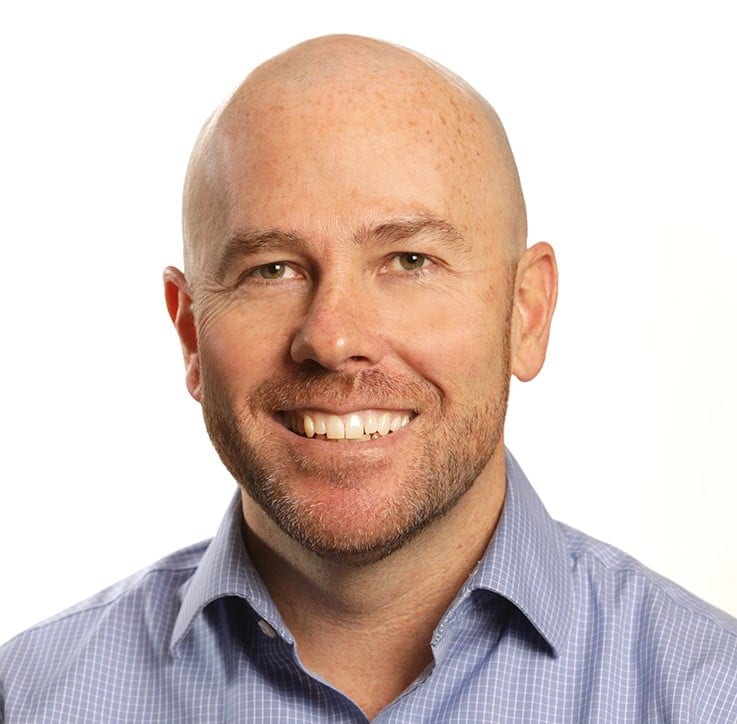
Aaron Meredith is an innovation director at the Point A Center for Supply Chain Innovation, a Georgia-Pacific company. He works with member companies to deliver highly valuable, innovative solutions to complex cross-industry problems in the supply chain. Aaron joined Point A in January 2019 with over 17 years of experience at Georgia-Pacific in areas of manufacturing, business operations, operations excellence, information technology and innovation. Aaron’s prior experience includes stints with both the Mead Corporation and Westvaco. He has lived and worked in 3 different countries, including 2 years as a Peace Corps volunteer. Aaron hold bachelor’s degrees in Chemical Engineering and Pulp & Paper Science and Technology from North Carolina State University, and a master’s in Business Administration from Kennesaw State University. When not working, Aaron enjoys international travel with his family and all things sports. Go Braves!
Hosts
Additional Links & Resources
WEBINAR- State of the Supply Chain Report – Priorities for Building Resiliency in Your Supply Network
